- Type of Visa A1
- Type of Visa A2
- Type of Visa A3
- Type of Visa A4
- Type of Visa B1
- Type of Visa B2
- Type of Visa B3
- Type of Visa B4
- D12 (2 Years)
- D12 (1 Year)
- D14 (1 Year)
- D14 (2 Years)
- Type of Visa D1 (1 Year)
- D1 (2 Years)
- Type of Visa D1 (5 Years)
- Type of Visa D2 (1 Year)
- Type of Visa D2 (2 Years)
- Tyoe of Visa D2 (5 Years)
- D3 (1 Year)
- D3 (2 Years)
- D4 (1 Year)
- Type of Visa D7 (60 Days)
- Type of Visa D7A (60 Days)
- Type of Visa D7B (60 Days)
- Type of Visa D8A (60 Days)
- Type of Visa D8B (60 Days)
- Type of Visa C10
- Type of Visa C10A
- Type of Visa C11
- Type of Visa C12
- Type of Visa C13
- Type of Visa C14
- Type of Visa C15
- Type of Visa C16
- Type of Visa C17
- Type of Visa C18
- Type of Visa C19
- Type of Visa C2
- Type of Visa C20
- Type of Visa C21
- Type of Visa C22A
- Type of Visa C22B
- Type of Visa C3
- Type of Visa C4
- Type of Visa C5
- Type of Visa C6
- Type of Visa C6A
- Type of Visa C6B
- Type of Visa C7
- Type of Visa C7A
- Type of Visa C7B
- Type of Visa C8A
- Type of Visa C8B
- Type of Visa C9
- Type of Visa C9A
- Type of Visa C9B
- D4 (2 Years)
- Type of Visa 211C
- Tourist Visa
- Type of Visa E23
- Type of Visa E23A
- Type of Visa E23B
- Type of Visa E23C
- Type of Visa E23D
- Type of Visa E23E
- Type of Visa E23F
- Type of Visa E23G
- Type of Visa E23H
- Type of Visa E23I
- Type of Visa E23J
- Type of Visa E23K
- Type of Visa E23L
- Type of Visa E23M
- Type of Visa E23N
- Type of Visa E23O
- Type of Visa E23P
- Type of Visa E23Q
- Type of Visa E23R
- Type of Visa E23S
- Type of Visa E23T
- Type of Visa E23U
- Type of Visa E23V
- Type of Visa E23W
- Type of Visa E24
- Type of Visa E24A
- Type of Visa E24B
- Type of Visa E24C
- Type of Visa E24D
- Type of Visa E24E
- Type of Visa E24F
- Type of Visa E25
- Type of Visa E25A
- Type of Visa E25B
- Type of Visa E25C
- Type of Visa E25D
- Type of Visa E25E
- Type of Visa E25F
- Type of Visa E26
- Type of Visa E27
- Type of Visa E28A
- Type of Visa E28B
- Type of Visa E28C
- Type of Visa E28D
- Type of Visa E28F
- Type of Visa E28G
- Type of Visa E29
- Student Visa
- Bachelor's Degree Visa
- Master's Degree Visa
- Doctoral’s Degree Visa
- Type of Visa E31A
- Type of Visa E31B (Golden Visa)
- Type of Visa E31B
- Type of Visa E31E
- Type of Visa E31E (Golden Visa)
- Type of Visa E31F
- Type of Visa E31G
- Type of Visa E31H
- Type of Visa E31H (Golden Visa)
- Type of Visa E31J
- Type of Visa E31J (Golden Visa)
- Type of Visa E31J (Secondhome Visa)
- Type of Visa E33
- Type of Visa E33A
- Type of Visa E33B
- Type of Visa E33C
- Type of Visa E33E
- Type of Visa E33G
- Type of Visa E35A

The Official e-Visa Website for Indonesia
Visa application guideline :.
Explore and apply for a suitable visa. The requirement documents should be prepared.
Make Visa fee payment by SIMPONI or Mastercard, Visa or JCB credit/debit card.
Once approved, a link to download the visa will be sent to your email.
Golden Visa is Available Visa Exemption for ASEAN Foreigner is Available Bridging Stay Permit is Available
Electronic Visa on Arrival (e-VOA) application can be done simultaneously for 5 people

Eyes On Asia / Stocksy United
This beguiling nation of over 17,000 islands is home to a huge diversity of adventures to choose from – Indonesia's sheer range of experiences is hard to beat.
Best Time to Visit
Best places to visit, attractions, must-see attractions.

Prambanan Temple
Central Java
Comprising the remains of some 244 temples, World Heritage–listed Prambanan is Indonesia's largest Hindu site and one of Southeast Asia's major…

Borobudur Temple
Dating from the 8th and 9th centuries, and built from two million blocks of stone, Borobudur is the world's largest Buddhist temple and one of Indonesia's…
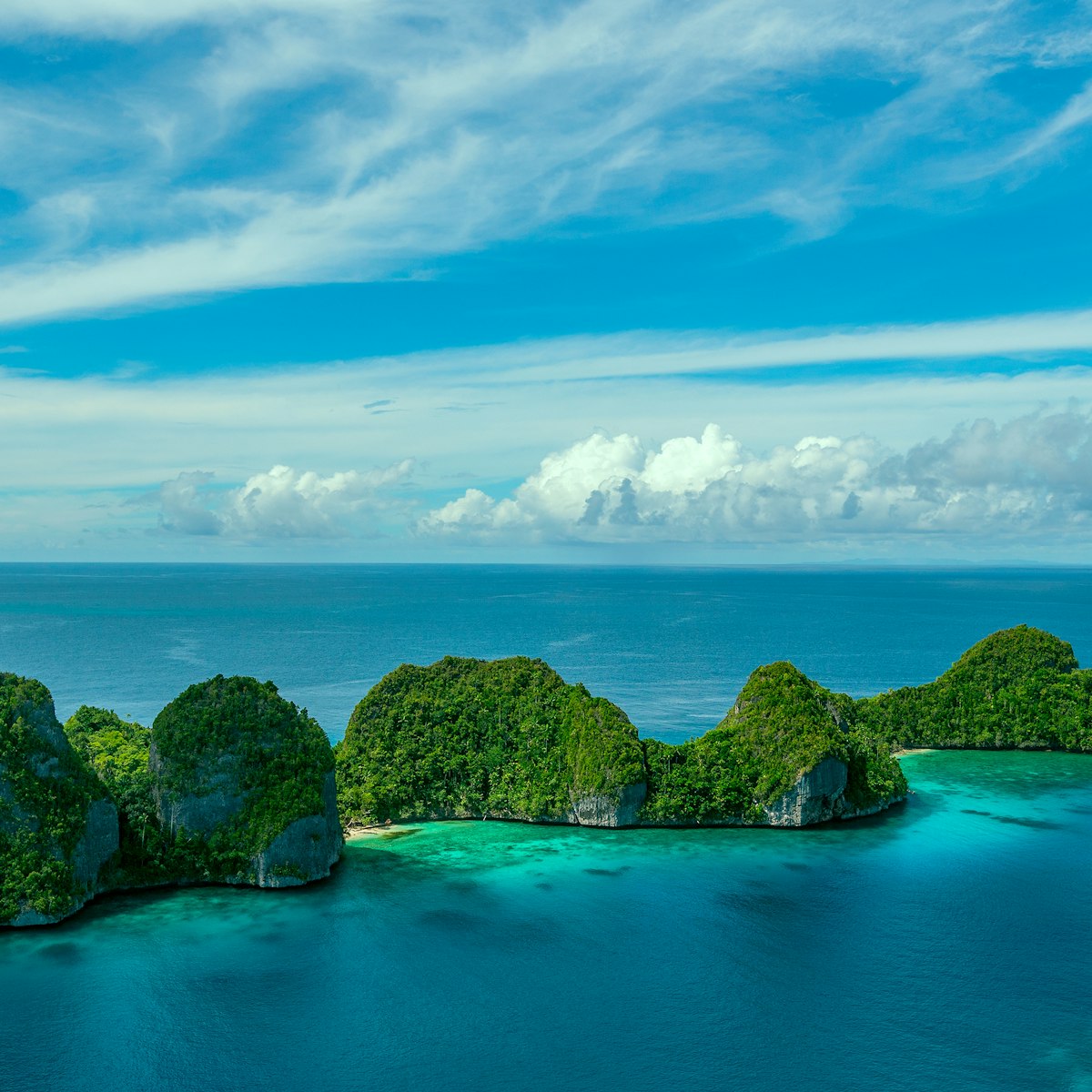
Raja Ampat Islands
These small, uninhabited and incredibly picturesque islands, 30km beyond Waigeo, feature heavily in Raja Ampat promotional material. It’s mainly…

Bada Valley
Central Sulawesi
Seemingly scattered haphazardly around the hills near Lore Lindu National Park are some 400 ancient stone megaliths of unknown origin that might be over…

The Ijen plateau's most extraordinary sight is the magnificent turquoise sulphur lake of Kawah Ijen. A night hike to the crater in which the lake boils…

Muara Jambi
This scattering of ruined and partially restored temples is the most important Hindu-Buddhist site in Sumatra. The temples are believed to mark the…

Beside the southern alun-alun (main square), Yogya's enormous kraton (palace) is the cultural and political heart of this fascinating city. Effectively a…

Candi Sukuh
In a magnificent position 900m above the Solo plain with fine views of Gunung Lawu, Candi Sukuh is one of Java’s most enigmatic and striking temples. It’s…
Planning Tools
Expert guidance to help you plan your trip.
Best Things to Do
With 13,000 Islands to choose from, picking what to do in Indonesia can be exhausting. That's why we've done the hard work for you.
Things to Know
This guide to culture, etiquette and safety can help you plan the perfect trip to Indonesia.
Transportation
Navigating the many islands of Indonesia is getting easier – find the fast, comfortable, and memorable ways to explore the archipelago.
Visa Requirements
Visa rules for Indonesia have always been confusing, but trips to Bali and other islands are back on the cards. Here's what you need to know about visas.
Money and Costs
This guide to daily costs, along with tips on saving money, can help you budget for your visit to Indonesia.
Best Road Trips
An adventurous way to discover the greatest island nation on Earth? Or seat-bumping, dirt-tracking utter madness? These are Indonesia's best road trips.
Latest stories from Indonesia
Filter by interest:
- All Interests
- Adventure Travel
- Art & Culture
- Beaches, Coasts & Islands
- Food & Drink

May 20, 2024 • 6 min read
That Indonesia has beautiful beaches is no secret. Here are the ones that you may not have heard of.

Apr 29, 2024 • 6 min read

Dec 10, 2023 • 7 min read

Dec 10, 2023 • 6 min read

Dec 8, 2023 • 6 min read

Dec 8, 2023 • 10 min read

Dec 7, 2023 • 9 min read

Dec 6, 2023 • 7 min read
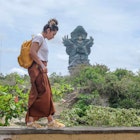
Dec 2, 2023 • 6 min read

Nov 28, 2023 • 5 min read
in partnership with getyourguide
Book popular activities in Indonesia
Indonesia and beyond.

Security Alert May 17, 2024
Worldwide caution.
- Travel Advisories |
- Contact Us |
- MyTravelGov |
Find U.S. Embassies & Consulates
Travel.state.gov, congressional liaison, special issuance agency, u.s. passports, international travel, intercountry adoption, international parental child abduction, records and authentications, popular links, travel advisories, mytravelgov, stay connected, legal resources, legal information, info for u.s. law enforcement, replace or certify documents.
Before You Go
Learn About Your Destination
While Abroad
Emergencies
Share this page:
Travel Advisory July 24, 2023
Indonesia - level 2: exercise increased caution.
Reissued with obsolete COVID-19 page links removed.
Exercise increased caution in Indonesia due to terrorism and natural disasters. Some areas have increased risk. Read the entire Travel Advisory.
Do Not travel to:
- The provinces of Central Papua (Papua Tengah) and Highland Papua (Papua Pegunungan) due to civil unrest.
Terrorists continue plotting possible attacks in Indonesia. Terrorists may attack with little or no warning, targeting police stations, places of worship, hotels, bars, nightclubs, markets/shopping malls, and restaurants.
Natural disasters such as earthquakes, tsunamis or volcanic eruptions may result in disruptions to transportation, infrastructure, sanitation, and the availability of health services.
Demonstrations occur frequently and have the potential to become violent. Avoid demonstrations and crowds.
Indonesia’s revised criminal code, which takes effect January 2026, includes penalties for defamation, blasphemy, cohabitation, and sex outside of marriage. It is unclear how Indonesian authorities will implement the revised criminal code.
Read the country information page for additional information on travel to Indonesia.
If you decide to travel to Indonesia:
- Monitor local media for breaking events and be prepared to adjust your plans.
- Visit the websites for Badan Geologi (Indonesian Geological Agency, Indonesian language only) for the latest information from the Government of Indonesia on current natural disasters.
- Review the CDC’s suggestions on how to prepare for natural disasters.
- Be aware of your personal safety and security at all times.
- Enroll in the Smart Traveler Enrollment Program ( STEP ) to receive alerts and make it easier to locate you in an emergency.
- Ensure your passport is valid for at least six months beyond your intended stay.
- Follow the Department of State Facebook and Twitter . Follow the U.S. Embassy Jakarta on Facebook , Instagram , and Twitter .
- Review the Country Security Report for Indonesia.
- Prepare a contingency plan for emergency situations. Review the Traveler’s Checklist .
Central Papua and Highland Papua– Level 4: Do Not Travel
In Central Papua and Highland Papua, violent demonstrations and conflict could result in injury or death to U.S. citizens. Avoid demonstrations and crowds. Armed separatists may kidnap foreign nationals.
The U.S. government has limited ability to provide emergency services to U.S. citizens in Central Papua and Highland Papua as U.S. government employees must obtain special authorization before traveling to those areas.
Embassy Messages
View Alerts and Messages Archive
Quick Facts
Six months beyond arrival date. Indonesia does not accept the 12-page U.S. emergency passport for entry into Indonesia.
Two blank visa pages required for entry stamp
Yes, Visa or Visa on Arrival
100,000,000 Indonesian rupia (approx. $7,000 USD)
Embassies and Consulates
U.s. embassy jakarta.
Jl. Medan Merdeka Selatan No. 3 - 5 Jakarta 10110, Indonesia Telephone: +(62)(21) 5083-1000 Emergency After-Hours Telephone: +(62)(21) 5083-1000 ext. 0 (operator) Email: [email protected]
U.S. Consulate General Surabaya Jl. Citra Raya Niaga No. 2 Surabaya 60217 Indonesia Telephone: +(62)(31) 297-5300 Emergency After-Hours Telephone: +(62)(811) 334-183 Email: [email protected]
U.S. Consular Agency Bali Jalan Hayam Wuruk 310, Denpasar, Bali Telephone: +(62)(361) 233-605 Emergency After-Hours Telephone: Please contact the U.S. Consulate in Surabaya:+(62)(811) 334-183 Email: [email protected]
American Consulate Medan, Sumatra Uni Plaza Building 4th Floor (West Tower) Jl. Let. Jend. MT Haryono A-1 Medan 20231, Indonesia Telephone: +(62)(61) 451-9000 Emergency After-Hours Telephone: +(62)(61) 451-9000 Email: [email protected]
The U.S. Consulate in Medan provides only emergency assistance to U.S. citizens and does not offer routine consular services.
Destination Description
See the Department of State’s Fact Sheet on Indonesia for information on U.S.- Indonesia relations.
Entry, Exit and Visa Requirements
Entry Requirements: To enter Indonesia, your passport must have at least two blank pages and be valid for at least six months beyond the date of your arrival in Indonesia. If your passport does not meet these requirements, you will be denied entry into Indonesia. The Government of Indonesia will not admit travelers holding the 12-page U.S. emergency passport, issued by U.S. embassies and consulates overseas.
Visa-on-Arrival: If you meet the requirements, you can apply for a visa on arrival at some international airports, seaports, or land crossings. To apply for the visa on arrival, you must have an ordinary (non-emergency) passport with at least 6 months of validity from the date you plan to enter and the date you plan to leave Indonesia and a return or onward flight booking to another country. There is a 500,000 Indonesian Rupiah fee (about $35). The visa on arrival is valid for up to 30 days. You may extend a Visa-on-Arrival once at the immigration office one week before it expires for an additional 30 days for a maximum of 30 additional days, for another 500,000 Rupiah.
- Official visit or government duties;
- Business meeting;
- Procurement of goods;
- Official meeting; or
Electronic Visa-On-Arrival: You may also apply for an electronic Visa on Arrival (e-VOA) in advance if you are entering Indonesia at Soekarno-Hatta International Airport in Jakarta or Ngurah Rai International Airport in Bali. Check the e-VOA requirements from Indonesian Immigration before applying. To apply for an e-VOA see https://molina.imigrasi.go.id/ .
Visa: Travel for more than 30 days and travel for non-VOA purposes, including employment and journalism, requires that the appropriate visa be obtained from an Indonesian embassy or consulate before arrival. If you are traveling on an emergency passport, you must obtain a visa before arrival in Indonesia.
If you overstay your visa, you are subject to a fine of 1 million Indonesian rupiah (about $70 USD at current exchange rates; fees may change at any time) per day and may be detained and deported. U.S. citizens have been jailed for visa overstays or entering the country on the wrong visa class for their purpose of travel . Travelers coming to Indonesia for non-tourism purposes are strongly encouraged to consult Indonesian Immigration’s website. Travelers should generally carry a copy of their passport with them whenever possible to establish their identity and proof of Indonesian visa.
You must exit Indonesia using the same passport that you used to enter. If this passport is replaced for any reason before you depart Indonesia, you must apply with Immigration to obtain a “special pass” (exit permit) in your new passport prior to departing.
Dual-Nationality: Indonesia has laws that prohibit Indonesian citizens from holding additional nationalities. If you are an Indonesian with dual nationality, you could be compelled to renounce your Indonesian nationality through a formal act of renunciation. Please research Indonesian nationality laws and consult with a local attorney regarding any specific circumstance.
The U.S. Department of State is unaware of any HIV/AIDS entry restrictions for visitors to or foreign residents of Indonesia. The Government of Indonesia screens incoming passengers in response to reported outbreaks of pandemic illnesses.
Find information on dual nationality , prevention of international child abduction , and customs regulations on our websites.
Safety and Security
Terrorism: Terrorist groups and those inspired by such organizations are intent on attacking U.S. citizens abroad. Terrorists are increasingly using less sophisticated methods of attack – including knives, firearms, and vehicles – to target crowds. Frequently, their aim is unprotected or vulnerable targets, such as:
- High-profile public events (sporting contests, political rallies, demonstrations, holiday events, celebratory gatherings, etc.)
- Hotels, clubs, and restaurants frequented by tourists
- Places of worship
- Shopping malls and markets
- Public transportation systems (including subways, buses, trains, and scheduled commercial flights)
Extremists in Indonesia aspire to carry out violent attacks against Indonesian and foreign targets, and police have arrested more than 1,200 individuals on terrorism-related charges since 2018. Extremists may target both official and private establishments, including government offices, hotels, bars, nightclubs, shopping areas, restaurants, and places of worship. Be aware of your personal safety and security at all times.
Recent incidents of extremist violence include a December 2022 suicide bombing at a police station in Bandung, West Java that killed one police officer, a March 2021 bomb attack against a church in Makassar, South Sulawesi which injured 20 civilians, and May 2018 bomb attacks against three churches in Surabaya, East Java which killed 15 civilians and injured 50.
Demonstrations are very common in Jakarta, Surabaya, and other large cities, but less common in Bali. You should avoid demonstrations and other mass gatherings, since even those intended to be peaceful can become violent. U.S. citizens have been detained for participating in protests. Demonstrations may become more frequent ahead of the Indonesian general elections scheduled for February 2024.
Currently, travel by U.S. government personnel to the provinces of Central Papua (Papua Tengah) and Highland Papua (Papua Pegunungan) is restricted to mission-essential travel that is approved in advance by the Embassy. Papuan separatists have kidnapped foreigners in the past and a New Zealand national was kidnapped by a separatist group in Nduga Regency in February 2023.
For more information, see our Terrorism page.
Crime: In the last year several American citizens were victims of violent and serious crimes in Indonesia, particularly in Bali. As with any major tourist destination, U.S. citizens traveling in Indonesia are especially encouraged to always remain vigilant of their surroundings and read the following advisories carefully. Take sensible measures to protect yourself and your belongings. Closely monitor bags and luggage and carry only essential items. Take particular care of your passport and bank cards and avoid traveling alone.
Police presence and responsiveness is less than it is in the United States, making it more difficult to report crimes quickly and receive police attention. U.S. citizens often cite language barriers as a major hindrance when reporting crimes.
Pickpocketing, sexual assault, vehicle theft, armed car-jacking, snatch and grab robberies of cell phones and purses, and residential break-ins are common. Avoid traveling to isolated areas late at night. Be aware of your surroundings, particularly vehicles or individuals that might be following you.
Use a reputable taxi company or hire a taxi either at a major hotel or shopping center and ensure the driver’s identity card is visible. If you are booking a car via a mobile app, always ensure that the driver is the same as the person on the app, share your journey with a friend via the in-app option, and know the contact information for the app’s security center. Be aware of drivers falsely claiming to be registered with online ride hailing apps.
Credit card fraud is a common problem in Indonesia. Criminals have “skimmed” credit/debit cards to access and drain bank accounts. Use an ATM in a secure location, such as a major bank branch, and check the machine for evidence of tampering. Monitor your account statements regularly.
Tourists and Indonesians have suffered from serious illness and have even died from "drink-spiking” and drink poisoning incidents, particularly in clubs and nightspots in urban and tourist areas. There have been reports of sexual assaults and drink spiking in Bali, Lombok, and the Gili Islands. Make sure drinks are prepared in your sight and be careful about accepting drinks from strangers at clubs and parties or leaving drinks unattended. Tourists have also been robbed after taking visitors to their hotel rooms, and in some cases have found that their drinks were spiked. There have also been deaths and serious illnesses caused by drinking alcoholic drinks contaminated with methanol. These cases have occurred in bars, shops, and hotels in popular tourist areas like Bali, Lombok, the Gili Islands, and Sumatra.
Sexual Assault: Women travelling alone may be subject to harassment and verbal abuse. Sexual assault, harassment, and rape occur. To minimize the risk, avoid travelling alone, especially at night; remain particularly vigilant in less populous areas; and be careful when dealing with strangers or recent acquaintances. Never leave food or drinks unattended or in the care of strangers. Be wary of accepting snacks, beverages, gum, or cigarettes from new acquaintances. These items may contain drugs that could put you at risk of sexual assault and robbery. Local authorities may not respond adequately to reports of sexual violence and harassment. If you are the victim of a sexual assault, you should report it immediately to local authorities and to the U.S. Embassy or U.S. Consulate General.
Demonstrations occur frequently. They may take place in response to political or economic issues, on politically significant holidays, and during international events.
- Demonstrations can be unpredictable. Avoid areas around protests and demonstrations.
- Past demonstrations have turned violent.
- Check local media for updates and traffic advisories.
- Participating in demonstrations on a tourist visa can lead to deportation.
International Financial Scams: See the Department of State and the FBI pages for information.
Internet romance and financial scams occur in Indonesia. Scams are often initiated through Internet postings/profiles or by unsolicited emails and letters. Scammers almost always pose as U.S. citizens who have no one else to turn to for help. Common scams include:
- Romance/Online dating
- Money transfers
- Lucrative sales
- Gold purchase
- Contracts with promises of large commissions
- Grandparent/Relative targeting
- Free Trip/Luggage
- Inheritance notices
- Work permits/job offers
- Bank overpayments
Victims of Crime:
Sexual assault: U.S. citizen victims of sexual assault should seek prompt medical assistance, contact the Embassy or nearest Consulate, and call the local police at 112. For a criminal investigation to be initiated by the police, the victim must make a full statement to the local police, in person. Remember that local authorities are responsible for investigating and prosecuting crime. U.S. citizen victims of sexual assault may choose to be accompanied by a translator.
See our webpage on help for U.S. victims of crime overseas .
- Help you find appropriate medical care
- Assist you in reporting a crime to the police
- Contact relatives or friends with your written consent
- Explain the local criminal justice process in general terms
- Provide a list of local attorneys
- Provide our information on victim’s compensation programs in the U.S.
- Provide an emergency loan for repatriation to the United States and/or limited medical support in cases of destitution. Follow this link for more information
- Help you find accommodation and arrange flights home
- Replace a stolen or lost passport
Domestic Violence: U.S. citizen victims of domestic violence are encouraged to contact the Embassy for assistance.
Tourism: The tourism and recreational activity industries are unevenly regulated, and safety inspections for equipment and facilities do not commonly occur. Hazardous areas/activities are not always identified with appropriate signage, and staff may not be trained or certified either by the host government or by recognized authorities in the field. Water sports, especially diving, can be hazardous in Indonesia with operators lightly regulated and hyperbaric chambers available only in Bali and Ambon. Traffic is hazardous in Indonesia and U.S. citizens are frequently injured while riding rented motorbikes. Wearing a helmet is required by law. In the event of an injury, appropriate medical treatment is typically available only in/near major cities, and only basic stabilization may be available. Serious injuries require medical evacuation to another country. First responders are generally unable to provide urgent medical treatment or to access areas outside of major cities. Boat and ferry incidents are frequent; vessels rarely carry appropriate sizes and numbers of safety vests; passengers are encouraged to bring their own. U.S. citizens are strongly encouraged to purchase medical evacuation insurance. See our webpage for more information on insurance providers for overseas coverage ( http://travel.state.gov/content/passports/en/go/health/insurance-providers.html ).
Please note: The U.S. Embassy and Consulates do not pay the medical expenses of private U.S. citizens in Indonesia. It is the traveler’s responsibility to ensure adequate medical insurance coverage or funds for medical expenses.
Local Laws & Special Circumstances
Criminal Penalties: You are subject to Indonesian laws. If you violate local laws, even unknowingly, you may be expelled, arrested, or imprisoned. Criminal cases can take months or even years to resolve, and suspects can be held without charges for up to 60 days, and in many cases longer. Indonesia‘s revised criminal code, which takes effect January 2026, includes penalties for defamation, blasphemy, cohabitation, and sex outside of marriage. Enroll in the Smart Traveler Enrollment Program (STEP) to stay up-to-date.
If you are convicted of possession, use, or trafficking of illegal drugs in Indonesia, you may be subject to heavy fines, long jail sentences, and even the death penalty. Some prescription medications that are available in the United States are illegal in Indonesia. Some drugs used to treat attention deficit hyperactivity disorder (ADHD) are illegal in Indonesia. Marijuana, Cannabis, hash, “edibles,” and products containing CBD or THC remain illegal in Indonesia, including for medicinal purposes. A medical prescription does not make it legal. If you take such products to Indonesia or purchase or use them in Indonesia, you can be arrested and face imprisonment, fines, deportation, or the death penalty. Illegal drug convictions often result in lengthy prison sentences, even at the simple possession level. Indonesian prison conditions are harsh and do not meet U.S. standards. Many prisons are overcrowded and provide minimal services. The costs of basic services, including healthcare, often must be borne by the prisoner.
Individuals establishing a business or practicing a profession that requires additional permits or licensing should seek information from the competent local authorities prior to practicing or operating a business.
Furthermore, some laws are also prosecutable in the United States regardless of local law. For examples, see our website on crimes against minors abroad and the Department of Justice website.
Arrest Notification: If you are arrested or detained, ask police or prison officials to notify the U.S. Embassy immediately. See our webpage for further information.
Counterfeit and Pirated Goods: Although counterfeit and pirated goods are prevalent in many countries, they may still be illegal according to local laws. You may also pay fines or have to give them up if you bring them back to the United States. See the U.S. Department of Justice website for more information.
Faith-Based Travelers: See the following webpages for details:
- Faith-Based Travel Information
- nternational Religious Freedom Report – see country reports
- Human Rights Report – see country reports
- Hajj Fact Sheet for Travelers
- Best Practices for Volunteering Abroad
LGBTQI+ Travelers: LGBTQI+ status or conduct is not illegal, but local authorities sometimes take legal action against, or tolerate harassment of people engaging in LGBTQI+ relationships or openly expressing LGBTQI+ identity. Some local governments have passed laws criminalizing LGBTQI+ relationships. Same-sex marriages or civil unions recognized as valid in other countries are not legally recognized in Indonesia. The Indonesian Parliament revised the criminal code to include penalties for cohabitation and sex outside of marriage. These revisions, however, will not come into force until January 2026, and how they will be implemented is unclear.
See our LGBTQI+ Travel Information page and section 6 of our Human Rights report for further details .
Sharia Law: Sharia law is enforced in Aceh province and may exist unofficially or through local legislation in other areas. The law is intended for Muslims and should not apply to non-Muslims or foreign visitors. You should be respectful of local traditions, mindful of social norms, and seek guidance from local police if confronted by Sharia authorities.
Earthquakes and Tsunamis: There are approximately 4,000 earthquakes per year in Indonesia, or more than 10 per day on average. While most earthquakes are mild, some cause significant destruction and can trigger tsunamis. Tsunami warning systems may not be operable, or reports of tremors and tsunamis may be delayed. Local construction standards are lower than in the United States, and many structures including hotels and malls are prone to damage or collapse in an earthquake. Access to disaster-affected areas is often difficult and assistance from the U.S. Embassy may be limited.
If a major earthquake or landslide occurs close to shore, you should follow the instructions of local authorities, bearing in mind that a tsunami could arrive within minutes. The Indonesia Tsunami Early Warning Centre issues tsunami warnings when a potential tsunami with significant impact is imminent or expected.
Volcanoes: There are 127 active volcanoes in Indonesia. Eruptions frequently cause travel delays, displace local populations, and disrupt economic activities.
Environmental Quality: Air quality in Indonesia’s major cities can range from "unhealthy for sensitive groups" to "unhealthy." Current air quality data for Jakarta can be found on the Embassy’s Air Quality page. Tap water is not potable throughout Indonesia and should not be consumed.
Mountain Hiking: When hiking in mountainous areas, obtain current information on local conditions, travel with a reputable guide, have overseas medical insurance, and carry a local mobile phone. Never go hiking or climbing alone. Particularly dangerous trails may not be clearly labeled as such. Hikers on Puncak Jaya in Papua should have realistic primary and backup plans for climbing down the mountain. Tour operators have abandoned climbers. Taking shortcuts through private property is considered trespassing and is not a safe or legal alternative to a proper plan. If possible, ensure your hiking plans are registered and known to local authorities and/or tourism operators, as this helps identify your presence in these areas in the event of an emergency.
Dual Nationality: Indonesian law does not recognize dual nationality for adults over 18 years of age. U.S. citizens who are also Indonesian nationals may be required to renounce their Indonesian citizenship and may also be deported. Please visit our Dual Nationality page .
Travelers with Disabilities: Persons with disabilities will face severe difficulties in Indonesia as most public places and transportation facilities do not accommodate disabled people. The law in Indonesia prohibits discrimination against persons with mental and physical disabilities, but the law is seldom enforced. Social acceptance of persons with disabilities in public is not as prevalent as in the United States. Expect accessibility to be extremely limited in public transportation, lodging, communication/information, and general infrastructure.
Students: See our Students Abroad page and FBI travel tips .
Women Travelers: Women traveling alone may be subject to harassment and verbal abuse. Sexual assault, harassment, and rape occur. To minimize the risk, avoid travelling alone, especially at night; remain particularly vigilant in less populous areas; and be careful when dealing with strangers or recent acquaintances. Never leave food or drinks unattended or in the care of strangers. Be wary of accepting snacks, beverages, gum, or cigarettes from new acquaintances. These items may contain drugs that could put you at risk of sexual assault and robbery. While domestic violence is illegal in Indonesia, these laws are rarely enforced. Local authorities may not respond adequately to reports of sexual violence and harassment. If you are the victim of a sexual assault, you should report it immediately to local authorities and to the U.S. Embassy or U.S. Consulate General and seek medical attention. See our travel tips for Women Travelers .
The Government of Indonesia requires all non-Indonesian citizens entering the country to be fully vaccinated against COVID-19.
Medical Care: For emergency services in Indonesia dial 112.
Sanitation and health care conditions in Indonesia are far below U.S. standards. Routine medical care is available in all major cities, although most expatriates leave the country for all but the most basic medical procedures. Physicians and hospitals often expect payment or sizable deposits before providing medical care, even in emergency and/or life-threatening situations. See our Embassy's website for a list of English-speaking doctors and hospitals, but keep in mind that even in large cities the quality of English-speaking medical personnel will vary and there are often communication difficulties. In remote areas there may be no English-speaking medical personnel. Psychological and psychiatric services are limited, even in the larger cities, with hospital-based care only available through government institutions.
Ambulance services are not widely available, and training and availability of emergency responders may be below U.S. standards. Ambulances are not staffed with trained paramedics and often have little or no medical equipment. Injured or seriously ill travelers may prefer to take a taxi or private vehicle to the nearest major hospital rather than wait for an ambulance.
We do not pay medical bills. Be aware that U.S. Medicare/Medicaid does not apply overseas. Most hospitals and doctors overseas do not accept U.S. health insurance.
Medical Insurance: Make sure your health insurance plan provides coverage overseas. Most care providers overseas only accept cash payments. See our webpage for more information on insurance providers for overseas coverage. Visit the U.S. Centers for Disease Control and Prevention for more information on type of insurance you should consider before you travel overseas.
We strongly recommend supplemental insurance to cover medical evacuation, which can exceed over $100,000 per person.
Always carry your prescription medication in original packaging, along with your doctor’s prescription. Be aware that Indonesian authorities may consider some prescription drugs as illegal narcotics. The Indonesian government does not publish a list of which pharmaceuticals are considered contraband, and these decisions may be arbitrary.
U.S. citizens are advised against mailing or shipping by courier any medications to Indonesia. Indonesian authorities pay close attention to packages containing pharmaceuticals and may detain or arrest recipients of both prescription and over the counter medications. Even if a medication is legal or has been prescribed in the United States, it may be considered an illegal narcotic in Indonesia. U.S. citizens are advised to only hand carry prescription medications into the country, in the original packaging with a copy of any prescription. The U.S. Embassy and Consulates cannot assist you with the importation and/or release of medications.
Marijuana, Cannabis, hash, “edibles,” and products containing CBD or THC remain illegal in Indonesia, including for medicinal purposes. A medical prescription does not make it legal.
Local pharmacies carry a range of products of variable quality, availability, and cost. Counterfeit pharmaceuticals are a significant risk; patronize only reputable pharmacies. Malaria, dengue, Japanese encephalitis, and Zika virus are mosquito borne diseases in Indonesia. Prevention of mosquito bites is strongly encouraged; malaria preventive medication is needed in some areas. Pregnant women should be aware that Indonesia is a CDC Zika risk area and that Zika can be spread by mosquitos as well as sexual contact . Diarrheal diseases are very common throughout Indonesia and food and water precautions are recommended. Rabies is prevalent in animals and animal contact should be avoided.
Vaccinations: Be up-to-date on all vaccinations recommended by the U.S. Centers for Disease Control and Prevention.
Further health information:
- World Health Organization
- U.S. Centers for Disease Control and Prevention (CDC)
Air Quality: Visit AirNow Department of State for information on air quality at U.S. Embassies and Consulates. See the OPTIONAL stock language below for additional suggestions.
The U.S. Embassy maintains a list of doctors and hospitals. We do not endorse or recommend any specific medical provider or clinic.
Medical Tourism and Elective Surgery
- Visit the U.S. Centers for Disease Control and Prevention website for information on Medical Tourism, the risks of medical tourism, and what you can do to prepare before traveling to Indonesia.
- We strongly recommend supplemental insurance to cover medical evacuation in the event of unforeseen medical complications.
- Your legal options in case of malpractice are very limited in Indonesia.
Pharmaceuticals
- Exercise caution when purchasing medication overseas. Pharmaceuticals, both over the counter and requiring prescription in the United States, are often readily available for purchase with little controls. Counterfeit medication is common and may prove to be ineffective, the wrong strength, or contain dangerous ingredients. Medication should be purchased in consultation with a medical professional and from reputable establishments.
- U.S. Customs and Border Protection and the Food and Drug Administration are responsible for rules governing the transport of medication back to the United States. Medication purchased abroad must meet their requirements to be legally brought back into the United States. Medication should be for personal use and must be approved for usage in the United States. Please visit the U.S. Customs and Border Protection and the Food and Drug Administration websites for more information.
Water Quality
- Tap water is not potable. Bottled water and beverages are generally safe, although you should be aware that many restaurants and hotels serve tap water unless bottled water is specifically requested. Be aware that ice for drinks may be made using tap water.
Adventure Travel
- Visit the U.S. Centers for Disease Control and Prevention website for more information about Adventure Travel .
General Health Language
The following diseases are prevalent:
- Tuberculosis
- Chikungunya
- Use the U.S. Centers for Disease Control and Prevention recommended mosquito repellents and sleep under insecticide-impregnated mosquito nets. Chemoprophylaxis is recommended for all travelers even for short stays.
- Visit the U.S. Centers for Disease Control and Prevention website for more information about Resources for Travelers regarding specific issues in Indonesia.
Air Quality
- Air pollution is a significant problem in several major cities in Indonesia. Consider the impact smog and heavy particulate pollution may have on you and consult your doctor before traveling if necessary. People at the greatest risk from particle pollution exposure include:
- Infants, children, and teens
- People over 65 years of age
- People with lung disease such as asthma and chronic obstructive pulmonary disease (COPD), which includes chronic bronchitis and emphysema
- People with heart disease or diabetes
- People who work or are active outdoors
Travel and Transportation
Road Conditions and Safety: Traffic in Indonesia is hazardous, congested, and undisciplined. Traffic signals are frequently ignored and often in disrepair. Motor vehicles share the roads with other forms of transportation such as pedicabs and pushcarts. Buses and trucks are often dangerously overloaded and travel at high speeds. Accidents between a car and a motorcycle are viewed as the fault of the driver of the car. Consider these risks before driving your own vehicle, especially if you are unaccustomed to Indonesian road conditions. When an accident results in personal injury, Indonesian law requires both drivers to await the arrival of a police officer to report the accident.
Public Transportation: Air, ferry, and road accidents that result in fatalities, injuries, and significant damage are common. While all forms of transportation are regulated in Indonesia, oversight is spotty, maintenance may not be properly performed, and rescue and emergency capacity are limited. Indonesia has experienced several fatal plane crashes and non-fatal runway overruns in recent years. Also in recent years, several ferry accidents and a train collision resulted in dozens of fatalities and even more injuries because of over-crowding and unsafe conditions.
See our Road Safety page for more information. Also, visit Indonesia's national tourist office online for road safety information.
Aviation Safety Oversight: The U.S. Federal Aviation Administration (FAA) has assessed the government of Indonesia’s Civil Aviation Authority as being in compliance with International Civil Aviation Organization (ICAO) aviation safety standards for oversight of Indonesia’s air carrier operations. Further information may be found on the FAA’s safety assessment page .
Since 2014, several private pilots have inadvertently crossed into Indonesian airspace and have been detained and paid heavy fines. If you intend to fly on private aircraft through Indonesian airspace, get clearances from Indonesian aviation authorities before you depart.
Maritime Safety and Security: Inter-island travel by boat or ferry can be dangerous: storms can appear quickly, vessels may be over-crowded and lack basic safety equipment, and safety standards vary. Ferries have sunk, resulting in loss of life. The Indonesian Search and Rescue Agency records boat and ferry accidents resulting in injuries and deaths yearly. Boats and ferries used in tourism or general transportation frequently break down, stranding passengers or capsizing; not all boats are equipped with adequate life vests. Make sure you are satisfied with safety equipment and life jackets before travelling.
Piracy: Maritime piracy and other related crimes in and around Indonesian waters continue. Recent reports include thefts of valuables or cargo from boats that are in port and out at sea. Before traveling by sea, especially in the Strait of Malacca between Riau Province and Singapore, and in the waters north of Sulawesi and Kalimantan, review the current security situation with local authorities. Be vigilant, reduce opportunities for theft, establish secure areas on board, and report all incidents to the coastal and flag state authorities.
Maritime Travel: Mariners planning travel to Indonesia should also check for U.S. maritime advisories and alerts on the Maritime Administration website . Information may also be posted to the websites of the U.S. Coast Guard and the National Geospace Intelligence Agency (select “broadcast warnings”).
In recent years, private vessels have inadvertently anchored in Indonesian waters, especially near Singapore, and have been detained and paid heavy fines.
For additional travel information
- Enroll in the Smart Traveler Enrollment Program (STEP) to receive security messages and make it easier to locate you in an emergency.
- Call us in Washington, D.C. at 1-888-407-4747 (toll-free in the United States and Canada) or 1-202-501-4444 (from all other countries) from 8:00 a.m. to 8:00 p.m., Eastern Standard Time, Monday through Friday (except U.S. federal holidays).
- See the State Department’s travel website for the Worldwide Caution and Travel Advisories .
- Follow us on X (formerly known as "Twitter") and Facebook .
- See traveling safely abroad for useful travel tips.
Review information about International Parental Child Abduction in Indonesia . For additional IPCA-related information, please see the International Child Abduction Prevention and Return Act ( ICAPRA ) report.
Travel Advisory Levels
Assistance for u.s. citizens, indonesia map, learn about your destination, enroll in step.

Subscribe to get up-to-date safety and security information and help us reach you in an emergency abroad.
Recommended Web Browsers: Microsoft Edge or Google Chrome.
Make two copies of all of your travel documents in case of emergency, and leave one with a trusted friend or relative.
Afghanistan
Antigua and Barbuda
Bonaire, Sint Eustatius, and Saba
Bosnia and Herzegovina
British Virgin Islands
Burkina Faso
Burma (Myanmar)
Cayman Islands
Central African Republic
Cote d Ivoire
Czech Republic
Democratic Republic of the Congo
Dominican Republic
El Salvador
Equatorial Guinea
Eswatini (Swaziland)
Falkland Islands
France (includes Monaco)
French Guiana
French Polynesia
French West Indies
Guadeloupe, Martinique, Saint Martin, and Saint Barthélemy (French West Indies)
Guinea-Bissau
Isle of Man
Israel, The West Bank and Gaza
Liechtenstein
Marshall Islands
Netherlands
New Caledonia
New Zealand
North Korea (Democratic People's Republic of Korea)
Papua New Guinea
Philippines
Republic of North Macedonia
Republic of the Congo
Saint Kitts and Nevis
Saint Lucia
Saint Vincent and the Grenadines
Sao Tome and Principe
Saudi Arabia
Sierra Leone
Sint Maarten
Solomon Islands
South Africa
South Korea
South Sudan
Switzerland
The Bahamas
Timor-Leste
Trinidad and Tobago
Turkmenistan
Turks and Caicos Islands
United Arab Emirates
United Kingdom
Vatican City (Holy See)
External Link
You are about to leave travel.state.gov for an external website that is not maintained by the U.S. Department of State.
Links to external websites are provided as a convenience and should not be construed as an endorsement by the U.S. Department of State of the views or products contained therein. If you wish to remain on travel.state.gov, click the "cancel" message.
You are about to visit:

- Travel Style
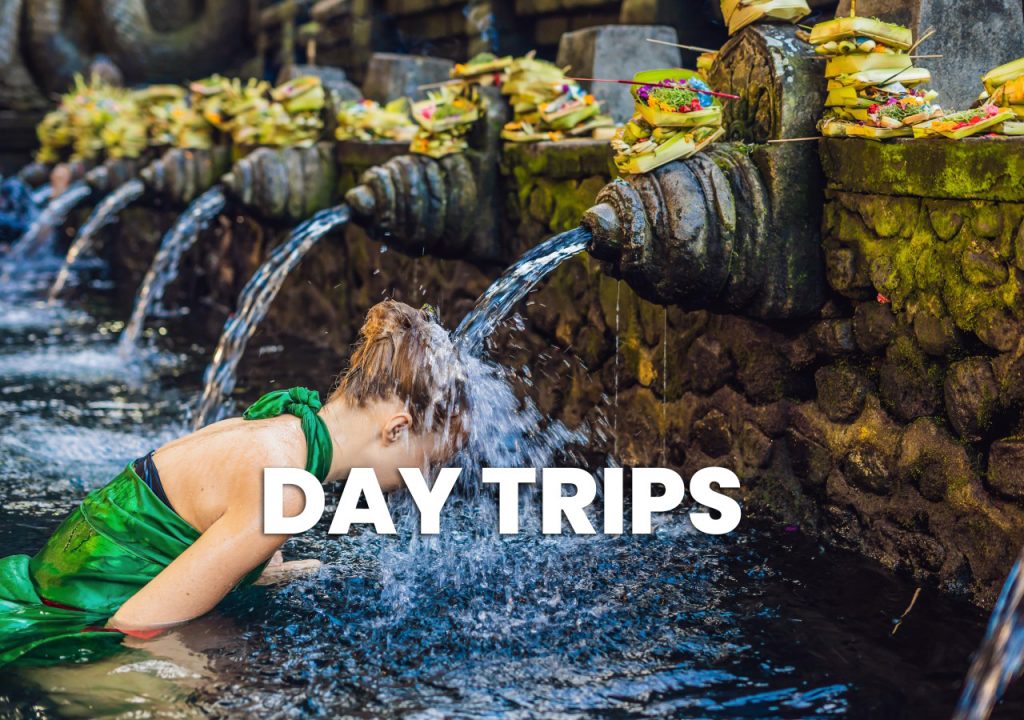
- Family Trips

- Couples & Friends

- Expeditions & Off Beaten Trips
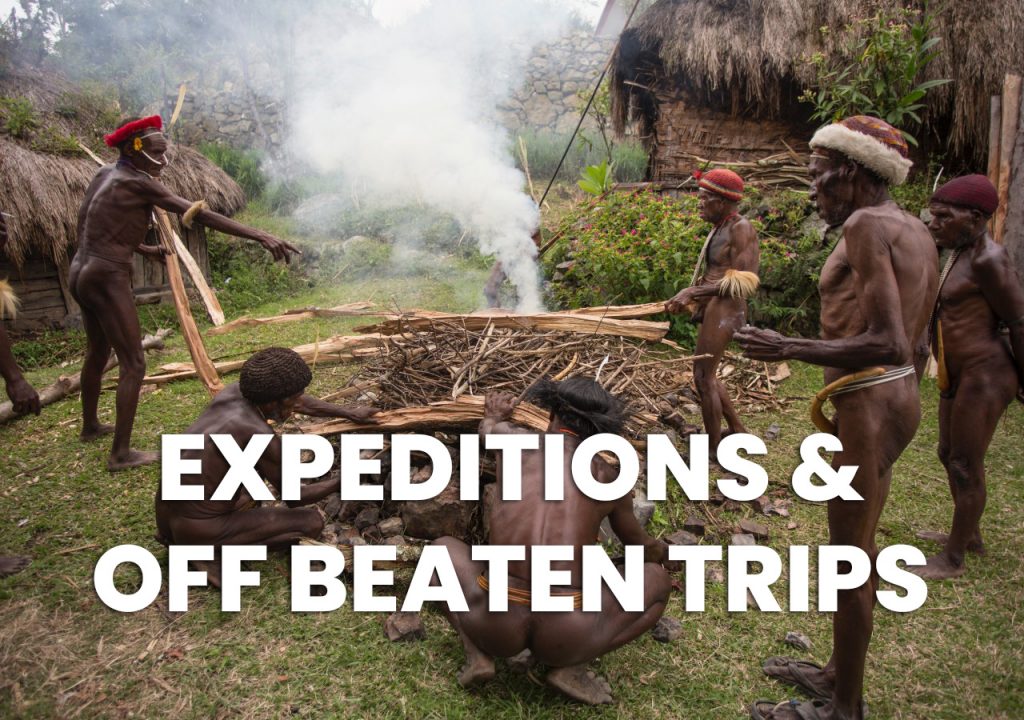
- Adventure & Sport
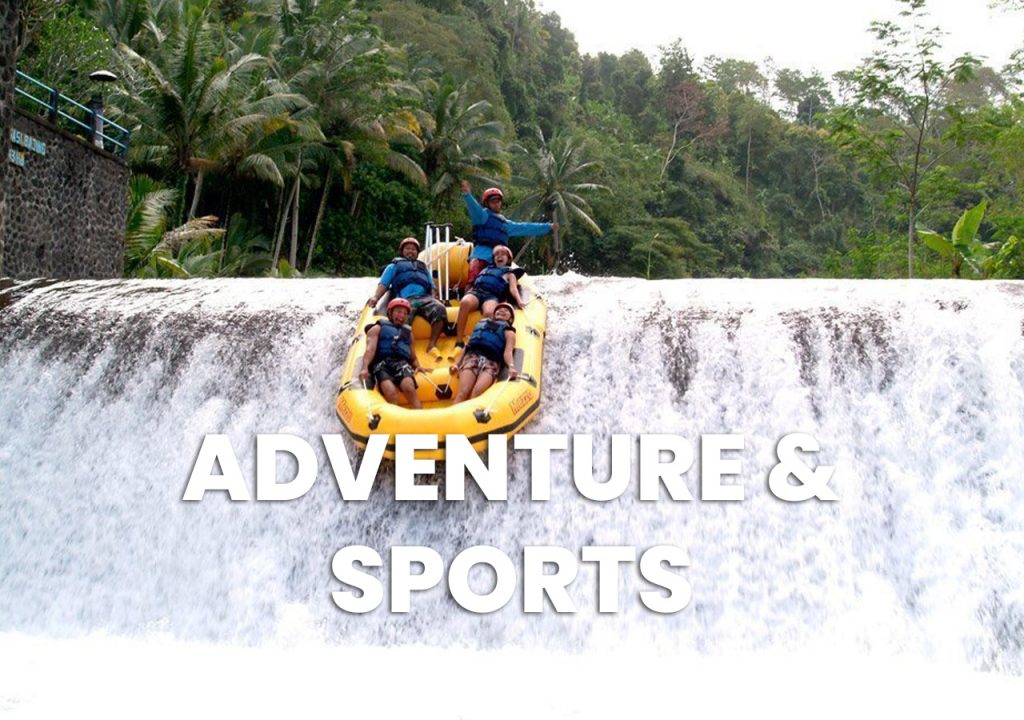
- Shared Trips & Join Our Groups

- Offers & Last Minutes Deals

- Interest & Activities

- Photography
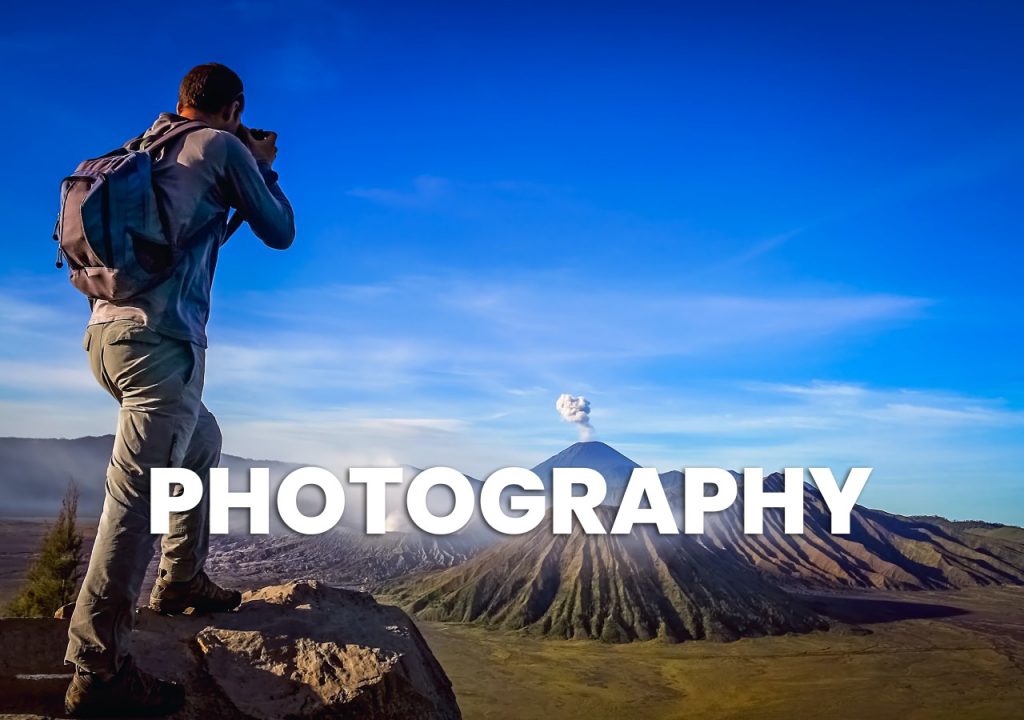
- TOUR SEARCH
- POPULAR TOURS
- RECOMMENDED TOURS
- BOOK FLIGHTS, FAST BOATS, TRANSFERS
- TAILOR-MADE TOUR
- TRAVEL BLOG
- INDONESIA TRAVEL GUIDE
- MICE TOURISM
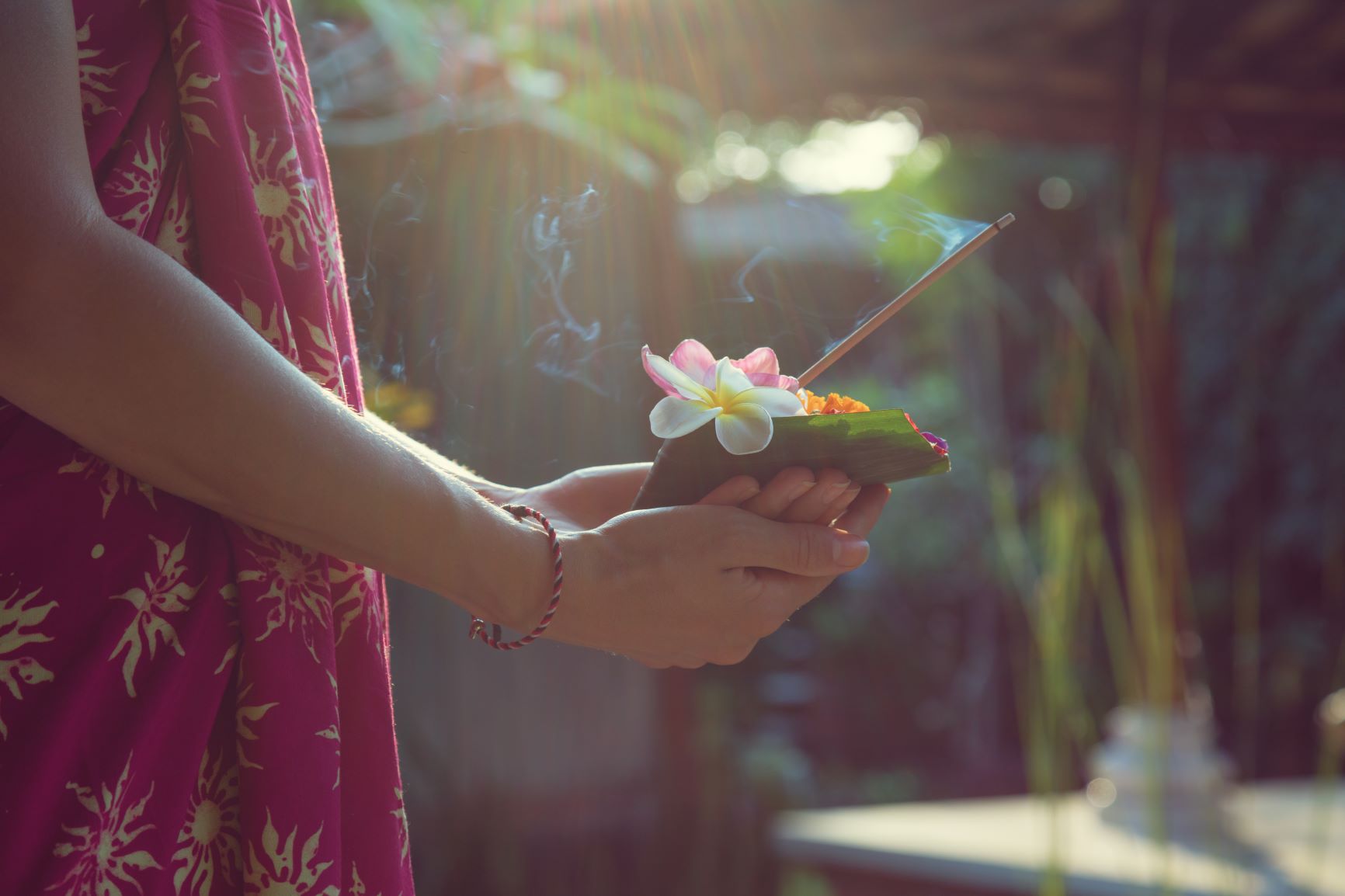
- LARGE GROUPS & SPECIAL EVENTS
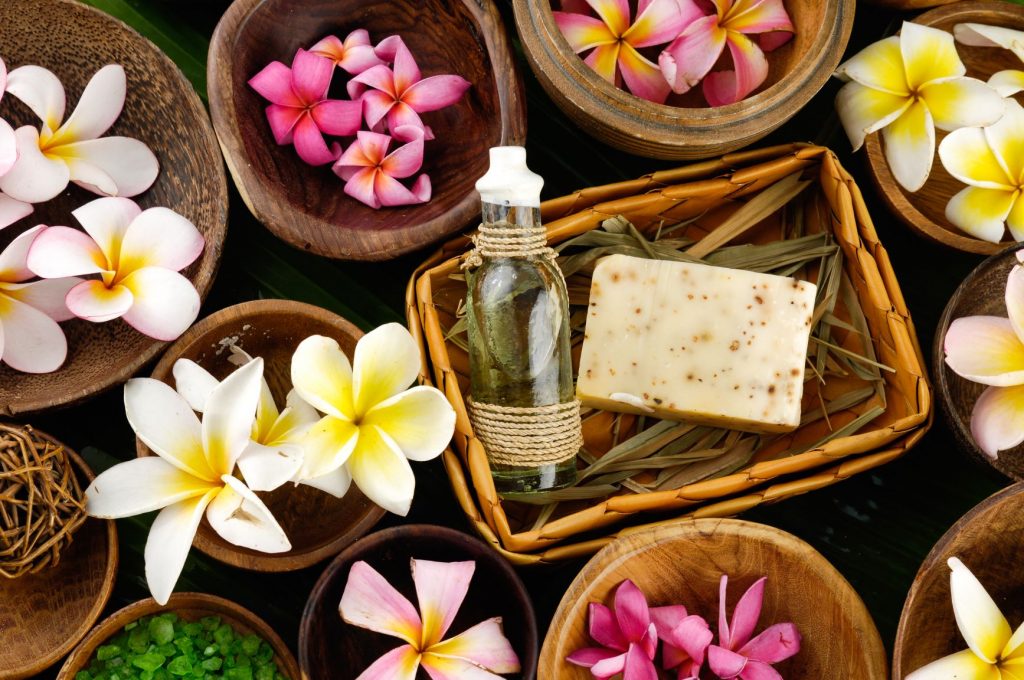
- TRAVEL AGENCIES - B2B

- Tour Search
- Tailor-Made Tour
- Large groups & Special events
- Travel Agencies – b2b

Indonesia trip types
From a small city tour and all-around island exploration to family adventures and multi-island holidays. From popular tourist attractions in the city to virgin beaches and jungle expeditions. There are so many different types of trips in Indonesia that is not easy to choose. But say no more! Come2Indonesia is able to give you some ideas and inspiration for your next trip to Indonesia.
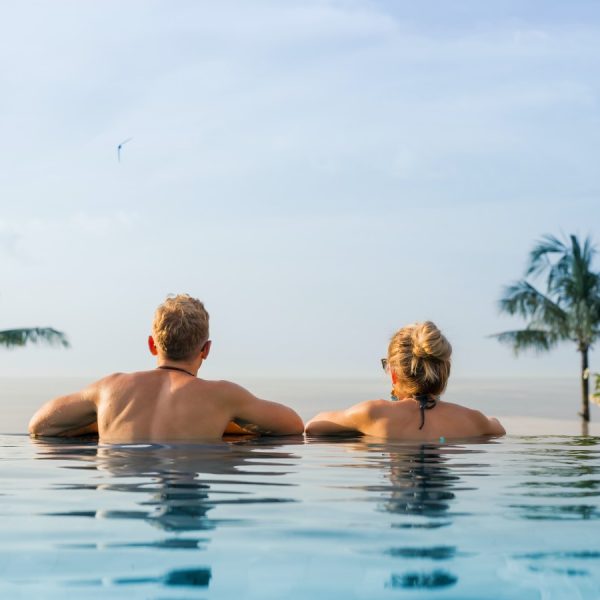
Indonesia Tailor-Made Tours

Indonesia travel destinations
Come2Indonesia offers a large range of trips in the best travel destinations in Indonesia spread all around archipelago. With more than 16.000 islands with different cultures and landscapes , our Indonesia travel destinations always have an option for all kind of traveler!

The most popular tours in Indonesia
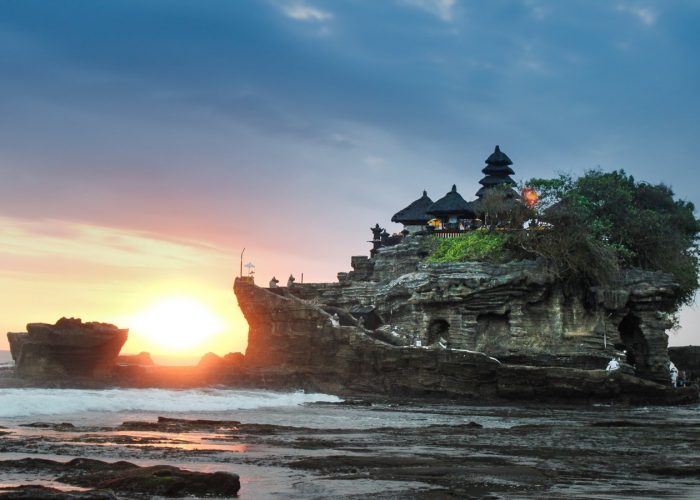
Bali Fantastic Route – Tanah Lot Temple
Taman Ayun Temple Jatiluwih Rice Fields Ulun Danu Temple Tanah Lot Temple West Bali
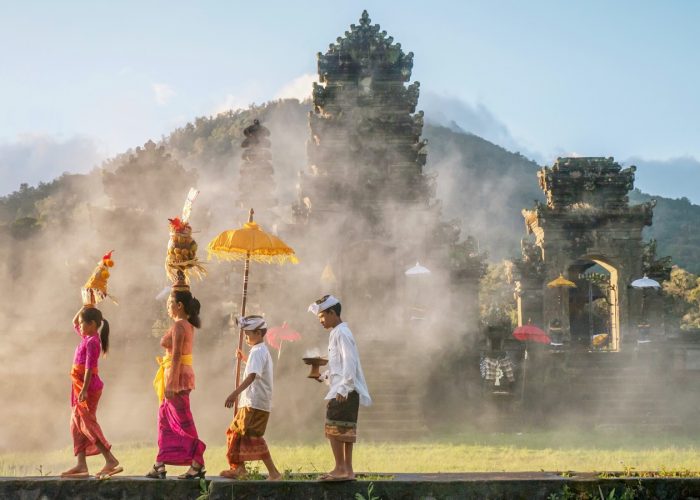
The Mother Temple Besakih & Surrounding
Kusamba Beach Temple Goa Lawah Kertagosa Palace Balinese Hinduism Bali, Island of Gods
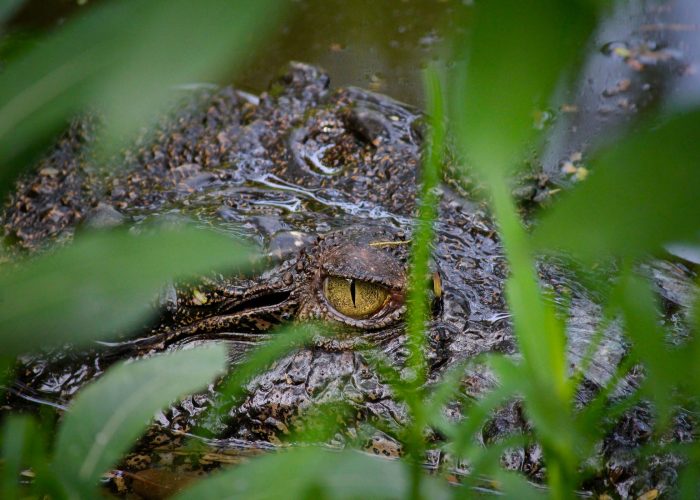
Borneo Orangutan Deluxe Houseboating Tour (3D/2N)
Sustainable tour Deluxe Boat Tanjung Puting National Park Local specialized crew Night treking included

Best Borneo Orangutan Tour (3D/2N)
Sustainable tour Our own boats Tanjung Puting National Park Local specialized crew Night treking included
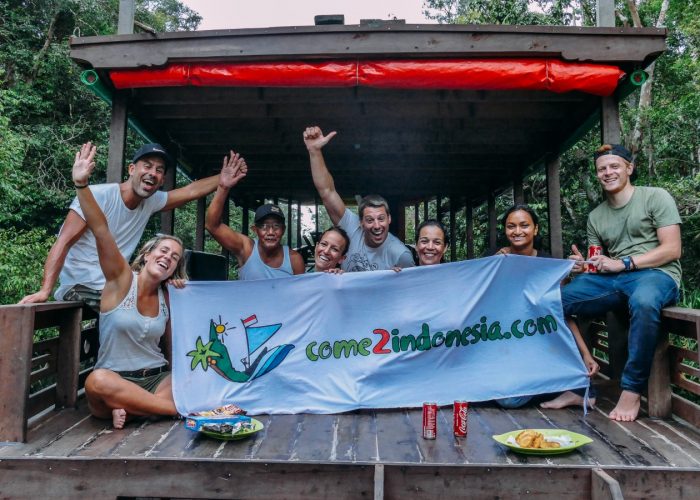
Shared Borneo Orangutan Tour (3D/2N)
Sostenible Tour Our own boats Tanjung Puting National Parl Local specialized crew Nice atmosphere
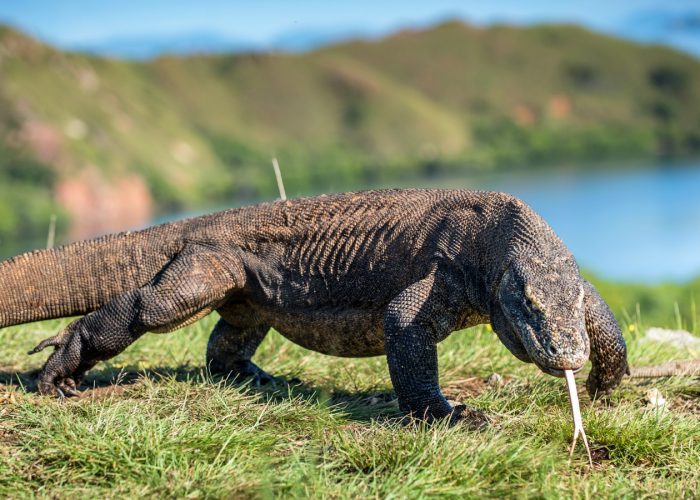
Rinca & Komodo Jurassic Adventure (3D/2N)
Komodo dragons Short and easy trekking Snorkeling trip One-night hotel stay Full-board accommodation on boat
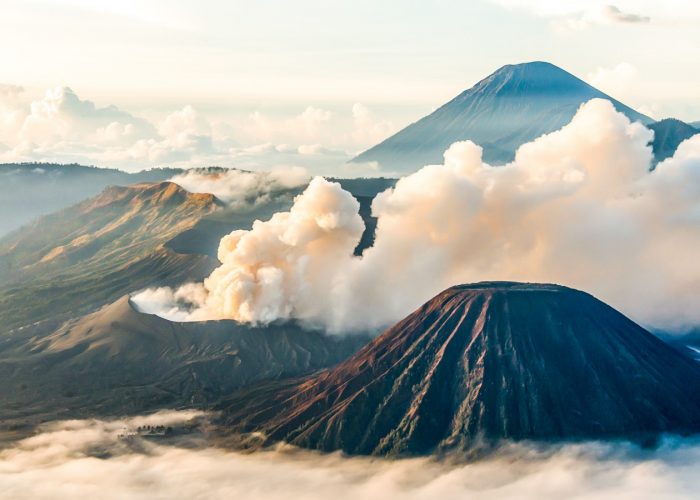
East Java Volcanoes: Mount Bromo & Ijen Crater (3D/2N)
Private Trip Stunning views Blue fire Accommodation included Transfer to Bali included
Yogyakarta Temples, Borneo Orangutans, Majestic Bromo-Ijen, Bali & Tropical Gili Islands (13D/12N)
Prambanan Temple Borobudur Temple Meet the orangutans Majestic Bromo-Ijen Free day in Gili Islands

Borneo Orangutans, Yogyakarta Temples & Bali (10D/9N)
Meet the orangutans Borobudur Temple Prambanan Temple Highlights of Bali Free day in Ubud
Our recommended trips to Indonesia
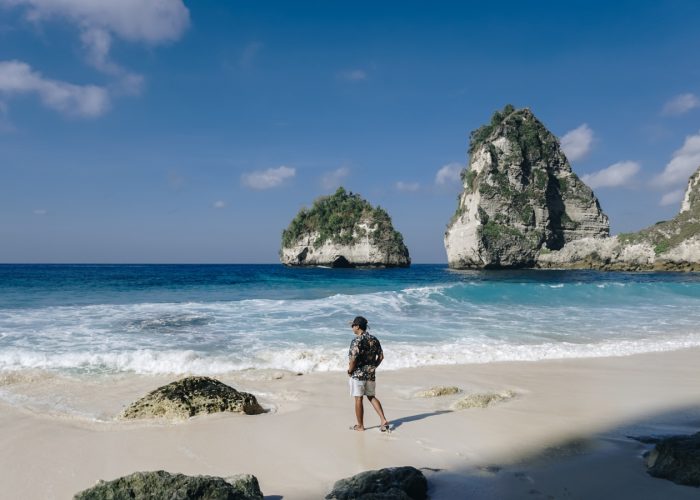
Best of Nusa Penida & The Gili Islands (5D/4N)
2 noches en Nusa Penida 2 noches en las Islas Gilis Tour de snorkel en barca Tour en coche por Nusa Penida Día libre en las Islas Gilis Vacaciones de relax
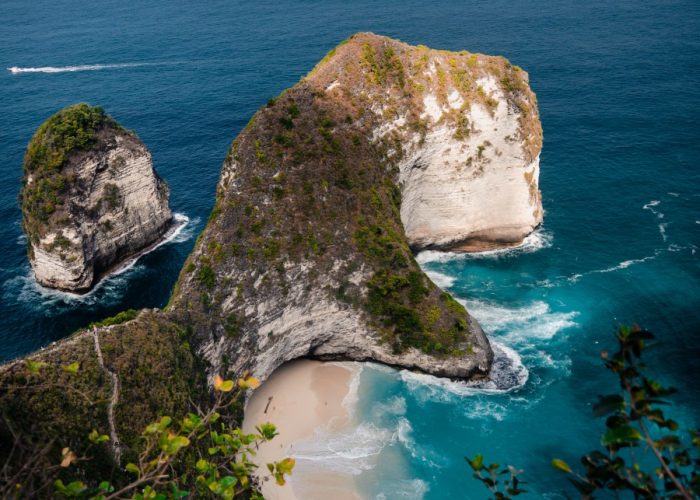
Holidays in Bali and Nusa Penida (10D/9N)
5 nights in Ubud 3 nights in the Nusas 1 night in Seminyak The best of Bali Days off in the Nusas Relaxing holidays
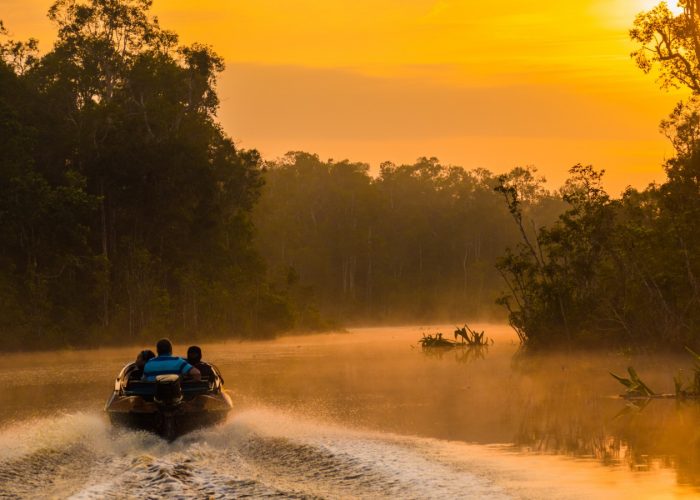
Borneo Orangutan Tour by Speedboat (3D/2N)
A private speedboat adventure Hotel accommodation Rivers less visited by tourists Birding Special photographers
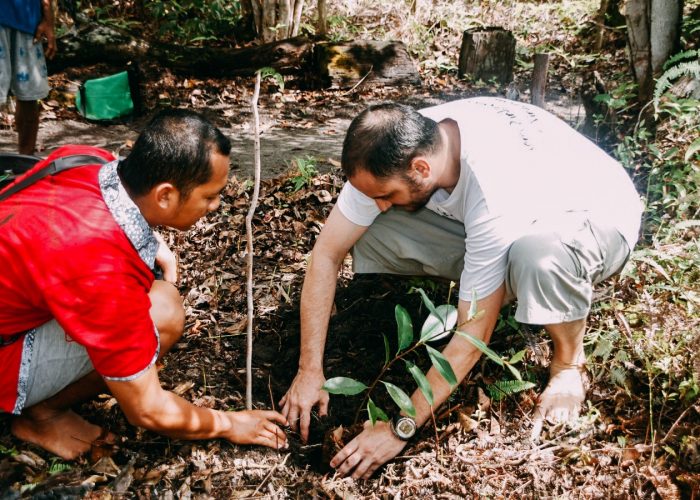
Borneo Orangutan & Reforestation Tour (4D/3N)
Trekking in the jungle Our own boats Plant a tree Local specialized crew Sustainable tour
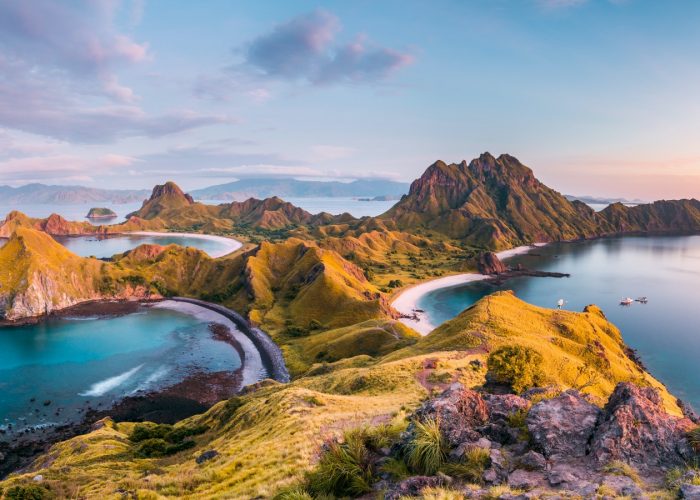
Padar & Komodo Jurassic Adventure (3D/2N)
Padar island visit Pink Beach Snorkeling in Manta Point Komodo Dragons Full-board accommodation on boat
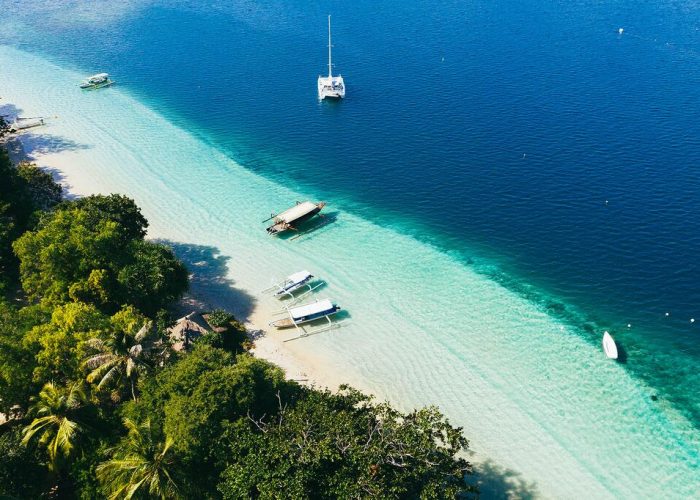
The Unknown Gili Asahan (3D/2N)
Cozy yet luxurious rooms Pristine white sand beaches Preserved wild beauty Paradise Island South west of Lombok
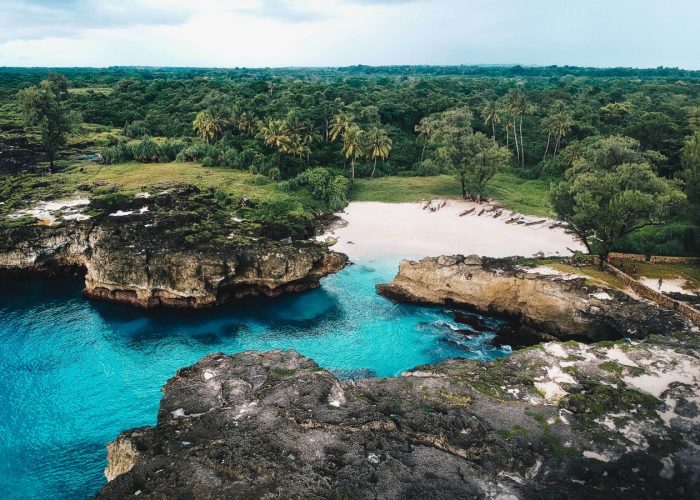
Southwest Sumba: Most Photogenic Villages & Beaches (3D/2N)
Salt water lake of Weekuri Sunset at Lendongara Hill Sumbanese cultural museum Cliff-side beach of Bwanna Views of Tanjung Mareha
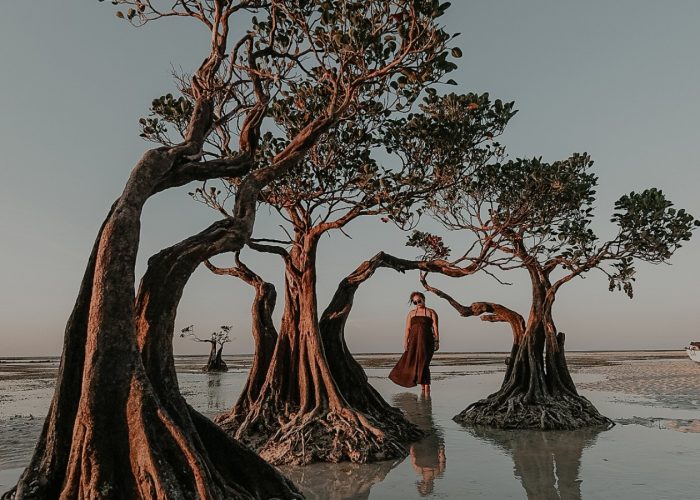
East Sumba: Savanna, Waterfall & Villages (3D/2N)
Sunset at Walakiri Beach Puru Kambera Savanna Traditional villages Tanggedu Waterfall Sunrise at Tenau Hill
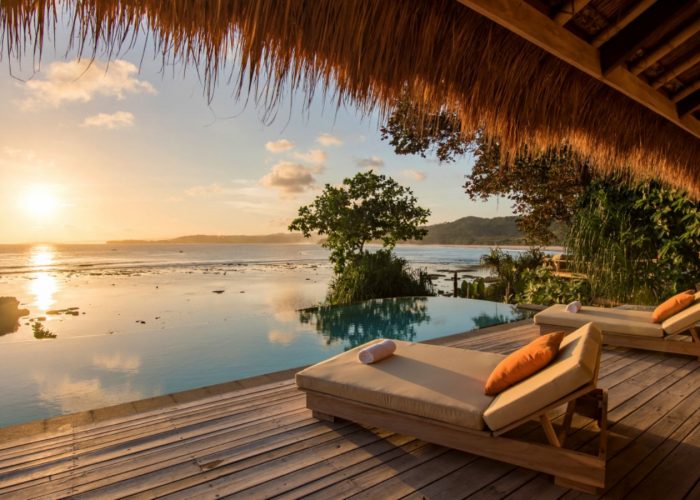
Sumba Luxury with Nihi Sumba (6D/5N)
Traditional villages Hidden Waterfalls Untouchable nature Unforgettable sunsets Marapu megalithic tombs
Other services for your holidays in Indonesia
Come2Indonesia provides a wide variety of services for your travel to Indonesia and tourism needs , making us one of the leading travel agents in Indonesia. From booking your domestics flights to arrange your airport transfers or book your fast boat ticket.
Domestic flights in Indonesia
Our Indonesia Travel Expert will help you to save your time and energy by find the best connection, compare the possibilities and book the bests flights in Indonesia.
Book fast boats in Indonesia
Book your Indonesia boat tickets in advance to avoid last minute problem before departure.
Transfers all around Indonesia
Your holiday time is precious! Have the car ready for you at the airport on your arrival to Indonesia or to take you for the day trip in Indonesia or between places.
Why travel to Indonesia with us?
Organizing your own holiday in Indonesia can be stressful task. Let us do the work for you! By choosing Come2indonesia, you can save time and hassle by booking all of your itinerary services directly with a specialized local agency.
Our team are with you from the start to the last day of your adventure in Indonesia. Whether you choose to do a tailor-made holiday, wildlife cruise or small group tour, you will experience the best wildlife Indonesia holidays imaginable.
We are flexible! Do you want to change your hotel? Take a different flight? Extend your trip? It’s fine! No request is too big or too small – we’ll make it happen!
Indonesia Traveling Highlights
Reviews of our travelers in Indonesia
Since we began in 2007, we have been receiving a lot of feedback from our clients . We take all of them to our hearts and learn from them to keep improving the way we handle our trips in Indonesia as well as crews. While we can sit and talk with you how amazing our trips all day, it is surely best if you could see the positive feedbacks yourself.
The best and greatest professionals!
We have been through Indonesia and repeated experience with them and the truth is that we have not had any problems. They organize everything from your arrival, local flights, transfers, hotels, etc., to different islands, friendly guides and they also speak Spanish. There is no doubt that I would count on them.
Trip Advisor

A trusted agency for your trip to Indonesia We made a 15-day visit with them to Indonesia, visiting Borneo, Java, Bali and Gili. They adapted very well to what we wanted, always in contact with Guiomar and once there everything was very well organized. We left very happy with the agency and with the guides they put us with. Definitively an agency in Spanish that you can trust
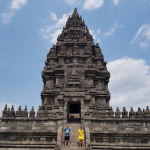
Unforgettable trip to Borneo!
I hired the klotok tour with them to visit the orangutan fields in Borneo. 3 days / 2 nights. Incredible journey. From the first moment, very good communication, explanation of the entire journey and good management. The trip itself a wonder, perfectly organized, everything in its time, large, clean and comfortable boat. The charming crew, always aware of what you may need. How I’d say the perfect ORGANIZATION.

An unforgettable experience! I traveled with a friend. We took the tour to see orangutans in Borneo and I loved it. We did it in a Klotok with more travelers and the guide Isai who spoke Spanish and was also very fun. It was a great trip through the national park and a 100% recommended experience!!
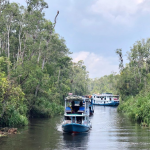
We have been traveling with this agency for more than 10 years, which is run by a Spaniard Norberto and his wife Melysa. It has never failed us, every year they go out of their way to make routes in Indonesia, mixing relaxing adventures and diving I recommend this agency since they never leave you hanging, something easy in Indonesia Trip advisor
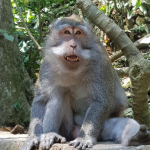
Hello Rendy,
Thanks for your email. Getting feedback of the customers is always so important and that shows that you really want to provide an excellent service. We were very happy about the trip and so comfortable with the crew. They were helpful and kind with us. We really enjoyed the time spent and we will recommend you for sure! I will send you some pictures when I get some time to transfer them to the pc.
I promised myself to write to you, because it was really a unique and unforgettable experience and this was certainly thanks to the whole team of our boat, Rambo 1. I would like to thank everyone, our guide , Andy Hartadi, Captain Safarudin the wonderful chef Ratna with his beautiful daughter and the always very kind and very nice Indra. All of them have helped to make this already fantastic experience truly unique.
We did the 3d2n orangutan tour in November, with the guide Opi. The experience was incredible, not only for the trip of being in a Klotok in the jungle and seeing orangutans but for the service. We learned a lot and had impressive meals (something difficult, given that you are in the middle of the jungle), on an environmentally aware trip and employing local people. I hope they continue to grow.
Google Review
We have had a unique and incredible experience. From the first moment both the guide Isai, the captain of the Klotok, and the lady who attended us were very friendly and helpful, always with a smile and with great respect, and taking care of the details. The delicious food, the best of our entire trip to Indonesia, without a doubt !!! Isai the best in the jungle of Borneo! hahaha … greetings from Tenerife, Canary Island.
Facebook Review
Traveling this year to Bali, Java Island and Singapore was amazing, but above all the quality of the service provided by Come2indonesia.com, they made the trip go on wheels, solving the inconveniences that arose, I would definitely recommend one and a thousand times, thanks to all the team.
Indonesia travel blog
If you are planning your trip to Indonesia and need some insight for a good travel deal, experience the local side of the country, and turn your dream trip into a reality, you are in the right place. This Indonesia travel blog will give you road tested tips, advice, and suggestions so you can enjoy your travel around Indonesia at the fullest.

How to Register Your Mobile Phone IMEI Number in Indonesia (Update 2024)

All About Bornean Orangutans and Jungle Boat Trips
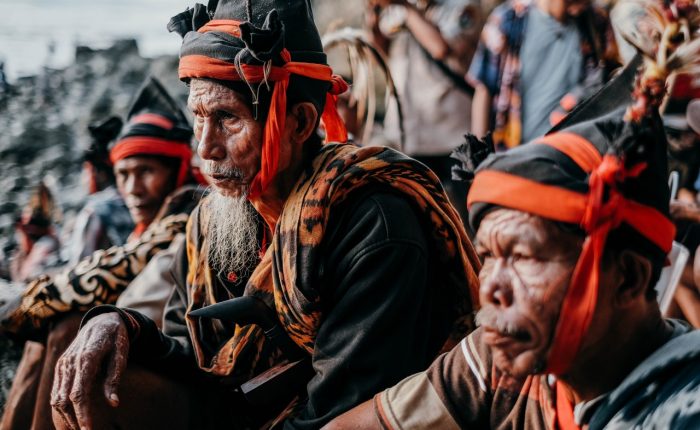
Discover SUMBA ISLAND & its incredible PASOLA FESTIVAL
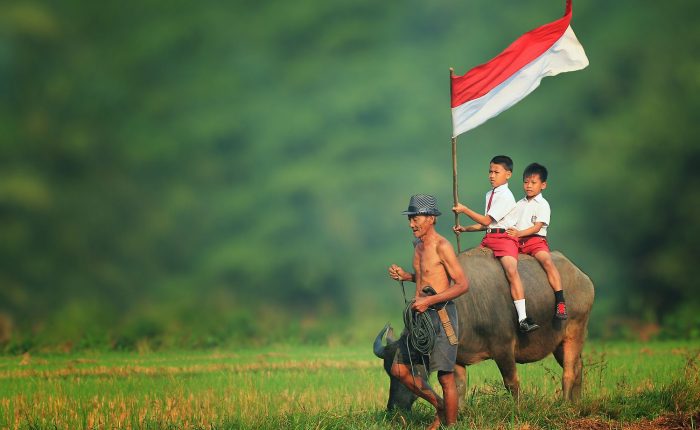
Learn Bahasa Indonesia: LESSON 1 – INTRODUCTION
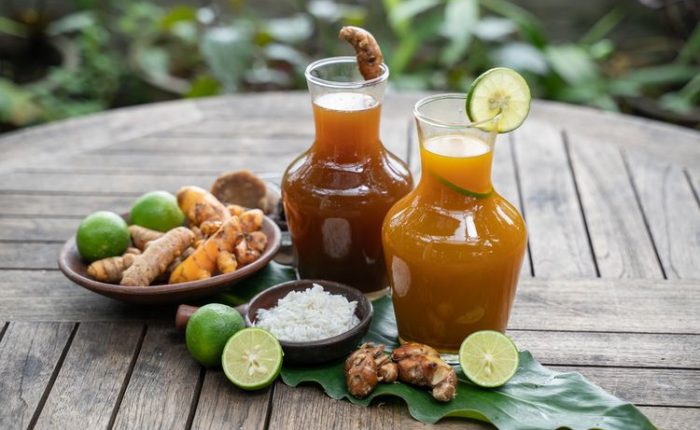
Traditional Indonesian drink: JAMU
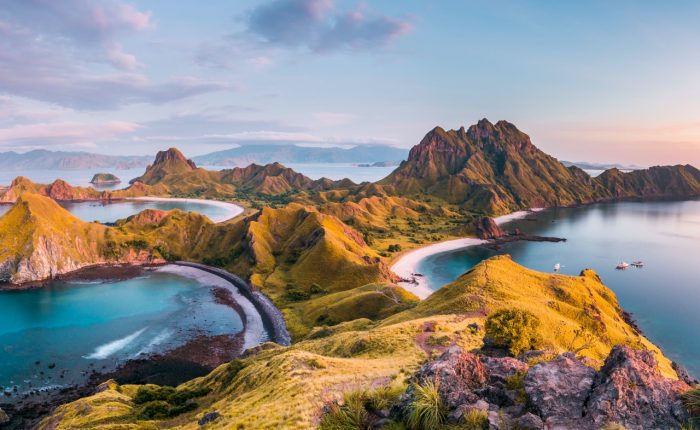
Indonesia Travel Guide: All the information you would like to know before travel to Indonesia

Traditional Indonesian Dessert: MARTABAK MANIS
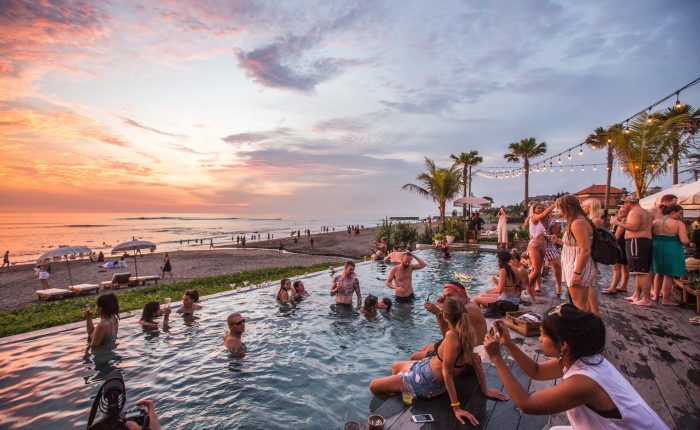
A Guide to the Best Restaurants, Bars, and Beach Clubs in Bali

Traditional Indonesian dessert: KUE PANCONG

Traditional Indonesian food: BOLU MACAN BANGKA
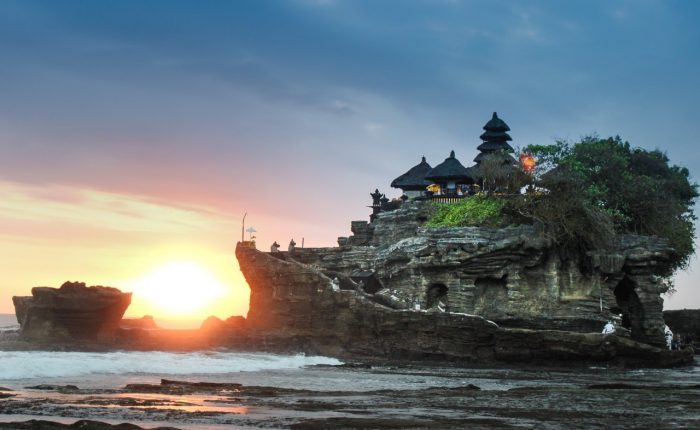
Bali’s best TEMPLES
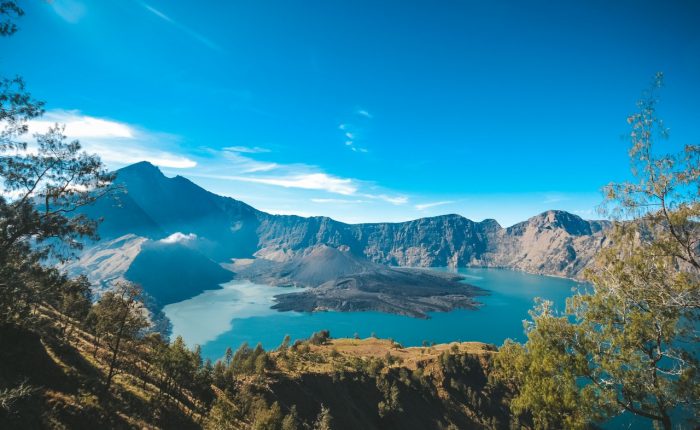
Lombok Travel Guide
Subscribe to our newsletter to get the top 20 tours in indonesia guide, the top 20 tours in indonesia guide.
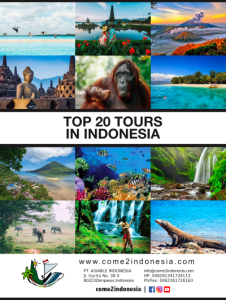
Email address:
We are featured in


Indonesia Travel Guide: Everything You Need to Know for 2024
Introduction.
Welcome to Indonesia , a country of unparalleled diversity and beauty, boasting over 17,000 islands, each with its own unique blend of cultures, cuisines, and landscapes. This Ultimate Indonesia Travel Guide is your essential companion on a journey through a land where adventure and tranquility coexist. From the vibrant streets of Jakarta to the serene beaches of Bali, and the untouched wilderness of Papua, Indonesia promises a wealth of experiences for every traveler.
With its vast archipelago, Indonesia offers something for everyone; whether you’re a thrill-seeker, a culture enthusiast, a foodie, or just someone looking for a slice of paradise. Its diverse range of adventures includes trekking up smoldering volcanoes, diving into a vibrant underwater world, exploring ancient temples, and indulging in rich culinary delights.
As you read through our comprehensive guide, we’ll unveil the best times to visit, reveal the must-see destinations from renowned travel experts, provide detailed planning tools, and share essential travel tips from the community. Whether you’re planning your first trip or returning for more, this guide is packed with valuable insights to enhance your Indonesian adventure. Join us as we explore beyond the well-trodden paths of this enchanting destination and discover the heart and soul of Indonesia.
Visit Indonesia Indonesia’s Official Tourism Website
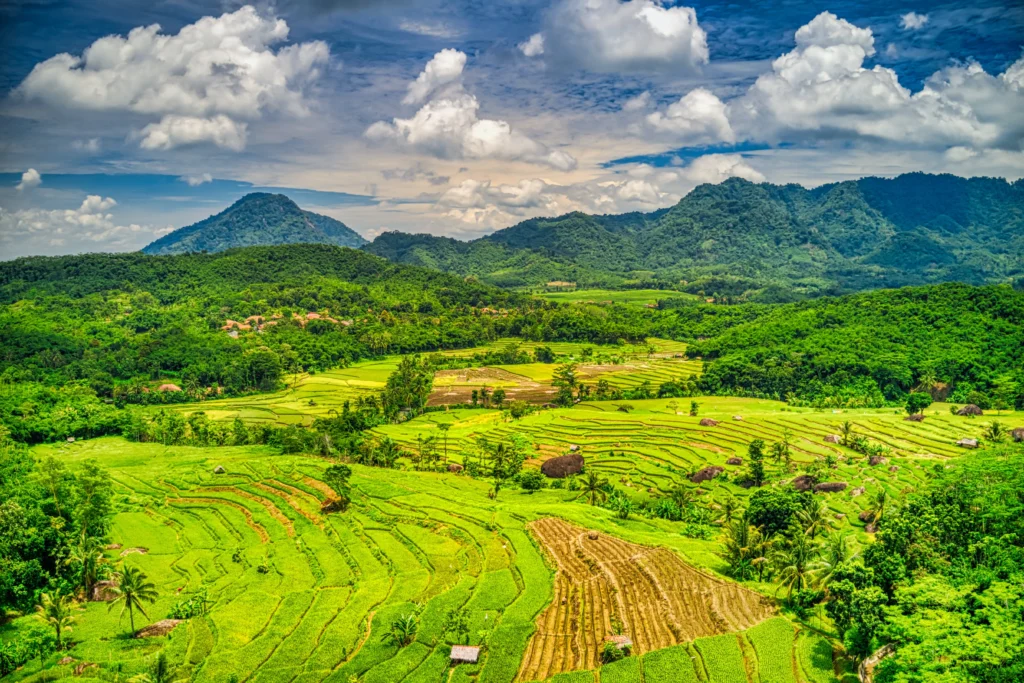
Related Posts
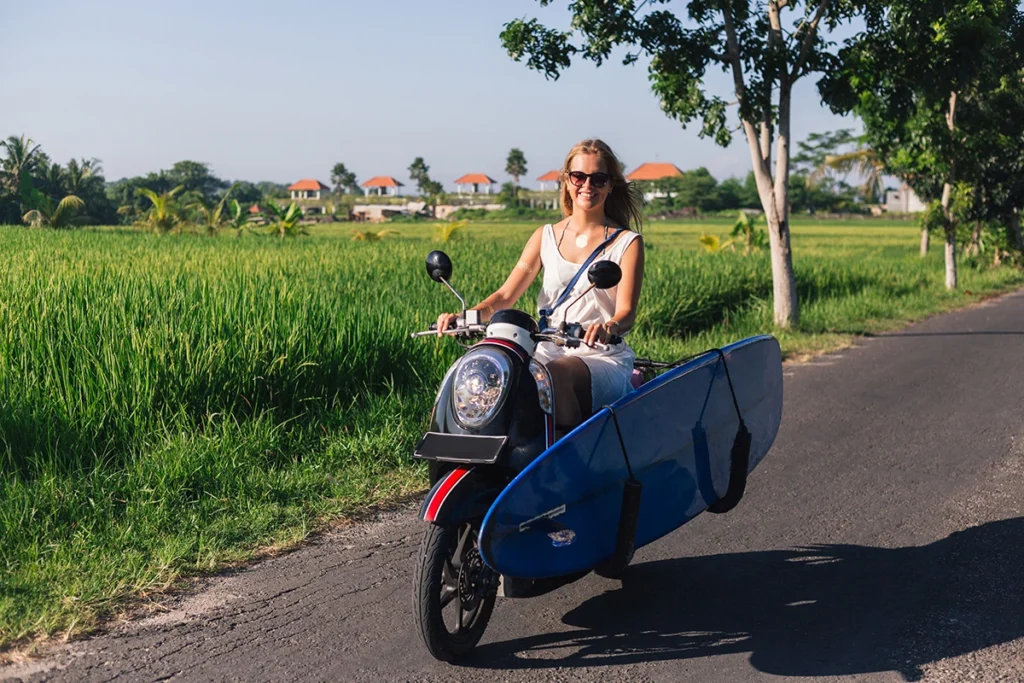
Bali on a Budget: Ultimate Guide to Affordable Island Bliss
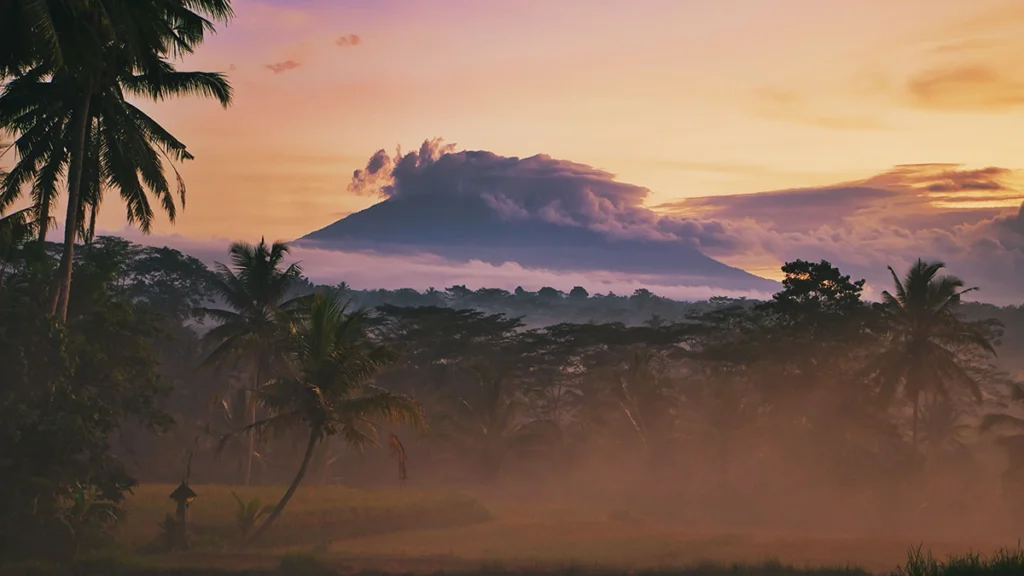
Bali in October: Ultimate Guide to Weather, Activities & Tips
Leave a comment cancel reply.
Your email address will not be published. Required fields are marked *
Save my name, email, and website in this browser for the next time I comment.
Keindahan pesona Indonesia yang membuatnya wajib dijelajahi
Dengan bentangan gugusan pulau dari Sabang hingga Merauke, Indonesia memiliki keberagaman wisata alam, budaya, hingga kuliner yang menggoda. Ramah tamah warga lokal yang membuat wisatawan nyaman dan merasa di kampung halaman juga semakin indah ketika unsur adat istiadat tradisional yang masih autentik dikenalkan. Selain itu, kekayaan flora serta fauna langka nan memesona pun tak kalah seru untuk menambah daftar pengalaman terbaik yang bisa dirasakan saat menjelajahi Indonesia. Semua keindahan ini cuma bisa ditemukan #DiIndonesiaAja.
Jelajahi Berbagai Destinasi Indonesia

Maluku & Papua
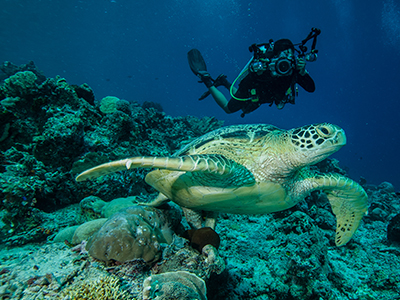
Tempat Populer di Indonesia
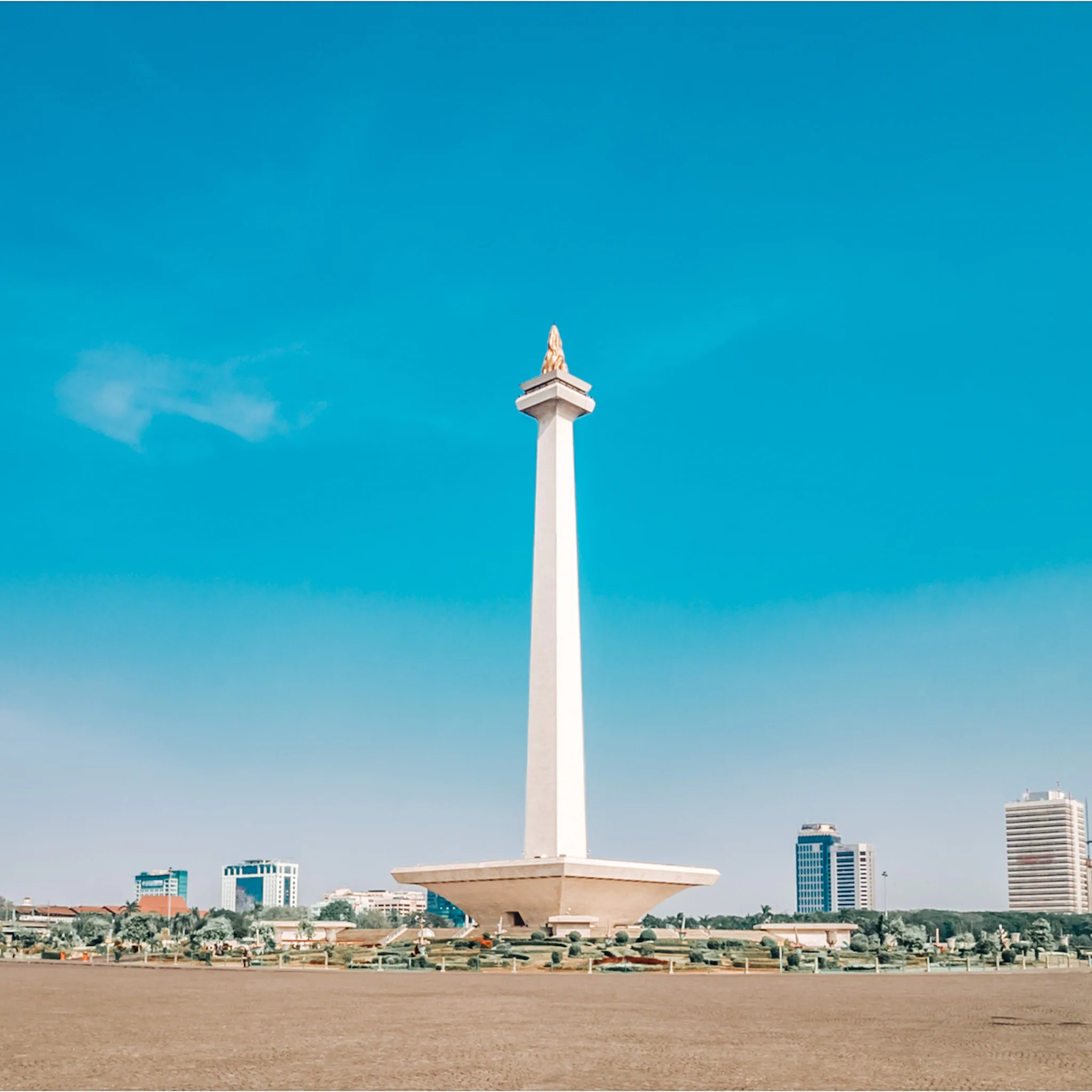
Telusuri 5 Pesona Wisata di Indonesia

Kunjungi situs lainnya
Situs ini merupakan situs resmi Kementerian Pariwisata dan Ekonomi Kreatif Republik Indonesia. Semua isi yang tercantum di dalam situs ini bertujuan untuk memberikan informasi dan bukan sebagai tujuan komersial. Penjualan yang ditampilkan merupakan tanda kemitraan yang akan menghubungkan Anda kepada Mitra Kami.

Indonesia Travel Guide
Last Updated: August 23, 2023
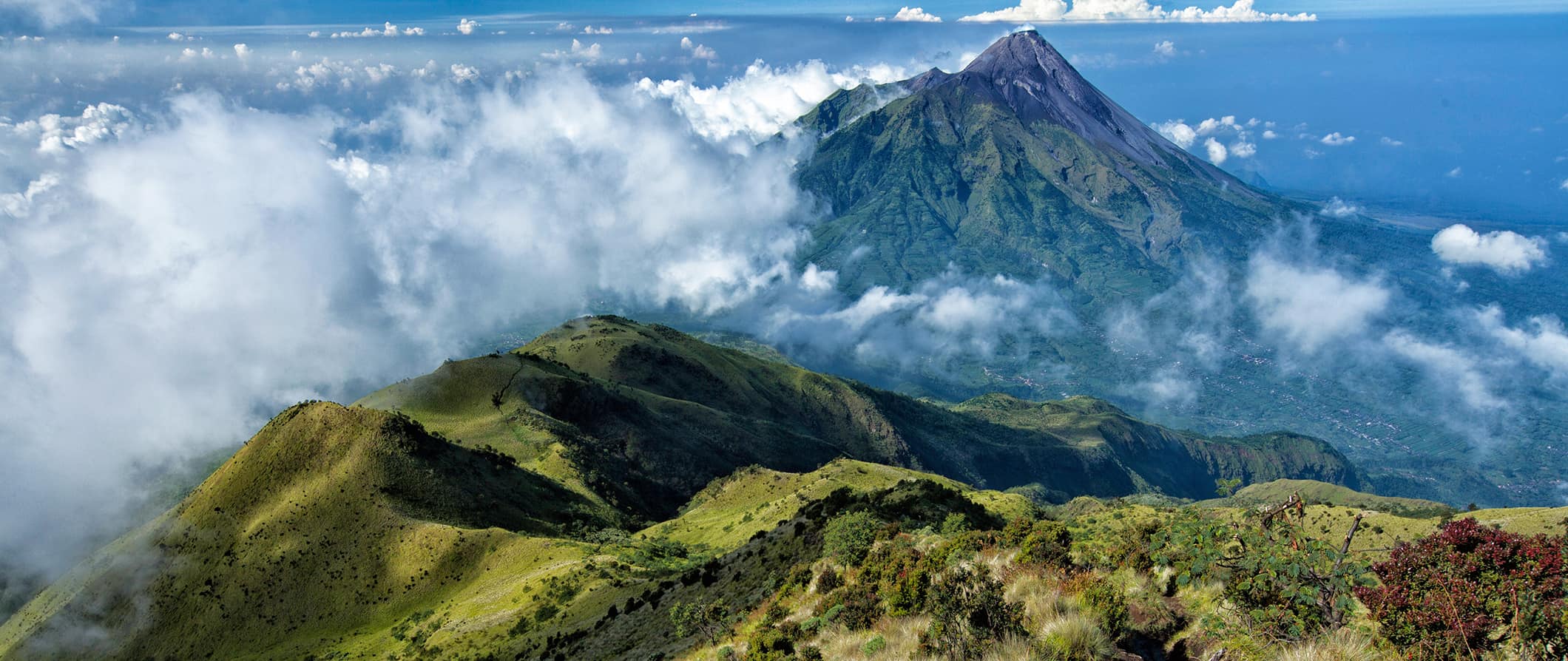
With over 17,000 islands, Indonesia is the world’s largest island country. Home to over 261 million people, it boasts stunning landscapes, incredible beaches, amazing food, and affordable prices.
While most people just visit Bali, backpacking further afield in the country is an underrated activity. With so much on offer, it can take months to see everything because there is just so much to see and do here: hectic and chaotic cityscapes, cool white sand beaches, and violent volcanoes. Indonesia has it all.
And it’s easy to visit Indonesia on a budget too. It’s extremely inexpensive and your money goes far here.
While most travelers fly to Bali and visit the Gili Islands or head to Lombok, I encourage you to try to get to the less touristy destinations and off the beaten path. Find dragons in Flores, go hiking, see the historic ruins of Java, and go to Sumatra. You’ll find even cheaper prices and far fewer crowds once you escape the digital nomad hub of Bali.
This Indonesia travel guide can help you plan your trip, save money, and make the most of your time in this island paradise!
Table of Contents
- Things to See and Do
- Typical Costs
- Suggested Budget
- Money-Saving Tips
- Where to Stay
- How to Get Around
- How to Stay Safe
- Best Places to Book Your Trip
- Related Blogs on Indonesia
Click Here for Destination Guides
Top 5 things to see and do in indonesia.
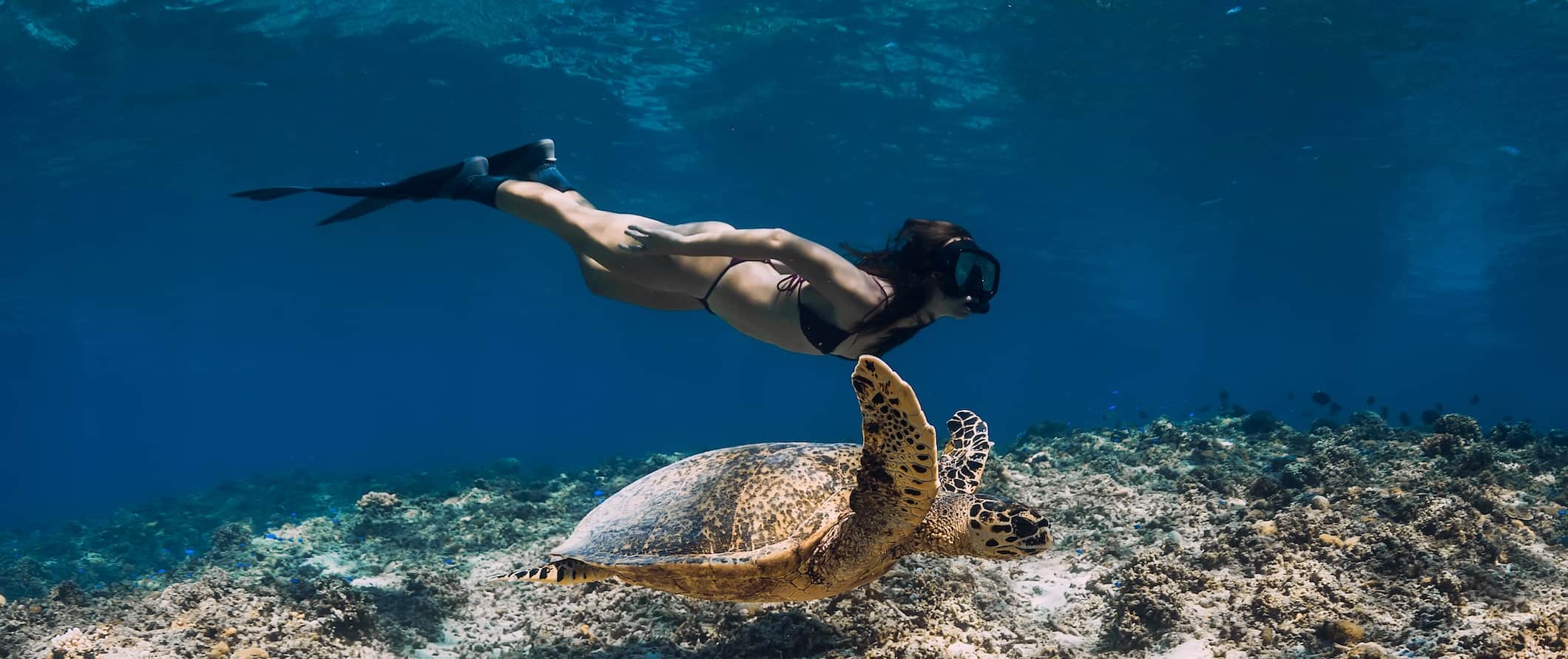
1. Relax in Bali
Bali is probably the most famous of Indonesia’s islands. Although often crowded with travelers, there is no escaping the fact that this place is beautiful. Try some surfing at Bingin Beach or visit the Pura Besakih, the Mother Temple, which is truly stunning to behold. Make sure you see some traditional Balinese dancing in Ubud too. You can also join a yoga retreat pretty much anywhere on the island and cooking classes are also plentiful and make for a great souvenir.
2. Dive in the Gili Islands
For a true sense of an island paradise, head to the Gili Islands . There are excellent (and cheap) scuba and snorkel facilities as well as great nightlife on Gili Trawangan. These islands are super popular with backpackers thanks to their super cheap accommodation and food, party scene, and stunning beaches for lazing around all day.
3. Admire Borobudur
Borobudur is a the world’s biggest Buddhist temple complex, dating from the 8th and 9th centuries. With 2,672 reliefs meant to highlight Buddhist teachings, it’s made from blocks of volcanic rock. Each level is supposed to describe the stages of life. It is said you can’t move on to the top until you discover the meaning of each relief. Admission for foreign adults is around 380,000 IDR.
4. See Komodo dragons
The subject of more nature documentaries than any other lizard, the Komodo dragon is a force to be reckoned with. Komodo National Park, part of the Lesser Sunda Islands, is the only place to see the world’s largest lizard in the wild, which grows up to 10 feet long and weighs over 135 kilograms (300 pounds). Admission is 150,000 IDR during the week, with prices rising to 250,000 IDR on Sundays and holidays (just note that there are additional fees for other activities including ranger fees, hiking fees, diving fees, and so on). The only way to really visit Komodo National Park is on a tour since the islands are over an hour away from Labuan Bajo port on Flores Island.
5. Visit Bromo-Tengger-Semeru National Park
Bromo-Tengger-Semeru National Park covers a total of 800 square kilometers (308 square miles) at the center of East Java and is the largest volcanic region in the province. Get up early to catch one of the most memorable sunrises of your life from the top of Mount Bromo or Mount Semeru. The easiest way to get here is from Probolinggo, through the village of Ngadisari. Although it doesn’t take long to get to the summit (around 45 minutes up a sandy slope) and access to the trail is free, a number of tour operators run guided trips through the park, which includes transport to and from the park.
Other Things to See and Do in Indonesia
1. explore hindi prambanan.
There are 244 temples at this 9th-century UNESCO World Heritage Site, with the central compound being the main attraction. There are eight minor temples and eight major temples here, with the tallest being 45 meters (150 feet) — which is actually taller than Borobudur. Located in Yogyakarta, there’s a lot to see, so schedule a full day here (it’s the second-largest temple complex in Southeast Asia, after Angkor Wat). Admission is around 380,000 IDR.
2. Wander Jakarta
Indonesia’s capital is a large, bustling city with a population of over 10 million. You could easily spend a few days here as there is a lot to see. Admire Istana Merdeka, the presidential palace (visitors are not allowed inside); see the Monas Tower, a symbol of Indonesia’s independence; check out Ancol Beach; visit the National Museum, and go shopping at the Jalan Surabaya Flea Market. For a moment of calm, people-watch from one of the cafes overlooking Fatahillah Square in the Old Batavia, the Dutch Quarter, where you can take in the historic architecture as you take in the local pace of life.
3. Snorkel or dive in Bunaken
The Bunaken National Marine Park is located in the Bay of Manado and it’s where you want to go if diving or snorkeling is your thing. These deep waters offer fantastic visibility and some of the world’s most biodiverse marine life. Keep an eye out for tuna, sharks, rays, turtles, sea snakes, and more. Entry to the marine park is 50,000 IDR per person, though children under 10 enter free.
4. Broaden your taste buds
Indonesia is home to 17,000 islands and over 260 million people. The country is brimming with diverse cultures, traditions, and beliefs. If you want some idea of how diverse this place is, there are over 700 languages spoken here! This diversity is very much reflected in the food. Javanese, Sundanese, Padang, and Balinese food are just some of your options. Hit the markets, participate in cooking classes, or take food tours to get a taste of what the country has to offer. Your tastebuds will thank you!
5. Visit Yogyakarta
Yogyakarta is Indonesia’s cultural hub and is a much less industrial city compared to Jakarta. There is an interesting blend of old customs with modern living here (the region still has a sultan/monarchy). It’s a hip place filled with street art, galleries, cafes, great nightlife, and a strong arts community. Yogyakarta is also a good jumping-off point for exploring the popular and picturesque Borobudur and Prambanan sites.
6. See the orangutans in Sumatra
A mysterious and rare primate, the orangutan finds its habitat on the Indonesian island of Sumatra. A visit to see these primates is a moving experience. And, given the rapid deforestation and fires in the area, you probably want to do this sooner rather than later as these animals are gravely endangered. If you go, make sure you’re traveling with an eco-friendly tour company. Reputable companies don’t let you get in close contact with the animals, as the risk of disease is too high. Even a common cold can knock out a baby orangutan. Nevertheless, seeing these majestic animals is an amazing and life-changing experience. Week-long guided treks cost around 20,000,000 IDR per person.
7. Experience village life in Kalibaru
Kalibaru is a small village on the southeastern side of Java. It’s quiet, secluded, and a great place to tour one of the many plantations (cacao, coffee, dragon fruit, rubber, and spices, among others) in the area on your way to or from Bali. It’s not as well-visited as many other places in Indonesia, meaning you can escape the crowds and get a chance to experience what local life is really like. You can stay here after a trip to Mount Bromo, or just visit on a day trip.
8. See the Bogor Botanical Gardens
Located 65 kilometers (40 miles) outside of Jakarta, the Bogor Botanical Gardens have over 200 acres of land and 15,000 species of plants and trees. The gardens are a lovely spot in which to lose yourself for a couple of hours with a book and some snacks. Admission is around 26,000 IDR. There is a commuter train between Bogor and Jakarta with a stop right next to the gardens.
9. See the Banyu Wana Amertha Waterfalls
These are some of the most beautiful waterfalls in Bali, and yet not many people make the trek here. They’re located about 90 minutes from Ubud, and then you have to hike through a banana plantation to reach the falls. It’s worth it as there are several sets of falls to explore. Just make sure to bring your swimsuit!
10. Explore the megaliths in Bada Valley
Near Lore Lindu National Park are 400 ancient stone megaliths scattered around the hills. No one really knows the origins of these structures, but they’re thought to be over 5,000 years old. No settlement remains or tools were ever found in the area. It’s best to hire a local guide here as the megaliths are not easy to find.
11. Visit the House of Danar Hadi
The House of Danar Hadi in Surakarta (Central Java) is considered one of the world’s best batik museums, with a handpicked selection of favorites from the owner’s collection of 11,000 pieces (batik is a cloth-dyeing method from Java). You have to take a tour to see it all, but it’s worth it. There are lots of antique and royal items on display. They also have batik demonstrations showcasing how these detailed pieces are made. Admission is 35,000 IDR.
12. See the lakes in Kelimutu National Park
Kelimutu National Park, on the island of Flores, is renowned for its tri-colored crater lakes. The crater lakes have continuously changed color over the years, likely due to the mineral makeup in the water. Sometimes they’re green, black, brown, red, blue, etc. The lakes are very sacred among the locals, who believe that they’re the final resting spots of departed souls. Moni is the closest town to the lakes; from there you can take public transportation to the park. Admission to the park is 150,000 IDR.
For more information on specific destinations in Indonesia, check out these guides:
- Bali Travel Guide
- Gili Islands Travel Guide
Indonesia Travel Costs
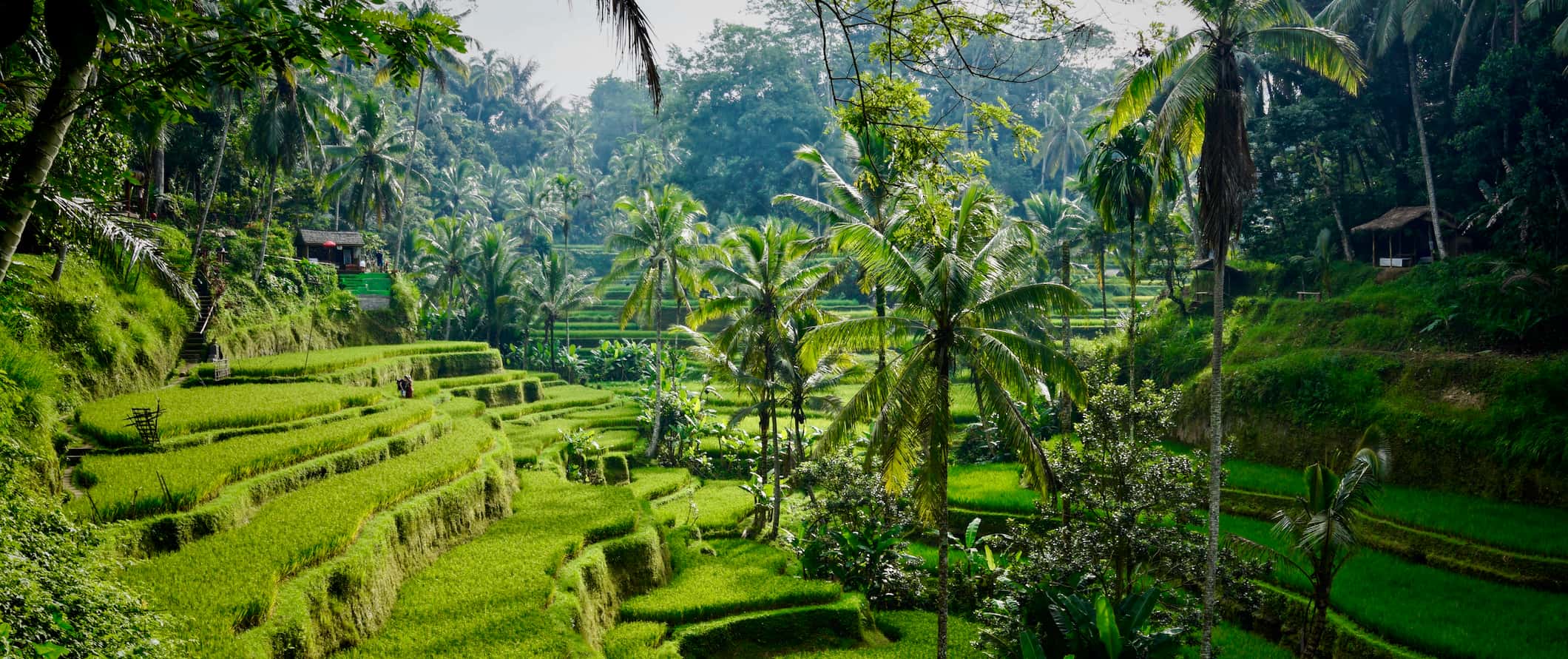
Accommodation – A bed in a dorm hostel dorm can cost as little as 55,000 IDR but most places are closer to 100,000 IDR. For a private double room, prices start around 175,000 IDR. Free Wi-Fi is standard and some hostels offer self-catering facilities and free breakfast.
Most budget hotels begin at 300,000 IDR per night for a double room that usually includes free Wi-Fi and breakfast. For a three-star hotel, prices begin around 400,000 IDR per night.
Airbnb is also widespread throughout the country, with private rooms starting from around 300,000 IDR per night. For entire apartments, expect to pay at least 400,000 IDR per night. Book early, however, or prices can double.
If you’re booking through Booking.com, keep in mind that many of the listings are actually homestays and private residences.
Since hostels and homestays are so cheap, camping is not very common unless you’re on a guided trek.
Food – Food in Indonesia is heavily influenced by a number of cultures, most notably Chinese, Indian and Malay cultures. Lots of dishes have a rice (nasi) or noodle (mie) base and, in some cases, that’s the whole dish, such as with nasi ayam (chicken rice). Be sure to try the Balinese take on satay (where the meat is minced and wrapped on skewers) and babi guling , a delicious suckling pig that is roasted for hours. Another popular choice is oxtail soup. Be mindful that the food here can be a little spicy.
The food here is extremely cheap by Western standards, with street food costing under 10,000 IDR. It’s also delicious in part because much of it is based on fresh spices and herbs. Expect rice and noodle-based dishes such as nasi goreng (stir-fried rice with chicken, egg, and vegetables) and mie goreng (a spicy fried noodle dish with garlic, onion, meat, egg, and vegetables) as well as gado gado (comprising of steamed vegetables, tofu, tempeh, sometimes egg, and peanut sauce), and lots of satay.
For an inexpensive meal at a local restaurant, expect to pay around 25,000 IDR. For a meal at a mid-range restaurant with table service, prices start at 125,000 IDR per person. Western food is much more expensive but is still relatively affordable at under 100,000 IDR for a meal. For the cheapest food and a fun experience, head to the night markets.
Fast food like Mcdonald’s costs around 50,000 IDR for a combo meal. A beer at the bar costs around 30,000 IDR.
If you plan on cooking your own meals, a week’s worth of groceries costs between 450,000-500,000 IDR. However, food in the country is very cheap and I would encourage you to eat out as often as possible as kitchens are hard to come by!
Backpacking Indonesia Suggested Budgets
On a backpacker budget of 425,000 IDR per day, you can stay in a hostel dorm, eat some street food, cook some meals, rent a bicycle to get around, and do mostly free activities like hiking and enjoying the beach. If you plan on drinking, add another 30,000-60,000 IDR to your daily budget.
On a mid-range budget of 1,100,000 IDR per day, you can eat out at more restaurants, stay in a budget hotel or a private hostel room, rent a scooter to get around, drink more, enjoy some massages, and go diving.
On a “luxury” budget of 2,350,000 IDR or more per day, you can stay at a nicer hotel or villa, take taxis or private minivans to get around, eat Western food, drink more, and do any adventure activities you want. This is just the ground floor for luxury, however. The sky is the limit!
You can use the chart below to get some idea of how much you need to budget daily, depending on your travel style. Keep in mind these are daily averages — some days you’ll spend more, some days you’ll spend less (you might spend less every day). We just want to give you a general idea of how to make your budget. Prices are in IDR.
Indonesia Travel Guide: Money-Saving Tips
While Indonesia is super affordable, it’s also easy to splash out here (especially in Bali). To help you save money, here are some specific ways you can keep your spending down while you’re here:
- Eat on the street – You can pick up tasty local fare for under 10,000 IDR. Street-side snacks, soups, and noodles are super affordable and super tasty.
- Bargain hard – Nothing is ever at face value in Indonesia. Bargain with sellers as most of the time the prices they quote aren’t the prices you end up paying if you bargain!
- Drink cheap – Save money on alcohol by heading to the local happy hours (or just buying your drinks at a local store instead of the bar). This is the cheapest way to drink!
- Book online in advance – If you’re planning on hitting up some of Indonesia’s most popular destinations, such as Bali, it’s actually cheaper to book your accommodations (and sometimes tours) online in advance rather than showing up and trying to strike a deal.
- Pay bus attendants directly – When you’re taking an intercity bus, don’t purchase a ticket from a ticket window. It’s cheaper to pay directly on the bus.
- Rent a bike – In many places, such as Bali and Gili, you can easily get around on two wheels. Rent a bike for as little as 40,000 IDR per day. It’s a great way to get around on the cheap.
- Take taxis – Taxis are essential for getting around in some parts of Indonesia, and they can be cheap. Just make sure the driver puts the meter on before you depart (or agree on a price before you get in).
- Bring a filtered water bottle – Indonesia has a ton of plastic waste. It has so much that a lot of it just gets burned. You’ll see — and smell — it during your visit. Bring a reusable water bottle with a filter to save both money and the environment. I personally like Lifestraw .
Where to Stay in Indonesia
Looking for a place to stay during your trip? Here are some of my favorite places to stay in Indonesia:
- PADI Backpackers House (Ubud)
- Kememai Hostel (Ubud)
- Warung Coco Hostel (Kuta)
- Tribal Bali (Canggu)
- Gili Beach Bum (Gili Trawangan)
- My Mate’s Place (Gili Trawangan)
- Wonderloft Hostel (Jakarta)
How to Get Around Indonesia
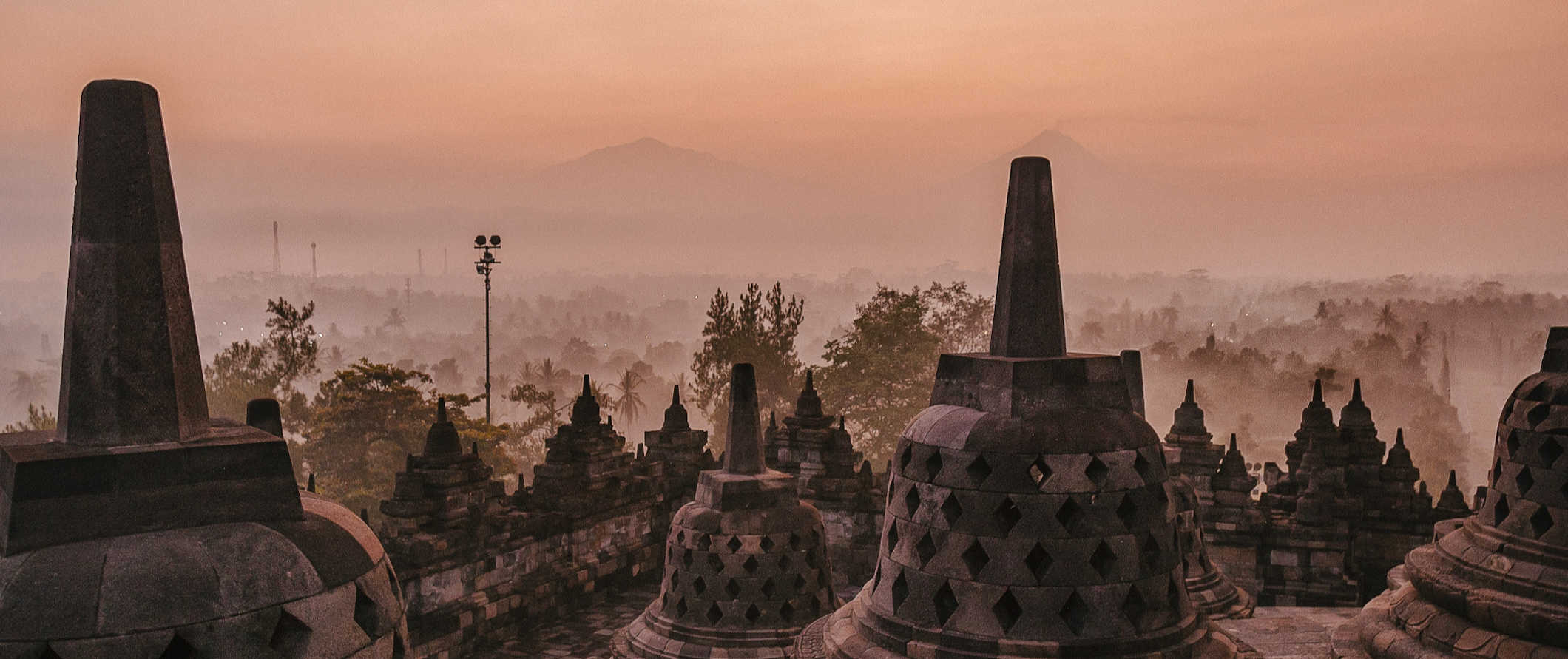
Public transportation – Public buses aren’t really used for city transport except on Java. There’s an extensive network in Jakarta, known as the Transjakarta Busway. Fares cost 3,500-9,000 IDR for any destination in the network. You have to pay with a card that costs 40,000 IDR (it comes with a 20,000 IDR credit) from station ticketing offices.
Otherwise, most people get around by becak , a three-wheeled pedal or motor-powered cart. You should negotiate your fare before you get in; ask your hotel/hostel staff for up-to-date price estimates.
Taxis are also affordable, and they’re metered in major cities. Bluebird Taxis is available in most places, and they’re the most dependable company for metered taxis and English-speaking drivers. There’s a smartphone app that makes it really easy to order taxis. The starting rate is around 7,500 IDR and then 5,300 IDR per kilometer.
Grab (an Uber offspring) is a household name in Southeast Asia. It is convenient but sometimes costs even more than a taxi. Gojek is a similar option. Be forewarned: if you order a Grab or Gojek, you might wind up on the back of a motorbike.
Ferry – For traveling between islands, ferries start around 15,000 IDR for a ticket from East Java to West Bali, and the rates go up from there for other routes. Bali to the Gili Islands is 175,000 IDR (one way) on a speedboat.
While it’s not necessary to book in advance it’s a good idea to do so during peak season or on more popular routes. You can buy tickets on the ferry company’s website or via a ticket agent like 12go.asia.
Bus – Buses are the main way for locals and tourists to get around Indonesia. It’s a good idea to book your long-distance tickets in advance, especially if you want an air-conditioned ride. You can buy a ticket from a travel agent, or visit the bus terminal. Your accommodation may also be able to arrange your transportation.
A 12-hour journey on a bus costs around 170,000 IDR. A short journey, like the one from Kuta Beach to Ubud, is less than 80,000 IDR and takes one hour.
If your ride is a shorter one, you might end up on a bemos (mini-bus). In this case, negotiate your fare beforehand.
Train – In Indonesia, the cities of Java are well linked by train, including Jakarta, Bandung, Surabaya, Probolinggo (for Mount Bromo), and Banyuwangi (the ferry terminal for Bali). Economy class from Jakarta to Surabaya takes 10.5 hours and costs about 190,000 IDR, while an 8-hour executive class trip can cost from 620,000 IDR. Surabaya to Probolinggo (for Mount Bromo) takes 2-3 hours and costs 27,000 IDR for economy or 240,000 IDR for executive class. Surabaya to Banyuwangi (for Bali) takes 6-7 hours and costs as little as 56,000 IDR for economy or 235,000 IDR for executive class. You can reserve your tickets at tiket.com.
Flying – Garuda Indonesia is the country’s main airline offering international service as well as domestic flights. Lion Air and AirAsia also offer plenty of domestic routes, although Lion Air’s safety record is spotty and I wouldn’t advise traveling with them.
Flights between Jakarta and Bali start around 900,000 IDR each way, while Jakarta to Lombok starts around 1,200,000 IDR. Lombok to Bali is around 1,100,000 IDR. However, this isn’t the cheapest way to travel and is only recommended if you have limited time.
When to Go to Indonesia
Indonesia has just two seasons: the wet season and the dry season. Dry season lasts from May to September while the rainy season occurs from October to April. The average daily temperature year-round is 28°C (80°F).
Overall, the best time of year to visit is between May and September when it’s dry and sunny. It’s still pleasant to visit during the rainy season, however, as rainfall usually comes as fast and intense downpours that only last a few hours.
The Nusa Tenggara region is more affected by the wet season which may sometimes result in flooding. The wet season may also be a problem if you’re looking to get off the beaten track in Indonesia, as muddy roads can sometimes keep you from getting around.
In Bali and Kalimantan, the extremes between seasons aren’t drastic. The dry season is the best time to climb the volcanoes, and the best time to dive is from April to September. (If you are expecting to do some climbing, remember to pack some warm layers. It gets cold at the top!)
How to Stay Safe in Indonesia
Indonesia is a safe place to backpack and travel. Violent crime is rare. Petty theft (including bag snatching) is the most common type of crime in Indonesia. It’s most common on public transit as it’s easy for thieves to grab your wallet or purse when you’re distracted by all the chaos around you. Staying alert and securing your valuables is the best way to prevent petty theft.
Credit card fraud is also common in Indonesia. To avoid this, it’s always best to pay with cash when possible. To avoid getting your information stolen at an ATM, enter a reputable bank to withdraw money from there.
There are a lot of small scams around the island and you can read about how to avoid these common travel scams here .
Solo female travelers should generally feel safe here but the standard precautions apply (never leave your drink unattended at the bar, never walk home alone intoxicated, etc.). The country is big and, while generally safe, there are certain spots you’ll want to stay more vigilant in. There are countless solo female travel blogs out there that can give you specific information on how to stay safe.
Earthquakes are common in Indonesia, owing to its location on the Ring of Fire (it experiences more earthquakes than any other country). Make sure you know where your exits are during an emergency. Also, download an offline map and languages translation pack in case you need it during an emergency situation where you don’t have mobile data/Wi-Fi.
If you experience an emergency, dial 112 for assistance.
When in doubt, always trust your instincts. If a taxi driver seems shady, get out. If your hotel or accommodation is seedier than you thought, go somewhere else. Make copies of your personal documents, including your passport and ID, in case of an emergency.
The most important piece of advice I can offer is to purchase good travel insurance. Travel insurance protects you against illness, injury, theft, and cancellations. It’s comprehensive protection in case anything goes wrong. I never go on a trip without it as I’ve had to use it many times in the past. You can use the widget below to find the policy right for you:
Indonesia Travel Guide: The Best Booking Resources
These are my favorite companies to use when I travel. They consistently have the best deals, offer world-class customer service and great value, and overall, are better than their competitors. They are the companies I use the most and are always the starting point in my search for travel deals.
- Skyscanner – Skyscanner is my favorite flight search engine. They search small websites and budget airlines that larger search sites tend to miss. They are hands down the number one place to start.
- Hostelworld – This is the best hostel accommodation site out there with the largest inventory, best search interface, and widest availability.
- Agoda – Other than Hostelworld, Agoda is the best hotel accommodation site for Asia.
- Booking.com – The best all around booking site that constantly provides the cheapest and lowest rates. They have the widest selection of budget accommodation. In all my tests, they’ve always had the cheapest rates out of all the booking websites.
- Get Your Guide – Get Your Guide is a huge online marketplace for tours and excursions. They have tons of tour options available in cities all around the world, including everything from cooking classes, walking tours, street art lessons, and more!
- SafetyWing – Safety Wing offers convenient and affordable plans tailored to digital nomads and long-term travelers. They have cheap monthly plans, great customer service, and an easy-to-use claims process that makes it perfect for those on the road.
- LifeStraw – My go-to company for reusable water bottles with built-in filters so you can ensure your drinking water is always clean and safe.
- Unbound Merino – They make lightweight, durable, easy-to-clean travel clothing.
Indonesia Travel Guide: Related Articles
Want more info? Check out all the articles I’ve written on Indonesia travel and continue planning your trip:
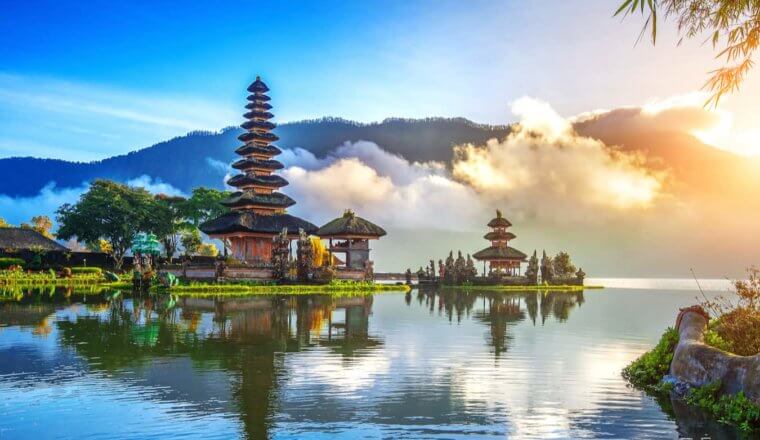
The 6 Best Hostels in Bali

Is Southeast Asia Safe for Travelers?

A Visitor’s Guide to the Jatiluwih Rice Terraces
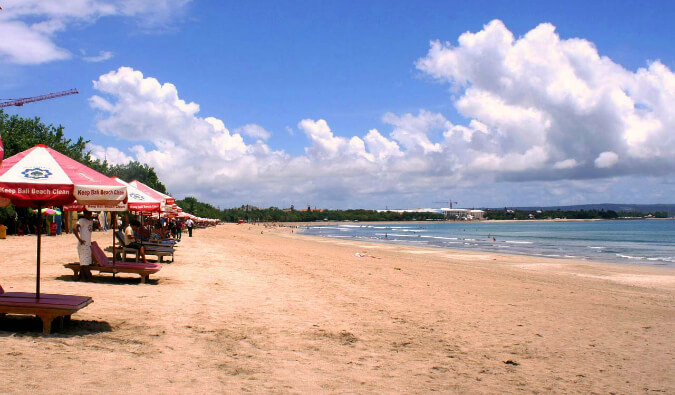
Kuta Beach: The Worst Place in Bali

How to Visit Borobudur in Indonesia
Get your free travel starter kit.
Enter your email and get planning cheatsheets including a step by step checklist, packing list, tips cheat sheet, and more so you can plan like a pro!

- Where To Stay
- Transportation
- Booking Resources
- Related Blogs
The Ideal Indonesia Itinerary for 2 Weeks to 2 Months
04/17/2018 by Kristin Addis 8 Comments
Where should you spend your time in Indonesia when you visit? With so many islands, how do you narrow it down? The first time I visited was in 2008, and since then, I’ve returned 10 times, most recently in 2024.
Indonesia quickly became one of my favorite countries (after visiting 65 of them). Here are my best itinerary suggestions for 2 weeks to 2 months in Indonesia:
2 Weeks in Indonesia:
If you only have two or fewer weeks, I strongly suggest picking one or two regions and doing them justice, like only Lombok and Bali , or only Flores and Raja Ampat if you love diving. If you love animals, maybe you’d prefer Sumatra.
Days 1-4: Sumatra
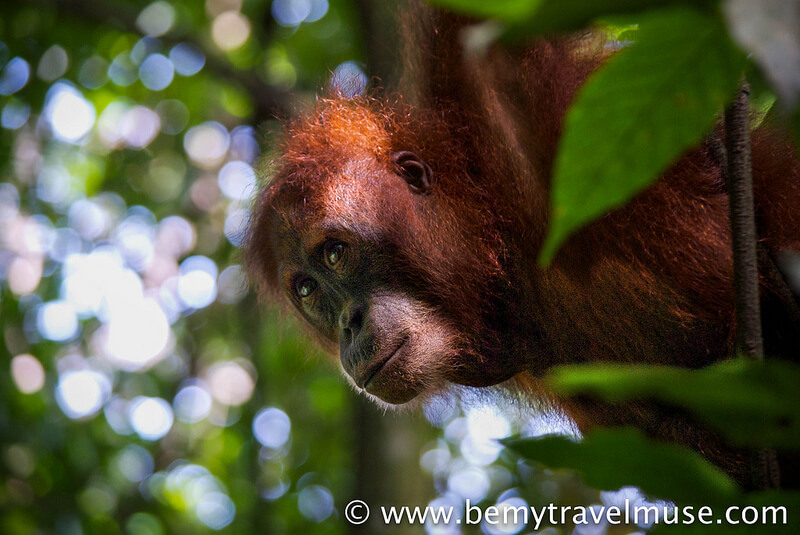
Fly into Medan and take a bus bound for Bukit Lawang. This will take most of the afternoon. Avoid Medan, really, there’s nothing to see there.
Book a day trek into the jungle to see the Orangutans. Ideally book through a local guesthouse with guides who grew up in the jungle and know how to track the Orangutans without offering them food. Spend a day in Bukit Lawang before or after and inner tube down the river, enjoying the company of the incredibly friendly locals.
Bus back to Medan and fly out to Bali.
Days 5-10: Bali & Nusa Islands
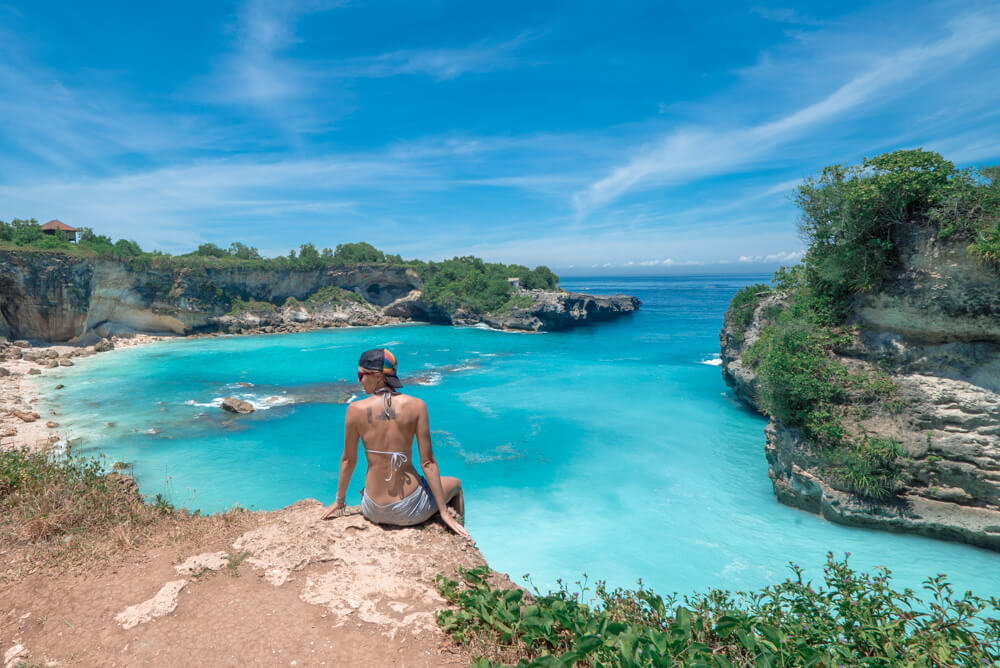
While most visitors to Indonesia flock to Bali , Ubud and Canggu are traveler favorites, and Capella Ubud is a personal favorite of mine, and since Bali is so easy to fly into , consider spending a couple of days in one or the other before moving onto the Nusa Islands.
Take a ferry from Sanur to Nusa Lembongan or Penida and spend 3 days exploring these lovely islands – visit gorgeous beaches, snorkel with Manta rays, learn to surf, or chill at one of the many beachfront pools and cafes. From Lembongan, it’s easy to ride a motorbike over the bridge to Ceningan for a day trip, or consider staying on Ceningan for a more laid-back vibe. This is popular with surfers as well and boasts much smaller crowds than Bali. Click here for the perfect Nusa Islands itinerary.
Days 11-14: Lombok
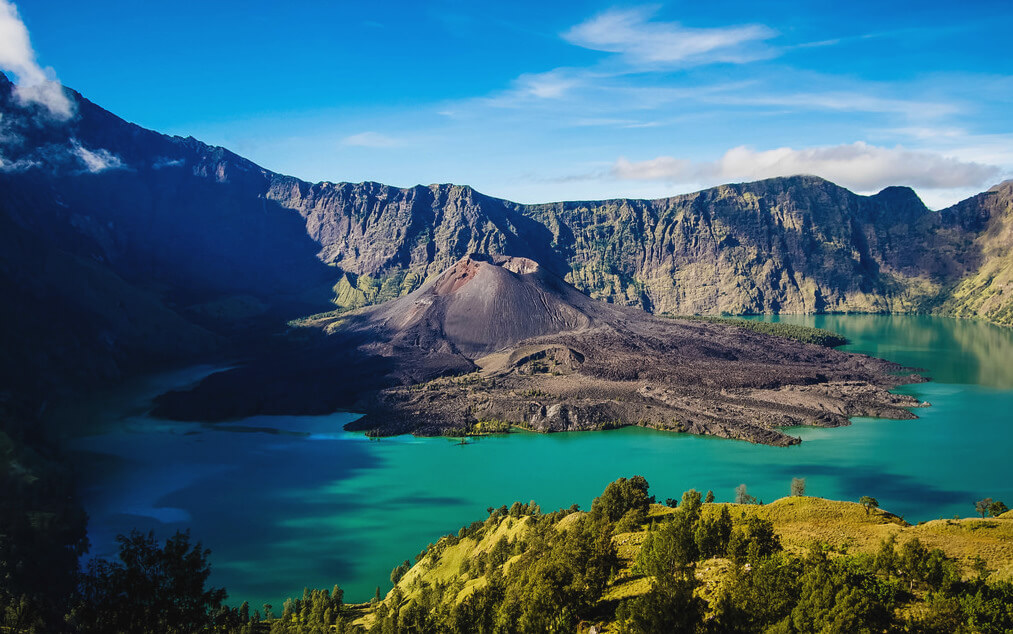
Just a 2-hour fast boat over from the Nusa islands, or a short flight over from Bali, Lombok is yet again wildly different from the other islands you would have experienced with this itinerary, and well worth experiencing. Lombok is much quieter, more rural, and rugged.
You’ll have to make some choices here between the Gili islands just off the coast, trekking the Rinjani volcano, which usually takes 3 days and 2 nights, or heading down south to Kuta for some gorgeous beaches and surfing. There are also incredible waterfalls all over Lombok to check out. The adventure there can be endless. This guide can help you pick and choose which activities on the island call to you the most.
Compare the Nusa and Gili islands here.
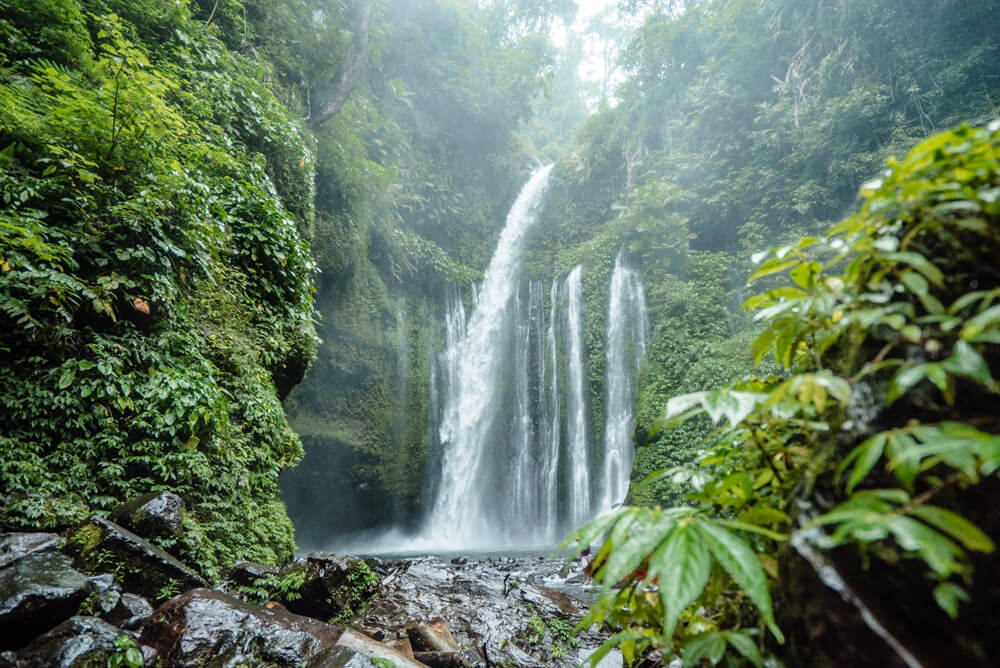
That’s one of many possible adventures for 2 weeks in Indonesia, though if you keep reading, you can pick and choose more options below.
1 month in Indonesia
You’ve got a full month in Indonesia – fantastic! You can take a bit more time in each place and rush around a little bit less. I also highly suggest adding diving into your itinerary, as Indonesia has some of the best in the world, truly!
Repeat the 2-week itinerary, but give yourself more time in each place and expand it to 21 days, spending extra time in Sumatra and adding in Pulau Weh for a quiet, secluded island or Lake Tobah to stay on an island within a lake within an island (say that ten times fast), or spending more time on Lombok so that you can enjoy the beaches, do the Rinjani trek, see the waterfalls, and spend some time on the Gili islands .
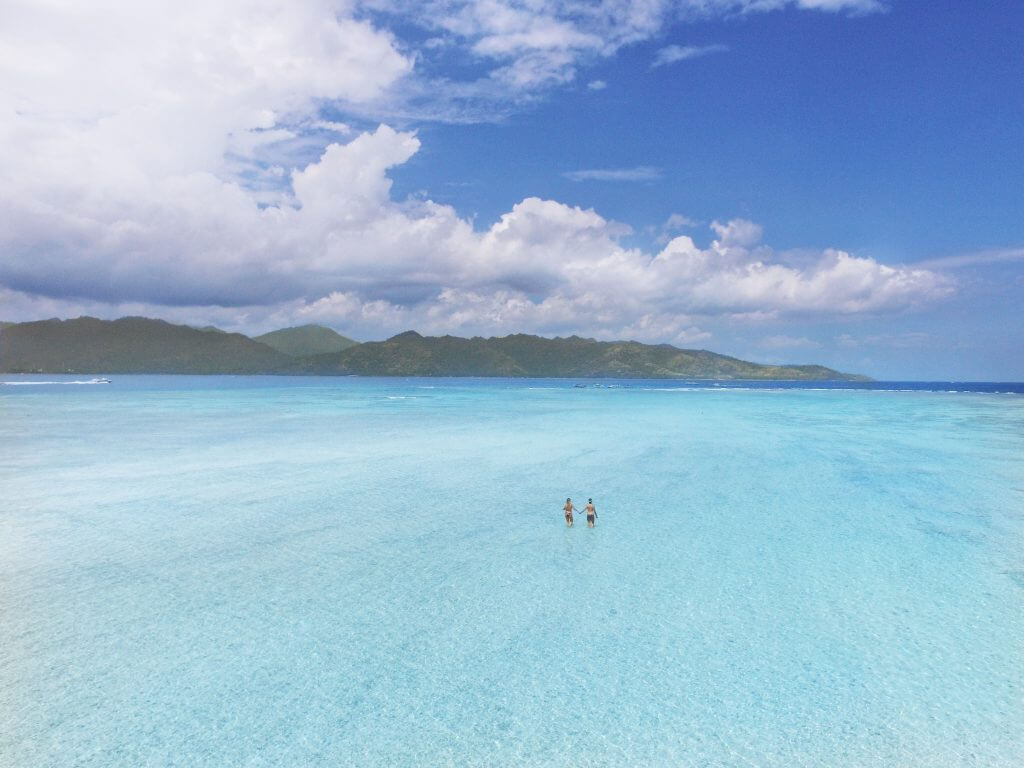
From there, this itinerary can go one of two ways – the diving route or the volcano route. If you’re into diving:
Days 22-30: East Java
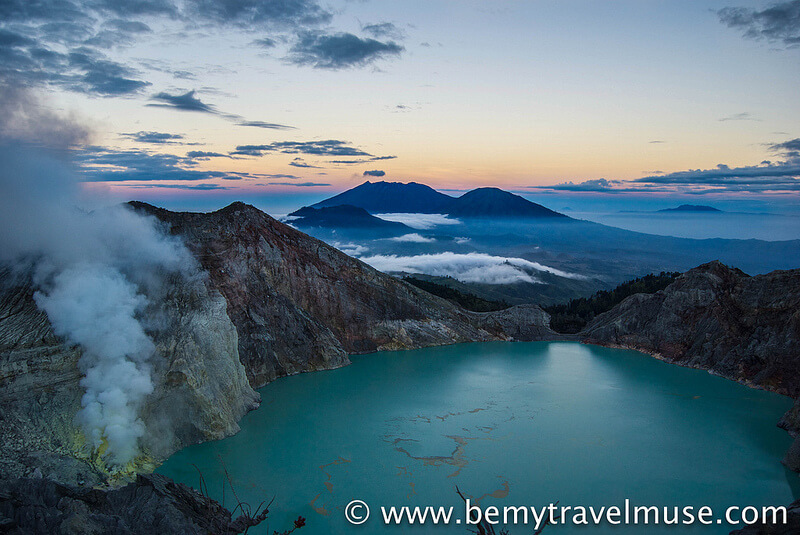
If you go this route, reverse Lombok and Bali and fly into Lombok from Medan, Sumatra. Spend time enjoying Lombok, then fly or boat to Bali and after a few days there, head to the Ubung bus terminal and buy an onward ticket to Bondowoso, ferry included. Traveling to the base of Kawah Ijen will take most of the day.
Once on Java, we’ll head to Kawah Ijen, the experience I referenced in the opening of this post, which still ranks at the top of my list over five years of travels and adventures later. Kawah Ijen is famous for its blue flames and the amazingly strong sulfur miners who carry loads up and down the volcano all day and night. Hike in with the stars to see the flames and watch the sunrise from the crater rim. More on how to do it independently of a tour here.
Next, take a bus to Surabaya via Probolinggo and onwards to Cemoro Lawang to trek or drive to the Bromo volcano for sunrise – one of the most famous volcanos in Indonesia. More on how to do that here.
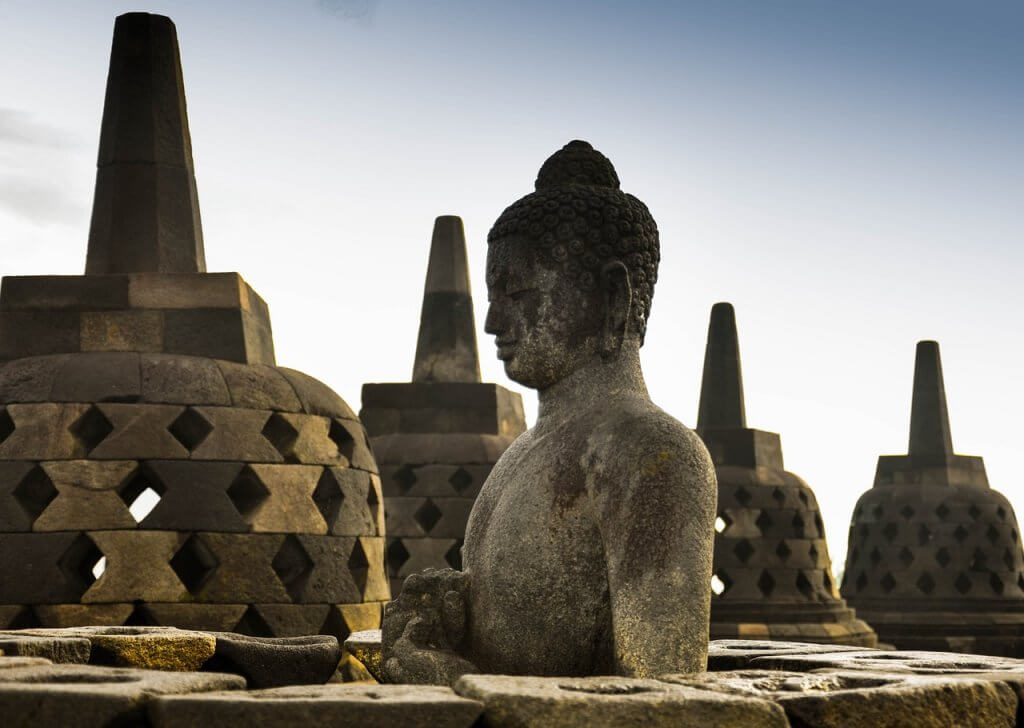
From there, bus back down to Surabaya and bus or train to Yogyakarta to see the Borobudur temple. This temple was built in the 9th century and represents a mix of Buddhism and ancestor worship. It’s a unique temple in Java that you won’t see a match for in the rest of Southeast Asia.
From there, fly out of Yogyakarta home or to your next destination.
Days 22-30: Komodo
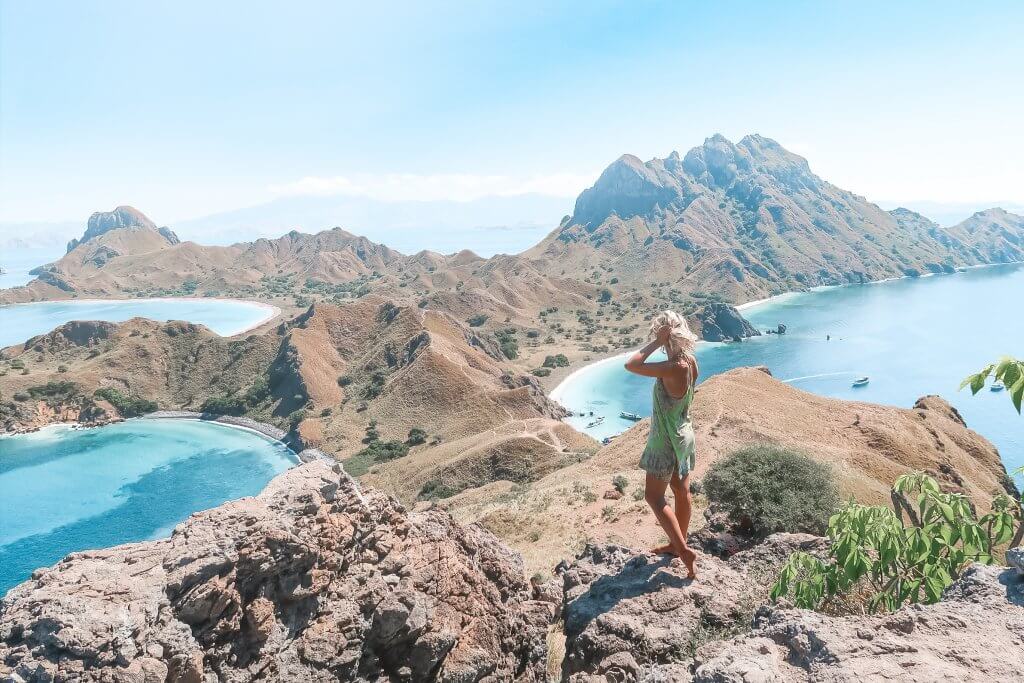
It’s hard to beat Indonesia when it comes to diving and though there are many places with fantastic dive spots, Komodo and Raja Ampat reign supreme.
Komodo is a bit cheaper and easier to get to, flying into Flores and hopping onto a dive boat from there. The corals are fantastic, Manta rays are regularly sighted, and the scenery is gorgeous as well. Plus, you get to see the famous Komodo dragon on Rinca, the island pictured above.
Komodo’s main season is April through December, though you can dive there year round. If you’re in Indonesia during the rainy season, consider spending a bit less time in Bali, or cutting out Sumatra, and spending 11 days to two weeks in Raja Ampat, flying into Sorong, West Papua. While it’s possible to get on a dive boat in Komodo for just three or six days, most dive trips in Raja Ampat are longer, and it does tend to be more expensive. That said, the abundance and diversity of fish is mind-blowing, and the corals are varied, plentiful, and vibrant. Plus, the islands are incredible too. It’s easily one of the best trips I’ve ever been on. Read more on diving in Raja Ampat here.
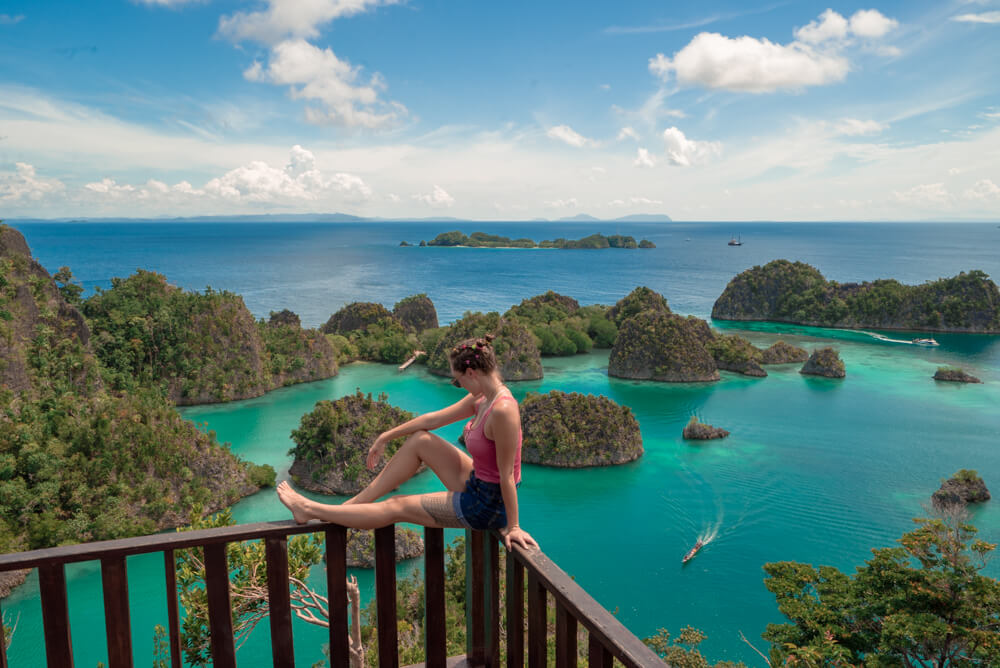
Note that both Komodo and Raja Ampat have notoriously strong currents and are better suited to divers with some experience. You should have at least your advanced open water before getting on a dive boat in either place. Nitrox is advised.
2 Months in Indonesia
With two months in Indonesia you can take a bit more time in each place, planning ahead much less and opting to spend extra days or even a week here and there in the places that call to you the most.
For this itinerary I suggest allowing for more fluidity, with a few key things planned out in advance such as flights and diving.
Week one: Sumatra
Spend more time in the jungles, on Lake Tobah, or on Pulau Weh. To truly head off the beaten path, head south on this giant island and explore the jungles.
Weeks two through four: Bali, the Nusa Islands, and Lombok
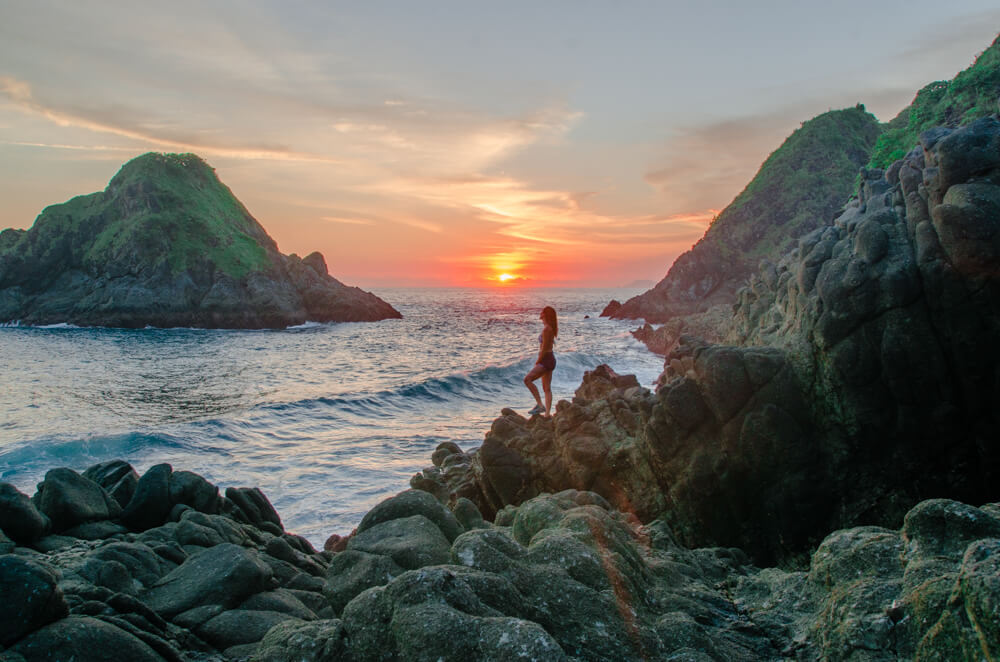
Given how much there is to do on and around Lombok and Bali, slow down, take a bit more time to explore, and take yoga classes, go for hikes on the volcanoes, learn to surf, attend a retreat, or just park in a bamboo bungalow for a week and hang at the beach.
It’s easy to slow down and spend a good chunk of time in this area. My particular favorites are the mainland of Lombok, particularly Kuta’s beaches , and the Nusa islands .
Week five: East Java
Explore the volcanoes and temples of East Java, particularly Kawah Ijen as detailed above.
Weeks six through eight: Diving in Raja Ampat or Komodo
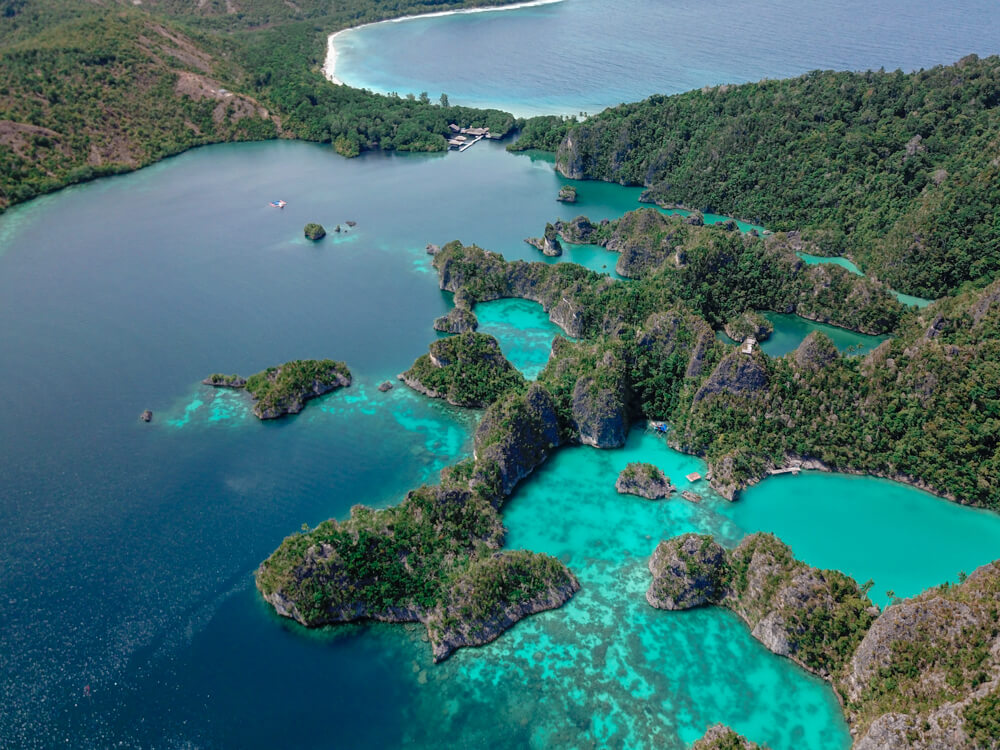
If you’re a diver, then you absolutely must experience Komodo, Raja Ampat, or both. These are easily the best spots for diving in Indonesia and each has the small stuff, the big stuff, and incredible corals. Scroll up to the one-month itinerary for more information on how to get to each and who to book dives with.
With that, you will have had an incredible trip in Indonesia, both in the popular places and in plenty of off the beaten path spots as well. It’s the perfect mix in a country that delivers high value for your money and has great food and friendly people to boot.
Keep in mind this itinerary still only covers a small part of a huge country. There’s also Kalimantan, Sulawesi, Sumba, West Java, West Timor, and so many more! After the four months I’ve spent traveling around Indonesia I still feel I’ve barely scratched the surface, and my list just keeps getting longer!
What are some of your favorite places in Indonesia?
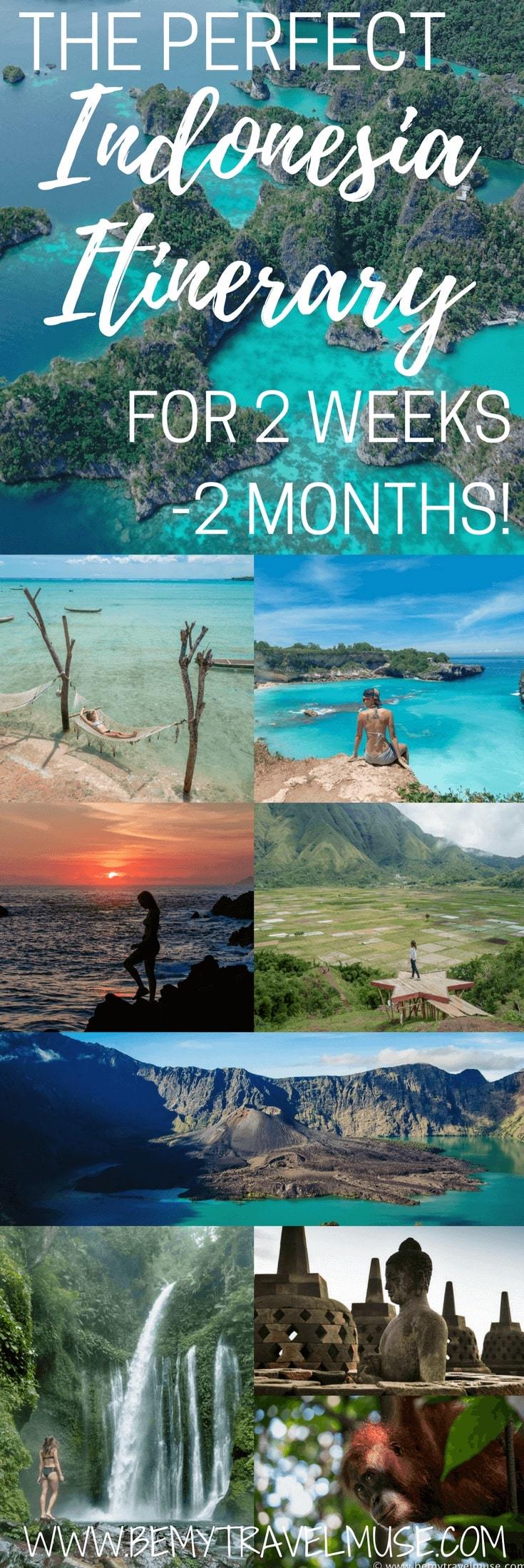
READ NEXT: A guide to Indonesia: Currency exchange rates, more posts, and budgeting guides
About kristin addis.
Kristin Addis is the founder and CEO of Be My Travel Muse, a resource for female travelers all around the world since 2012. She's traveled solo to over 65 countries and has brought over 150 women on her all-female adventure tours from Botswana to the Alaskan tundra.
Leave a Reply Cancel reply
Your email address will not be published. Required fields are marked *
Save my name, email, and website in this browser for the next time I comment.
subscribe to our newsletter
This site uses Akismet to reduce spam. Learn how your comment data is processed .
04/17/2018 at 7:04 am
What a great summary of what you have learned and discovered over your 5+ years of traveling at this locale. If anyone talks with me about traveling to Indonesia, I will send them over to this post. Also, this was very well written, you clearly put some effort on this and it shows!
Dominique | dominiquetravels.com says
04/19/2018 at 12:10 pm
Great itineraries! I’ve never been to Indonesia, and I doubt I’ll go there for longer than 3 weeks at a time so the first itinerary sounds perfect to me! Diving with manta rays would be a dream 🙂
Sara Vozel says
05/09/2018 at 11:11 pm
Great guide! Will definitely be using this when we are in Indonesia!!
Mackenzie says
12/12/2018 at 8:14 am
This guide has helped me shape my itinerary to Indonesia in April and I am so excited! I am doing 6 days at a retreat in Canggu, and then have 6 days to spend in Ubud, Gili Air, Nusa islands, or some combination. Would you recommend splitting the time or just choosing one?
Kristin says
12/12/2018 at 9:02 am
I might pick just one set of islands as well as Ubud. The Nusa islands get the slight edge over the Gilis for me 🙂
03/01/2019 at 8:45 am
If you start from Jakarta, then take a train or bus to Bandung to see kawah putih, then to Yogyakarta to see prambanan and borobudur temple, have some fun in cave pindul, after that go to jepara by bus to go to Karimunjawa Island to have snorkling, go to east java trakking to kawah ijen, baluran, menjangan, go to nusa penida bali, next go to lombok island to see gili and the pink beach, then sailing komodo tour in labuan bajo, after that have an overland tour in flores, go to sumba island and Timor Leste.
Sophie says
06/18/2019 at 6:40 pm
I’ve been researching Indonesia and your website has been very useful—thank you! I had a quick question—did you take anti-malaria pills when you went east of Bali (Nusa Islands, Lombok, Komodo Island, etc.)?
I see that the CDC lists Lombok, for example, as low risk. I was just curious what you did, given your robust experience/time in the area, and as a female traveler:)
06/19/2019 at 9:14 am
I have never taken anti-Malarials in Southeast Asia. I do in Mozambique and other countries where the strains are particularly lethal. However that’s just my preference and I don’t want to give advice on whether one should or should not. You can still get Malaria in Southeast Asia, and also Dengue, I just don’t want to be taking those pills for that long.
- Skip to main content
- Skip to "About this site"
Language selection
Search travel.gc.ca.
Help us to improve our website. Take our survey !
COVID-19: travel health notice for all travellers
Indonesia travel advice
Latest updates: The Health section was updated - travel health information (Public Health Agency of Canada)
Last updated: August 26, 2024 09:22 ET
On this page
Safety and security, entry and exit requirements, laws and culture, natural disasters and climate, indonesia - exercise a high degree of caution.
Exercise a high degree of caution in Indonesia due to political and social tensions and the threat of terrorism throughout the country.

Indonesian Papua - Avoid non-essential travel
Avoid non-essential travel to all the provinces of Indonesia Papua due to the regular occurrence of violent incidents, threats made against foreigners by militant groups and risk of kidnapping.
Back to top
Political demonstrations across Indonesia
Since August 22, 2024, there are ongoing demonstrations and violent clashes between protesters and security forces in Jakarta and other cities across Indonesia.
More information on demonstrations
- Indonesian Papua
Political tension and regular violent incidents continue to occur in Indonesian Papua.
In February 2023, militant groups threatened to attack and take hostages, specifically referencing foreigners. You may also face increased threats of violence or kidnapping if you travel to Indonesian Papua.
Labour disputes at the Freeport-McMoRan mine near Timika have led to demonstrations, public transportation disruptions and violence.
Fatal attacks have occurred on roads near the mine. Foreigners have been targeted by local militants.
There is a heightened police and military presence in this area.
There is a threat of terrorism in Indonesia.
While effective counterterrorism measures by Indonesian authorities are in place, terrorist cells are active and have the capacity to carry out attacks throughout the country.
Attacks have targeted:
- military and government facilities
- tourist attractions and popular public places
- nightclubs and entertainment venues
- public transportation
Further attacks are likely, and terrorists may also target:
- crowded places
- places with high pedestrian traffic and where foreigners may gather
- commercial establishments
- local government offices
- public transit stations
- busy streets
- long lineups at tourist attractions
- places of worship
Stay at hotels that have robust security measures, including metal detectors, guards and security cameras. Keep in mind, however, that even the most secure locations cannot be considered completely free of risk.
Be particularly vigilant during religious holidays and other public celebrations, as terrorists have used such occasions to mount attacks.
- Always be aware of your surroundings when in public places and identify ways to leave the area in case of emergency
- Monitor local media
- Follow the instructions of the local authorities
Violent crime
Violent crime, such as armed robberies, occurs regularly. Be particularly cautious on the road from Banda Aceh to Medan, where armed robberies have occurred.
Foreigners travelling alone and those travelling at night are at particular risk.
Standards of police services differ considerably from those in Canada.
- Avoid showing signs of affluence
- Ensure that your personal belongings, including your passport and other travel documents, are secure at all times
- If you’re travelling by car, keep valuable belongings out of sight, windows closed and doors locked
Petty crime
Petty crime, such as pickpocketing and purse snatching, occurs throughout Indonesia, specifically in tourist areas, such as Bali and Lombok. Criminals sometimes force people to withdraw cash from ATMs.
Merchants don’t always honour pricing agreements. Use good judgment in engaging services of tourist guides, especially in places that tourists rarely visit.
There is a threat of kidnapping, particularly in the provinces of Indonesian Papua and Aceh province. Foreign travellers have been kidnapped and killed. Terrorist groups have also kidnapped tourists in East and West Kalimantan.
- Be extra vigilant if travelling in these areas
- Avoid travelling alone and after dusk
- Use varied routes and schedules when moving from one place to another
Women's safety
Women travelling alone may face some forms of harassment and verbal abuse.
Advice for women travellers
Demonstrations
Demonstrations take place from time to time. Even peaceful demonstrations can turn violent at any time. They can also lead to disruptions to traffic and public transportation. Security forces may use tear gas and water cannons to disperse crowds and prevent vandalism.
- Avoid areas where demonstrations and large gatherings are taking place
- Follow the instructions of local authorities
- Monitor local media for information on ongoing demonstrations
Mass gatherings (large-scale events)
Political and social tension
There are long-standing sectarian and social tensions throughout Indonesia, particularly in the provinces of:
- Central Sulawesi, in Palu, Poso and Tentena
- Maluku, especially in Ambon
Sectarian violence targeting civilians has occurred. The potential for violence remains, despite ongoing security operations efforts from local authorities. Be aware of your surroundings.
There is a very high rate of credit and debit card fraud in Indonesia, including online fraud.
When using debit or credit cards:
- pay careful attention if other people are handling your cards
- use ATMs located in public areas or inside a bank or business
- avoid using card readers with an irregular or unusual feature
- cover the keypad with one hand when entering your PIN
- check for any unauthorized transactions on your account statements
Romance scams
If you’re travelling to Indonesia to meet someone you’ve only met online, keep it mind that you may be the victim of a scam. Be wary of unsolicited emails or requests for a wire transfer.
Don’t send money to someone you have never met in person.
Overseas fraud
Spiked food and drinks
Even if the wrapping or container appears intact, snacks, beverages, gum and cigarettes may contain drugs that could put you at risk of sexual assault and robbery.
- Be wary of accepting these items from new acquaintances
- Never leave food or drinks unattended or in the care of strangers
People have died after drinking methanol-adulterated alcohol. Counterfeits of well-known alcohol brands often contain dangerous amounts of methanol. Poisoning incidents have happened at hotels, bars, and shops in tourist areas like Bali, Lombok, the Gili Islands and Sumatra.
- Be cautious if you choose to drink alcohol
- Be wary of lesser-known or illegal brands
- Avoid buying alcohol from individuals
- Seek medical assistance if you begin to feel sick
Alcohol, drugs and travel
Road safety
Road conditions and road safety vary greatly throughout the country. Driving conditions may be hazardous during the rainy season.
Road travel in Indonesia can be very challenging due to:
- reckless driving
- perilous road conditions
- inadequate lighting
- poor signage
- high traffic congestion
If you plan to rent a car, consider hiring a driver.
Avoid driving after dark outside of major cities or major roads as some drivers do not use lights.
You may face mob anger if you are involved in an accident that causes serious injury. In such cases, remain in your vehicle and wait for a police officer to arrive.
Motorcycles and scooters
Motorcycle and scooter accidents are the main cause of death and serious injury among foreigners visiting many parts of Indonesia, including Bali.
Rental motorcycles are also often targeted and stolen. In such cases, you may have to pay the replacement cost for a new motorcycle.
Public transport
Public transport can be crowded and safety standards are poor. Many remote parts of Indonesia have poor transportation networks.
Crashes involving overcrowded buses are common. Large buses are generally available only on Java. Minibuses are available elsewhere.
If you choose to travel by bus,
- keep in mind that minibus drivers may try to overcharge foreigners
- keep your belongings secure due to pickpocketing
The condition of taxis varies. Foreign travellers using taxis have been victims of armed robbery, either by the driver or other passengers.
- Pre-arrange transportation with a safe and reliable taxi company
- Only use a taxi company whose vehicles are equipped with a meter
- Never enter a cab if it already has one or more passengers
- Don’t hail taxis off the street and avoid using unmarked taxi services
Reliable taxis are available from Bluebird, Thunderbird and Express. Be careful of “lookalike” taxis from competitors.
Ferry accidents are common and are often caused by poor safety practices or extreme weather conditions.
If you choose to travel by ferry:
- make sure the vessel you are boarding is carrying appropriate safety equipment and that life jackets are provided for all passengers and accessible at all times
- don’t board vessels that appear overloaded or unseaworthy
- verify the safety standards of ferries with your tour operator
We do not make assessments on the compliance of foreign domestic airlines with international safety standards.
Information about foreign domestic airlines
Every country or territory decides who can enter or exit through its borders. The Government of Canada cannot intervene on your behalf if you do not meet your destination’s entry or exit requirements.
We have obtained the information on this page from the Indonesian authorities. It can, however, change at any time.
Verify this information with the Foreign Representatives in Canada .
Entry requirements vary depending on the type of passport you use for travel.
Before you travel, check with your transportation company about passport requirements. Its rules on passport validity may be more stringent than the country’s entry rules.
Regular Canadian passport
Your passport must be valid for at least 6 months beyond the date of entry into Indonesia and must contain at least one blank page for the placement of the Indonesian visa or entry stamp.
Passport for official travel
Different entry rules may apply.
Official travel
Passport with “X” gender identifier
While the Government of Canada issues passports with an “X” gender identifier, it cannot guarantee your entry or transit through other countries. You might face entry restrictions in countries that do not recognize the “X” gender identifier. Before you leave, check with the closest foreign representative for your destination.
Other travel documents
Different entry rules may apply when travelling with a temporary passport or an emergency travel document. Before you leave, check with the closest foreign representative for your destination.
Useful links
- Foreign Representatives in Canada
- Canadian passports
Tourist visa: required Business visa: required Social-cultural visit visa: required
Indonesia strictly enforces its immigration and visa requirements. Foreign travellers have been detained in immigration detention centres for visa violations or overstays. Those in violation may be subject to substantial fines and deportation.
A round-trip or onward airline ticket is required to obtain all types of visas.
Tourist visa
If you are travelling for tourism with a regular Canadian passport, you may obtain a visa in advance or on arrival at select points of entry.
Business and social-cultural visas
If you are travelling to Indonesia for business or social-cultural purposes (e.g. volunteer work), you must obtain a visa prior to your arrival. You must provide a letter from both the sponsoring organization in Indonesia and the sending organization in Canada to obtain your visa.
A business or social-cultural single-entry visa is extendable from within Indonesia.
Aid workers
Aid workers must have a sponsor in Indonesia to obtain a visa. Those going to Aceh also require prior authorization from the Directorate General of Immigration in Aceh or Jakarta.
Journalists
Journalists visiting Indonesia for reporting and filming purposes must obtain authorization from the Directorate General of Immigration in Jakarta before applying for a visa.
Directorate General of Immigration – Ministry of Law and Human Rights of Indonesia
Restricted areas
You must obtain a permit to travel to Indonesian Papua.
Entry regulations and permission to remain in Indonesian Papua may change at any time.
Other entry requirements
Starting February 14, 2024, tourists entering Bali will be subject to a new tax, the Love Bali Tourist Levy. This fee will be in addition to the visa fees paid to enter Indonesia.
If your are travelling to Bali, you must pay directly though the Provincial Government of Bali website.
Levy for Foreign Tourists – Provincial Government of Bali
Customs officials may ask you to show them a return or onward ticket and proof of sufficient funds to cover your stay.
- Children and travel
Learn more about travelling with children .
Yellow fever
Learn about potential entry requirements related to yellow fever (vaccines section).
Relevant Travel Health Notices
- Global Measles Notice - 13 March, 2024
- Zika virus: Advice for travellers - 31 August, 2023
- COVID-19 and International Travel - 13 March, 2024
- Polio: Advice for travellers - 20 August, 2024
- Dengue: Advice for travellers - 26 August, 2024
This section contains information on possible health risks and restrictions regularly found or ongoing in the destination. Follow this advice to lower your risk of becoming ill while travelling. Not all risks are listed below.
Consult a health care professional or visit a travel health clinic preferably 6 weeks before you travel to get personalized health advice and recommendations.
Routine vaccines
Be sure that your routine vaccinations , as per your province or territory , are up-to-date before travelling, regardless of your destination.
Some of these vaccinations include measles-mumps-rubella (MMR), diphtheria, tetanus, pertussis, polio, varicella (chickenpox), influenza and others.
Pre-travel vaccines and medications
You may be at risk for preventable diseases while travelling in this destination. Talk to a travel health professional about which medications or vaccines may be right for you, based on your destination and itinerary.
Yellow fever is a disease caused by a flavivirus from the bite of an infected mosquito.
Travellers get vaccinated either because it is required to enter a country or because it is recommended for their protection.
- There is no risk of yellow fever in this country.
Country Entry Requirement*
- Proof of vaccination is required if you are coming from a country where yellow fever occurs.
Recommendation
- Vaccination is not recommended.
- Discuss travel plans, activities, and destinations with a health care professional.
- Contact a designated Yellow Fever Vaccination Centre well in advance of your trip to arrange for vaccination.
About Yellow Fever
Yellow Fever Vaccination Centre
* It is important to note that country entry requirements may not reflect your risk of yellow fever at your destination. It is recommended that you contact the nearest diplomatic or consular office of the destination(s) you will be visiting to verify any additional entry requirements.
There is a risk of hepatitis A in this destination. It is a disease of the liver. People can get hepatitis A if they ingest contaminated food or water, eat foods prepared by an infectious person, or if they have close physical contact (such as oral-anal sex) with an infectious person, although casual contact among people does not spread the virus.
Practise safe food and water precautions and wash your hands often. Vaccination is recommended for all travellers to areas where hepatitis A is present.
Measles is a highly contagious viral disease. It can spread quickly from person to person by direct contact and through droplets in the air.
Anyone who is not protected against measles is at risk of being infected with it when travelling internationally.
Regardless of where you are going, talk to a health care professional before travelling to make sure you are fully protected against measles.
Japanese encephalitis is a viral infection that can cause swelling of the brain. It is spread to humans through the bite of an infected mosquito. Risk is very low for most travellers. Travellers at relatively higher risk may want to consider vaccination for JE prior to travelling.
Travellers are at higher risk if they will be:
- travelling long term (e.g. more than 30 days)
- making multiple trips to endemic areas
- staying for extended periods in rural areas
- visiting an area suffering a JE outbreak
- engaging in activities involving high contact with mosquitos (e.g., entomologists)
Hepatitis B is a risk in every destination. It is a viral liver disease that is easily transmitted from one person to another through exposure to blood and body fluids containing the hepatitis B virus. Travellers who may be exposed to blood or other bodily fluids (e.g., through sexual contact, medical treatment, sharing needles, tattooing, acupuncture or occupational exposure) are at higher risk of getting hepatitis B.
Hepatitis B vaccination is recommended for all travellers. Prevent hepatitis B infection by practicing safe sex, only using new and sterile drug equipment, and only getting tattoos and piercings in settings that follow public health regulations and standards.
The best way to protect yourself from seasonal influenza (flu) is to get vaccinated every year. Get the flu shot at least 2 weeks before travelling.
The flu occurs worldwide.
- In the Northern Hemisphere, the flu season usually runs from November to April.
- In the Southern Hemisphere, the flu season usually runs between April and October.
- In the tropics, there is flu activity year round.
The flu vaccine available in one hemisphere may only offer partial protection against the flu in the other hemisphere.
The flu virus spreads from person to person when they cough or sneeze or by touching objects and surfaces that have been contaminated with the virus. Clean your hands often and wear a mask if you have a fever or respiratory symptoms.
Malaria is a serious and sometimes fatal disease that is caused by parasites spread through the bites of mosquitoes. There is a risk of malaria in certain areas and/or during a certain time of year in this destination.
Antimalarial medication may be recommended depending on your itinerary and the time of year you are travelling. Consult a health care professional or visit a travel health clinic before travelling to discuss your options. It is recommended to do this 6 weeks before travel, however, it is still a good idea any time before leaving. Protect yourself from mosquito bites at all times: • Cover your skin and use an approved insect repellent on uncovered skin. • Exclude mosquitoes from your living area with screening and/or closed, well-sealed doors and windows. • Use insecticide-treated bed nets if mosquitoes cannot be excluded from your living area. • Wear permethrin-treated clothing. If you develop symptoms similar to malaria when you are travelling or up to a year after you return home, see a health care professional immediately. Tell them where you have been travelling or living.
In this destination, rabies is commonly carried by dogs and some wildlife, including bats. Rabies is a deadly disease that spreads to humans primarily through bites or scratches from an infected animal. While travelling, take precautions , including keeping your distance from animals (including free-roaming dogs), and closely supervising children.
If you are bitten or scratched by a dog or other animal while travelling, immediately wash the wound with soap and clean water and see a health care professional. In this destination, rabies treatment may be limited or may not be available, therefore you may need to return to Canada for treatment.
Before travel, discuss rabies vaccination with a health care professional. It may be recommended for travellers who are at high risk of exposure (e.g., occupational risk such as veterinarians and wildlife workers, children, adventure travellers and spelunkers, and others in close contact with animals).
Polio (poliomyelitis) is an infectious disease that can be prevented by vaccination. It is caused by poliovirus type 1, 2 or 3. Circulating vaccine-derived poliovirus 2 (cVDPV2) is present in this country.
Polio is spread from person to person and through contaminated food and water. Infection with the polio virus can cause paralysis and death in individuals of any age who are not immune.
Recommendations:
- Be sure that your polio vaccinations are up to date before travelling. Polio is part of the routine vaccine schedule for children in Canada.
- One booster dose of the polio vaccine is recommended as an adult .
Coronavirus disease (COVID-19) is an infectious viral disease. It can spread from person to person by direct contact and through droplets in the air.
It is recommended that all eligible travellers complete a COVID-19 vaccine series along with any additional recommended doses in Canada before travelling. Evidence shows that vaccines are very effective at preventing severe illness, hospitalization and death from COVID-19. While vaccination provides better protection against serious illness, you may still be at risk of infection from the virus that causes COVID-19. Anyone who has not completed a vaccine series is at increased risk of being infected with the virus that causes COVID-19 and is at greater risk for severe disease when travelling internationally.
Before travelling, verify your destination’s COVID-19 vaccination entry/exit requirements. Regardless of where you are going, talk to a health care professional before travelling to make sure you are adequately protected against COVID-19.
Safe food and water precautions
Many illnesses can be caused by eating food or drinking beverages contaminated by bacteria, parasites, toxins, or viruses, or by swimming or bathing in contaminated water.
- Learn more about food and water precautions to take to avoid getting sick by visiting our eat and drink safely abroad page. Remember: Boil it, cook it, peel it, or leave it!
- Avoid getting water into your eyes, mouth or nose when swimming or participating in activities in freshwater (streams, canals, lakes), particularly after flooding or heavy rain. Water may look clean but could still be polluted or contaminated.
- Avoid inhaling or swallowing water while bathing, showering, or swimming in pools or hot tubs.
Travellers' diarrhea is the most common illness affecting travellers. It is spread from eating or drinking contaminated food or water.
Risk of developing travellers' diarrhea increases when travelling in regions with poor standards of hygiene and sanitation. Practise safe food and water precautions.
The most important treatment for travellers' diarrhea is rehydration (drinking lots of fluids). Carry oral rehydration salts when travelling.
Typhoid is a bacterial infection spread by contaminated food or water. Risk is higher among children, travellers going to rural areas, travellers visiting friends and relatives or those travelling for a long period of time.
Travellers visiting regions with a risk of typhoid, especially those exposed to places with poor sanitation, should speak to a health care professional about vaccination.
There is a risk of schistosomiasis in this destination. Schistosomiasis is a parasitic disease caused by tiny worms (blood flukes) which can be found in freshwater (lakes, rivers, ponds, and wetlands). The worms can break the skin, and their eggs can cause stomach pain, diarrhea, flu-like symptoms, or urinary problems. Schistosomiasis mostly affects underdeveloped and r ural communities, particularly agricultural and fishing communities.
Most travellers are at low risk. Travellers should avoid contact with untreated freshwater such as lakes, rivers, and ponds (e.g., swimming, bathing, wading, ingesting). There is no vaccine or medication available to prevent infection.
Insect bite prevention
Many diseases are spread by the bites of infected insects such as mosquitoes, ticks, fleas or flies. When travelling to areas where infected insects may be present:
- Use insect repellent (bug spray) on exposed skin
- Cover up with light-coloured, loose clothes made of tightly woven materials such as nylon or polyester
- Minimize exposure to insects
- Use mosquito netting when sleeping outdoors or in buildings that are not fully enclosed
To learn more about how you can reduce your risk of infection and disease caused by bites, both at home and abroad, visit our insect bite prevention page.
Find out what types of insects are present where you’re travelling, when they’re most active, and the symptoms of the diseases they spread.
There is a risk of chikungunya in this country. The level of risk may vary by:
The virus that causes chikungunya is spread through the bite of an infected mosquito. It can cause fever and pain in the joints. In some cases, the joint pain can be severe and last for months or years.
Protect yourself from mosquito bites at all times.
Learn more:
Insect bite and pest prevention Chikungunya
Lymphatic filariasis , also known as elephantiasis, is caused by filariae (tiny worms) spread to humans through the bite of an infected mosquito. It can cause a range of illnesses. Risk is generally low for most travellers. Protect yourself from mosquito bites. There is no vaccine available for lymphatic filariasis although drug treatments exist.
- In this country, dengue is a risk to travellers. It is a viral disease spread to humans by mosquito bites.
- Dengue can cause flu-like symptoms. In some cases, it can lead to severe dengue, which can be fatal.
- The level of risk of dengue changes seasonally, and varies from year to year. The level of risk also varies between regions in a country and can depend on the elevation in the region.
- Mosquitoes carrying dengue typically bite during the daytime, particularly around sunrise and sunset.
- Protect yourself from mosquito bites . There is no vaccine or medication that protects against dengue.
Zika virus is a risk in this country.
Zika virus is primarily spread through the bite of an infected mosquito. It can also be sexually transmitted. Zika virus can cause serious birth defects.
During your trip:
- Prevent mosquito bites at all times.
- Use condoms correctly or avoid sexual contact, particularly if you are pregnant.
If you are pregnant or planning a pregnancy, you should discuss the potential risks of travelling to this destination with your health care provider. You may choose to avoid or postpone travel.
For more information, see Zika virus: Pregnant or planning a pregnancy.
Animal precautions
Some infections, such as rabies and influenza, can be shared between humans and animals. Certain types of activities may increase your chance of contact with animals, such as travelling in rural or forested areas, camping, hiking, and visiting wet markets (places where live animals are slaughtered and sold) or caves.
Travellers are cautioned to avoid contact with animals, including dogs, livestock (pigs, cows), monkeys, snakes, rodents, birds, and bats, and to avoid eating undercooked wild game.
Closely supervise children, as they are more likely to come in contact with animals.
Human cases of avian influenza have been reported in this destination. Avian influenza is a viral infection that can spread quickly and easily among birds and in rare cases it can infect mammals, including people. The risk is low for most travellers.
Avoid contact with birds, including wild, farm, and backyard birds (alive or dead) and surfaces that may have bird droppings on them. Ensure all poultry dishes, including eggs and wild game, are properly cooked.
Travellers with a higher risk of exposure include those:
- visiting live bird/animal markets or poultry farms
- working with poultry (such as chickens, turkeys, domestic ducks)
- hunting, de-feathering, field dressing and butchering wild birds and wild mammals
- working with wild birds for activities such as research, conservation, or rehabilitation
- working with wild mammals, especially those that eat wild birds (e.g., foxes)
All eligible people are encouraged to get the seasonal influenza shot, which will protect them against human influenza viruses. While the seasonal influenza shot does not prevent infection with avian influenza, it can reduce the chance of getting sick with human and avian influenza viruses at the same time.
Person-to-person infections
Stay home if you’re sick and practise proper cough and sneeze etiquette , which includes coughing or sneezing into a tissue or the bend of your arm, not your hand. Reduce your risk of colds, the flu and other illnesses by:
- washing your hands often
- avoiding or limiting the amount of time spent in closed spaces, crowded places, or at large-scale events (concerts, sporting events, rallies)
- avoiding close physical contact with people who may be showing symptoms of illness
Sexually transmitted infections (STIs) , HIV , and mpox are spread through blood and bodily fluids; use condoms, practise safe sex, and limit your number of sexual partners. Check with your local public health authority pre-travel to determine your eligibility for mpox vaccine.
Tuberculosis is an infection caused by bacteria and usually affects the lungs.
For most travellers the risk of tuberculosis is low.
Travellers who may be at high risk while travelling in regions with risk of tuberculosis should discuss pre- and post-travel options with a health care professional.
High-risk travellers include those visiting or working in prisons, refugee camps, homeless shelters, or hospitals, or travellers visiting friends and relatives.
Medical services and facilities
Heath care is inadequate.
Most medical staff don’t speak English or French. You may have to pay in advance, in cash, to obtain medical services.
Medical evacuation can be very expensive and you may need it in case of serious illness or injury.
Make sure you get travel insurance that includes coverage for medical evacuation and hospital stays.
Health and safety outside Canada
You must abide by local laws.
Learn about what you should do and how we can help if you are arrested or detained abroad .
Overview of the criminal law system in Indonesia
Penalties for possession, use or trafficking of illegal drugs are severe. Convicted offenders can expect long jail sentences. They can also be detained for long periods, without the possibility of release on bail, while police conduct investigations prior to prosecution.
Police have arrested tourists after random drug testing throughout the country.
Drugs, alcohol and travel
Some prescription and over-the-counter medications that are legal in Canada, such as those containing morphine and codeine, are classified as controlled substances in Indonesia. It’s illegal to bring them into the country, even in small quantities, without prior permission from the Indonesian Ministry of Health and the required documentation.
If you attempt to bring banned pharmaceuticals into Indonesia without prior authorization and proper documentation, Indonesian authorities may confiscate them. You may also be subject to fines and imprisonment.
In some areas, Islamic practices and beliefs closely adhere to local customs, laws and regulations.
Religious police enforce sharia law in Aceh. Specific applications of sharia may differ by region and apply to non-Muslims as well.
Be aware of the relevant provisions specifically related to the region, regardless of your religion.
Dress and behaviour
To avoid offending local sensitivities:
- dress conservatively
- behave discreetly
- respect religious and social traditions
In 2025, the lunar month of Ramadan is expected to begin on or around February 28.
In public, between sunrise and sunset, be discreet when:
2SLGBTQI+ persons
Indonesian national law doesn't criminalize sexual acts or relationships between persons of the same sex. However, they are prohibited and punishable under local laws in some provinces.
In Aceh, Sharia law is enforced and sexual acts between Muslim individuals of the same sex is punished by caning. They could also face arrest under charges related to immoral behaviour, prostitution or social ills.
2SLGBTQI+ persons could be discriminated against based on their sexual orientation, gender identity, gender expression or sex characteristics.
2SLGBTQI+ persons should carefully consider the risks of travelling to Indonesia.
Travel and your sexual orientation, gender identity, gender expression and sex characteristics
Dual citizenship
Dual citizenship is not legally recognized in Indonesia.
If local authorities consider you a citizen of Indonesia, they may refuse to grant you access to Canadian consular services. This will prevent us from providing you with those services.
Indonesia allows minors to carry dual citizenship until the age of 18. After this time, they must choose between their Indonesian citizenship and foreign citizenship.
General information for travellers with dual citizenship
International Child Abduction
The Hague Convention on the Civil Aspects of International Child Abduction is an international treaty. It can help parents with the return of children who have been removed to or retained in certain countries in violation of custody rights. It does not apply between Canada and Indonesia.
If your child was wrongfully taken to, or is being held in Indonesia by an abducting parent:
- act as quickly as you can
- consult a lawyer in Canada and in Indonesia to explore all the legal options for the return of your child
- report the situation to the nearest Canadian government office abroad or to the Vulnerable Children's Consular Unit at Global Affairs Canada by calling the Emergency Watch and Response Centre
If your child was removed from a country other than Canada, consult a lawyer to determine if The Hague Convention applies.
Be aware that Canadian consular officials cannot interfere in private legal matters or in another country's judicial affairs.
- International Child Abductions: A guide for affected parents
- Canadian embassies and consulates by destination
- Request emergency assistance
Imports and exports
Local customs authorities may enforce strict regulations concerning temporary import or export of items such as audiovisual material.
Gambling is illegal in Indonesia.
Identification
You must carry adequate identification, such as your passport and your stay permit, at all times.
You may be detained and fined if you don’t have the original on you.
Traffic drives on the left.
You must carry an International Driving Permit along with your Canadian driver’s licence.
If you got your International Driving Permit outside of Indonesia, local authorities may ask to approve it.
If you’re involved in an accident, you must stop and exchange information with and provide assistance to other drivers.
- International Driving Permit registration – Traffic Police, Government of Indonesia (in Indonesian)
- More about the International Driving Permit
The currency is the rupiah (IDR).
Credit cards are not widely accepted outside of large urban centres and tourist areas.
Carry cash when visiting remote areas.
Climate change is affecting Indonesia. Extreme and unusual weather events are becoming more frequent. Indonesia is located in a very active seismic zone and is prone to natural disasters such as:
- earthquakes
- volcanic eruptions
Monitor local news to stay informed on the current situation.
Earthquakes and tsunamis
Each year, Indonesia experiences thousands of earthquakes. Some trigger tsunamis and cause significant damage. Deaths and injuries occasionally occur.
A tsunami can occur within minutes of a nearby earthquake. However, the risk of tsunami can remain for several hours following the first tremor. If you're staying on the coast, familiarize yourself with the region's evacuation plans in the event of a tsunami warning.
- Earthquakes - What to Do?
- Tsunami alerts - U.S. Tsunami Warning System
Indonesia has 129 active volcanoes and periodically experiences major volcanic events that can be dangerous, even life-threatening. Ash clouds can disrupt air travel, including on the island of Bali, and cause or worsen respiratory problems.
Active volcanoes are monitored to provide residents with an early warning should unusual activity occur. Local authorities can raise alert levels and order evacuations on short notice.
If you are near active volcanoes:
- take official warnings seriously and respect exclusion zones
- monitor local media to stay up-to-date on latest developments
- follow the advice of local authorities, including evacuation orders
- be prepared to modify your travel arrangements or even evacuate the area on short notice
- National Disaster Management Authority
- Map of active volcanoes in Indonesia – MAGMA Indonesia
Rainy season
The rainy season extends from November to March, but heavy rains are common throughout the year. Flooding and landslides can occur with little warning, especially in remote areas where extensive deforestation is common, but also in major cities, including Jakarta. Such incidents have led to fatalities and destruction of property.
Seasonal flooding can hamper overland travel and reduce the provision of essential services. Roads may become impassable and bridges damaged.
- Be aware of health risks associated with flood waters
- Keep informed of regional weather forecasts as well as road closures or detours
- Avoid disaster areas
- Follow the advice of local authorities
Tornadoes, cyclones, hurricanes, typhoons and monsoons
Air pollution
Unrestricted burning in Sumatra and Kalimantan sometimes causes air pollution to rise to unhealthy levels, especially from June to October.
Monitor air pollution levels closely, as they change quickly.
During periods of high pollution:
- limit your activities outdoors
- monitor local media
- follow the instructions of local authorities
Local services
In case of emergency, dial 110 for police.
Research and carry contact information for local medical facilities.
Consular assistance
Timor-Leste
There is no Canadian government office in Bali. You can obtain consular assistance from the Australian Consulate General of Australia, in Bali, under the Canada-Australia Consular Services Sharing Agreement.
Sign up to receive email updates from the Australian government on situations and events that could affect your safety while in Bali.
Smartraveller - Australian travel advice
For emergency consular assistance, call the Embassy of Canada to Indonesia, in Jakarta, and follow the instructions. At any time, you may also contact the Emergency Watch and Response Centre in Ottawa.
The decision to travel is your choice and you are responsible for your personal safety abroad. We take the safety and security of Canadians abroad very seriously and provide credible and timely information in our Travel Advice to enable you to make well-informed decisions regarding your travel abroad.
The content on this page is provided for information only. While we make every effort to give you correct information, it is provided on an "as is" basis without warranty of any kind, expressed or implied. The Government of Canada does not assume responsibility and will not be liable for any damages in connection to the information provided.
If you need consular assistance while abroad, we will make every effort to help you. However, there may be constraints that will limit the ability of the Government of Canada to provide services.
Learn more about consular services .
Risk Levels
take normal security precautions.
Take similar precautions to those you would take in Canada.
Exercise a high degree of caution
There are certain safety and security concerns or the situation could change quickly. Be very cautious at all times, monitor local media and follow the instructions of local authorities.
IMPORTANT: The two levels below are official Government of Canada Travel Advisories and are issued when the safety and security of Canadians travelling or living in the country or region may be at risk.
Avoid non-essential travel
Your safety and security could be at risk. You should think about your need to travel to this country, territory or region based on family or business requirements, knowledge of or familiarity with the region, and other factors. If you are already there, think about whether you really need to be there. If you do not need to be there, you should think about leaving.
Avoid all travel
You should not travel to this country, territory or region. Your personal safety and security are at great risk. If you are already there, you should think about leaving if it is safe to do so.
- Pesawat + Hotel
- Atraksi Wisata & Tur
- Reward Trip.com

Rekomendasi Trip.com
Destinasi Hotel Unggulan
- Hotel di Linggoasri
- Hotel di Pangalengan
- Hotel di Pagaden
- Hotel di Jakarta Pusat
- Hotel di Kabupaten Bandung Barat
- Hotel di Barabai
- Hotel di Sangatta Utara
- Hotel di Pangururan
- Hotel di Pasar Pangururan
- Hotel di Paropo I
Rute Penerbangan Populer
- Tiket pesawat Jakarta Palembang
- Tiket pesawat Balikpapan Surabaya
- Tiket pesawat Balikpapan Makassar
- Tiket pesawat Surabaya Jakarta
- Tiket pesawat Bali Jakarta
- Tiket pesawat Jakarta Seoul
- Tiket pesawat Jakarta Manado
- Tiket pesawat Jakarta Padang
- Tiket pesawat Kupang Surabaya
- Tiket pesawat Jakarta Lombok
Panduan Populer
- Hari Libur Nasional
- Visa Taiwan
- Visa Hong Kong
- MRT Singapura
- Tokyo Metro
- singapore arrival card
- Rute KRL Jabodetabek
- Wisata Canggu
- Things to do in Nusa Dua
- Tempat Wisata di Bogor
- Tempat Wisata di Cianjur
- tempat wisata di lembang
- eSIM Malaysia
- eSIM Singapore
- eSIM Korea Selatan
- Things to Do in Canggu
Tautan Populer
- Cara Refund Hotel dari Trip.com
- Tiket pesawat Amelia
- Tiket pesawat Swiss
- Tiket pesawat ANA
- Tiket pesawat Jazz Aviation
Atraksi populer
- Tiket Gardens by the Bay
- Tiket Universal Studio Beijing
- Waterbom Bali
- tiket disneyland tokyo
- Tiket Sea World Indonesia
- Tiket Universal Studio Singapore
- Tiket Simatai Great Wall
- Tiket Jiayuguan Great Wall
- tiket disneysea tokyo
Tautan Trip.com
- Kode Promo Trip.com
- Trip.com Credit Card Promo Code
- Promo tiket pesawat
- Cari Hotel murah
- Cari Penerbangan Murah
- Penawaran Terbaik untuk Last-Minute Flights
Hubungi Kami
- Layanan Pelanggan
- Jaminan Layanan
- Info Layanan Lainnya
Tentang Kami
- Tentang Trip.com
- Syarat dan Ketentuan
- Pernyataan Privasi
- Tentang Trip.com Group
Layanan Lain
- Hubungan Investor
- Program Afiliasi
- Daftarkan Properti
You are using an outdated browser. Upgrade your browser today or install Google Chrome Frame to better experience this site.
Indonesia Traveler View
Travel health notices, vaccines and medicines, non-vaccine-preventable diseases, stay healthy and safe.
- Packing List
After Your Trip
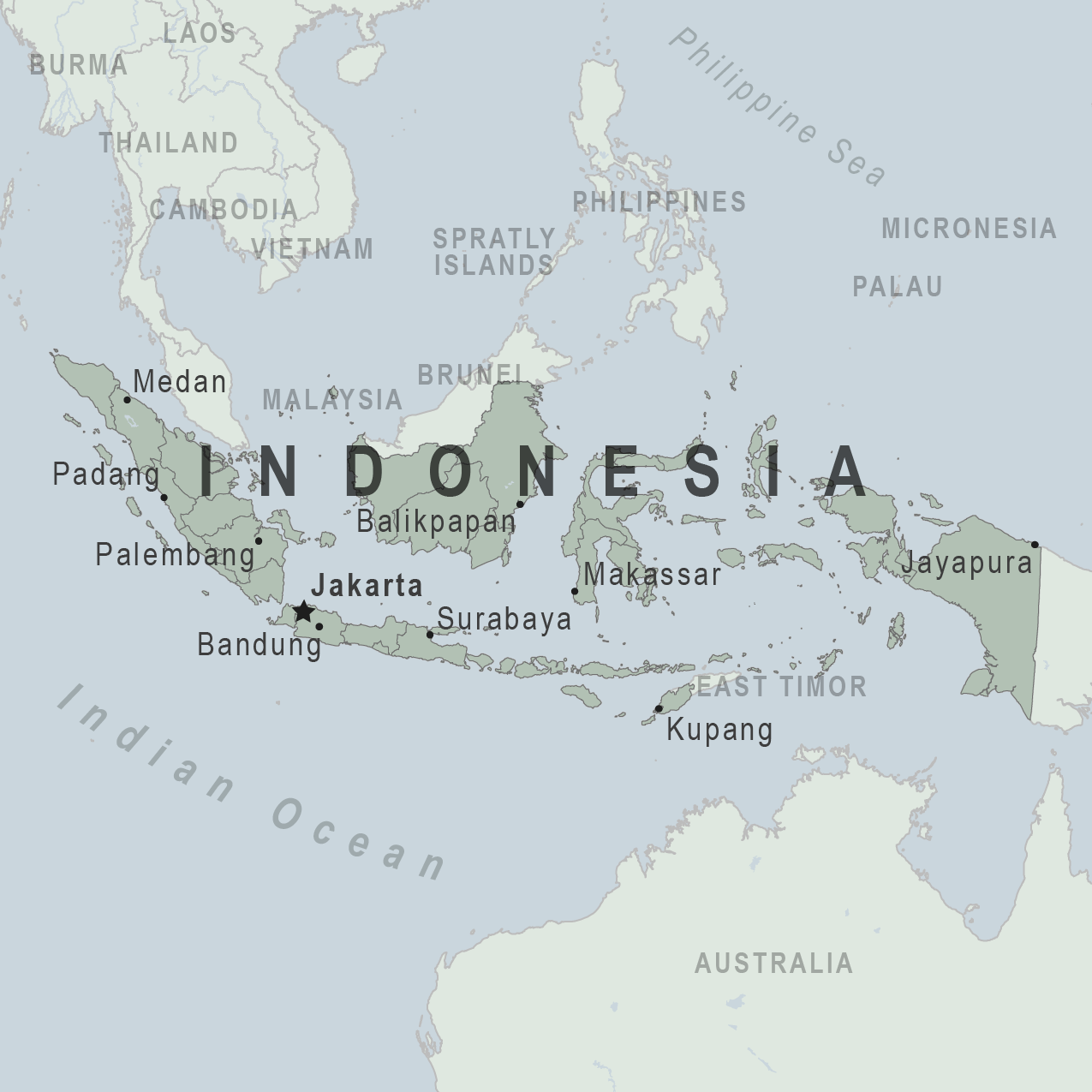
Be aware of current health issues in Indonesia. Learn how to protect yourself.
Level 2 Practice Enhanced Precautions
- Updated Global Polio August 20, 2024 Some international destinations have circulating poliovirus. Before any international travel, make sure you are up to date on your polio vaccines. Destination List: Afghanistan, Algeria, Angola, Benin, Botswana, Burkina Faso, Burundi, Cameroon, Central African Republic, Chad, Côte d'Ivoire (Ivory Coast), Democratic Republic of the Congo, Egypt, Ethiopia, Guinea, Indonesia, Kenya, Liberia, Madagascar, Mali, Mauritania, Mozambique, Niger, Nigeria, Pakistan, Republic of South Sudan, Republic of the Congo, Senegal, Sierra Leone, Somalia, Sudan, Tanzania, including Zanzibar, The Gambia, Uganda, Yemen, Zambia, Zimbabwe
Level 1 Practice Usual Precautions
- Updated Global Measles August 14, 2024 Many international destinations are reporting increased numbers of cases of measles. Destination List: Afghanistan, Angola, Armenia, Austria, Azerbaijan, Belarus, Benin, Bhutan, Bosnia and Herzegovina, Burkina Faso, Burundi, Cameroon, Central African Republic, Chad, Côte d'Ivoire (Ivory Coast), Democratic Republic of the Congo, Djibouti, Equatorial Guinea, Ethiopia, Gabon, Georgia, Ghana, Guinea, India, Indonesia, Kazakhstan, Kyrgyzstan, Lebanon, Liberia, Malaysia, Mali, Mauritania, Mozambique, Niger, Nigeria, Pakistan, Philippines, Qatar, Republic of South Sudan, Republic of the Congo, Romania, Russia, San Marino, Senegal, Somalia, Sri Lanka, Sudan, Syria, Togo, Turkey, United Arab Emirates, Uzbekistan, Yemen, Zambia
⇧ Top
Check the vaccines and medicines list and visit your doctor at least a month before your trip to get vaccines or medicines you may need. If you or your doctor need help finding a location that provides certain vaccines or medicines, visit the Find a Clinic page.
- Avoid contaminated water
Leptospirosis
How most people get sick (most common modes of transmission)
- Touching urine or other body fluids from an animal infected with leptospirosis
- Swimming or wading in urine-contaminated fresh water, or contact with urine-contaminated mud
- Drinking water or eating food contaminated with animal urine
- Avoid contaminated water and soil
- Avoid floodwater
Clinical Guidance
Schistosomiasis
- Wading, swimming, bathing, or washing in contaminated freshwater streams, rivers, ponds, lakes, or untreated pools.
Avoid bug bites
Chikungunya
- Mosquito bite
- Avoid Bug Bites
- Mosquito bite
- An infected pregnant woman can spread it to her unborn baby
Airborne & droplet
Avian/bird flu.
- Being around, touching, or working with infected poultry, such as visiting poultry farms or live-animal markets
- Avoid domestic and wild poultry
- Breathing in air or accidentally eating food contaminated with the urine, droppings, or saliva of infected rodents
- Bite from an infected rodent
- Less commonly, being around someone sick with hantavirus (only occurs with Andes virus)
- Avoid rodents and areas where they live
- Avoid sick people
Tuberculosis (TB)
- Breathe in TB bacteria that is in the air from an infected and contagious person coughing, speaking, or singing.
Learn actions you can take to stay healthy and safe on your trip. Vaccines cannot protect you from many diseases in Indonesia, so your behaviors are important.
Eat and drink safely
Food and water standards around the world vary based on the destination. Standards may also differ within a country and risk may change depending on activity type (e.g., hiking versus business trip). You can learn more about safe food and drink choices when traveling by accessing the resources below.
- Choose Safe Food and Drinks When Traveling
- Water Treatment Options When Hiking, Camping or Traveling
- Global Water, Sanitation and Hygiene (WASH)
- Avoid Contaminated Water During Travel
You can also visit the Department of State Country Information Pages for additional information about food and water safety.
Prevent bug bites
Bugs (like mosquitoes, ticks, and fleas) can spread a number of diseases in Indonesia. Many of these diseases cannot be prevented with a vaccine or medicine. You can reduce your risk by taking steps to prevent bug bites.
What can I do to prevent bug bites?
- Cover exposed skin by wearing long-sleeved shirts, long pants, and hats.
- Use an appropriate insect repellent (see below).
- Use permethrin-treated clothing and gear (such as boots, pants, socks, and tents). Do not use permethrin directly on skin.
- Stay and sleep in air-conditioned or screened rooms.
- Use a bed net if the area where you are sleeping is exposed to the outdoors.
What type of insect repellent should I use?
- FOR PROTECTION AGAINST TICKS AND MOSQUITOES: Use a repellent that contains 20% or more DEET for protection that lasts up to several hours.
- Picaridin (also known as KBR 3023, Bayrepel, and icaridin)
- Oil of lemon eucalyptus (OLE) or para-menthane-diol (PMD)
- 2-undecanone
- Always use insect repellent as directed.
What should I do if I am bitten by bugs?
- Avoid scratching bug bites, and apply hydrocortisone cream or calamine lotion to reduce the itching.
- Check your entire body for ticks after outdoor activity. Be sure to remove ticks properly.
What can I do to avoid bed bugs?
Although bed bugs do not carry disease, they are an annoyance. See our information page about avoiding bug bites for some easy tips to avoid them. For more information on bed bugs, see Bed Bugs .
For more detailed information on avoiding bug bites, see Avoid Bug Bites .
Stay safe outdoors
If your travel plans in Indonesia include outdoor activities, take these steps to stay safe and healthy during your trip.
- Stay alert to changing weather conditions and adjust your plans if conditions become unsafe.
- Prepare for activities by wearing the right clothes and packing protective items, such as bug spray, sunscreen, and a basic first aid kit.
- Consider learning basic first aid and CPR before travel. Bring a travel health kit with items appropriate for your activities.
- If you are outside for many hours in heat, eat salty snacks and drink water to stay hydrated and replace salt lost through sweating.
- Protect yourself from UV radiation : use sunscreen with an SPF of at least 15, wear protective clothing, and seek shade during the hottest time of day (10 a.m.–4 p.m.).
- Be especially careful during summer months and at high elevation. Because sunlight reflects off snow, sand, and water, sun exposure may be increased during activities like skiing, swimming, and sailing.
- Very cold temperatures can be dangerous. Dress in layers and cover heads, hands, and feet properly if you are visiting a cold location.
Stay safe around water
- Swim only in designated swimming areas. Obey lifeguards and warning flags on beaches.
- Practice safe boating—follow all boating safety laws, do not drink alcohol if driving a boat, and always wear a life jacket.
- Do not dive into shallow water.
- Do not swim in freshwater in developing areas or where sanitation is poor.
- Avoid swallowing water when swimming. Untreated water can carry germs that make you sick.
- To prevent infections, wear shoes on beaches where there may be animal waste.
Schistosomiasis, a parasitic infection that can be spread in fresh water, is found in Indonesia. Avoid swimming in fresh, unchlorinated water, such as lakes, ponds, or rivers.
Keep away from animals
Most animals avoid people, but they may attack if they feel threatened, are protecting their young or territory, or if they are injured or ill. Animal bites and scratches can lead to serious diseases such as rabies.
Follow these tips to protect yourself:
- Do not touch or feed any animals you do not know.
- Do not allow animals to lick open wounds, and do not get animal saliva in your eyes or mouth.
- Avoid rodents and their urine and feces.
- Traveling pets should be supervised closely and not allowed to come in contact with local animals.
- If you wake in a room with a bat, seek medical care immediately. Bat bites may be hard to see.
All animals can pose a threat, but be extra careful around dogs, bats, monkeys, sea animals such as jellyfish, and snakes. If you are bitten or scratched by an animal, immediately:
- Wash the wound with soap and clean water.
- Go to a doctor right away.
- Tell your doctor about your injury when you get back to the United States.
Consider buying medical evacuation insurance. Rabies is a deadly disease that must be treated quickly, and treatment may not be available in some countries.
Reduce your exposure to germs
Follow these tips to avoid getting sick or spreading illness to others while traveling:
- Wash your hands often, especially before eating.
- If soap and water aren’t available, clean hands with hand sanitizer (containing at least 60% alcohol).
- Don’t touch your eyes, nose, or mouth. If you need to touch your face, make sure your hands are clean.
- Cover your mouth and nose with a tissue or your sleeve (not your hands) when coughing or sneezing.
- Try to avoid contact with people who are sick.
- If you are sick, stay home or in your hotel room, unless you need medical care.
Avoid sharing body fluids
Diseases can be spread through body fluids, such as saliva, blood, vomit, and semen.
Protect yourself:
- Use latex condoms correctly.
- Do not inject drugs.
- Limit alcohol consumption. People take more risks when intoxicated.
- Do not share needles or any devices that can break the skin. That includes needles for tattoos, piercings, and acupuncture.
- If you receive medical or dental care, make sure the equipment is disinfected or sanitized.
Know how to get medical care while traveling
Plan for how you will get health care during your trip, should the need arise:
- Carry a list of local doctors and hospitals at your destination.
- Review your health insurance plan to determine what medical services it would cover during your trip. Consider purchasing travel health and medical evacuation insurance.
- Carry a card that identifies, in the local language, your blood type, chronic conditions or serious allergies, and the generic names of any medications you take.
- Some prescription drugs may be illegal in other countries. Call Indonesia’s embassy to verify that all of your prescription(s) are legal to bring with you.
- Bring all the medicines (including over-the-counter medicines) you think you might need during your trip, including extra in case of travel delays. Ask your doctor to help you get prescriptions filled early if you need to.
Many foreign hospitals and clinics are accredited by the Joint Commission International. A list of accredited facilities is available at their website ( www.jointcommissioninternational.org ).
In some countries, medicine (prescription and over-the-counter) may be substandard or counterfeit. Bring the medicines you will need from the United States to avoid having to buy them at your destination.
Malaria is a risk in some parts of Indonesia. If you are going to a risk area, fill your malaria prescription before you leave, and take enough with you for the entire length of your trip. Follow your doctor’s instructions for taking the pills; some need to be started before you leave.
Select safe transportation
Motor vehicle crashes are the #1 killer of healthy US citizens in foreign countries.
In many places cars, buses, large trucks, rickshaws, bikes, people on foot, and even animals share the same lanes of traffic, increasing the risk for crashes.
Be smart when you are traveling on foot.
- Use sidewalks and marked crosswalks.
- Pay attention to the traffic around you, especially in crowded areas.
- Remember, people on foot do not always have the right of way in other countries.
Riding/Driving
Choose a safe vehicle.
- Choose official taxis or public transportation, such as trains and buses.
- Ride only in cars that have seatbelts.
- Avoid overcrowded, overloaded, top-heavy buses and minivans.
- Avoid riding on motorcycles or motorbikes, especially motorbike taxis. (Many crashes are caused by inexperienced motorbike drivers.)
- Choose newer vehicles—they may have more safety features, such as airbags, and be more reliable.
- Choose larger vehicles, which may provide more protection in crashes.
Think about the driver.
- Do not drive after drinking alcohol or ride with someone who has been drinking.
- Consider hiring a licensed, trained driver familiar with the area.
- Arrange payment before departing.
Follow basic safety tips.
- Wear a seatbelt at all times.
- Sit in the back seat of cars and taxis.
- When on motorbikes or bicycles, always wear a helmet. (Bring a helmet from home, if needed.)
- Avoid driving at night; street lighting in certain parts of Indonesia may be poor.
- Do not use a cell phone or text while driving (illegal in many countries).
- Travel during daylight hours only, especially in rural areas.
- If you choose to drive a vehicle in Indonesia, learn the local traffic laws and have the proper paperwork.
- Get any driving permits and insurance you may need. Get an International Driving Permit (IDP). Carry the IDP and a US-issued driver's license at all times.
- Check with your auto insurance policy's international coverage, and get more coverage if needed. Make sure you have liability insurance.
- Avoid using local, unscheduled aircraft.
- If possible, fly on larger planes (more than 30 seats); larger airplanes are more likely to have regular safety inspections.
- Try to schedule flights during daylight hours and in good weather.
Medical Evacuation Insurance
If you are seriously injured, emergency care may not be available or may not meet US standards. Trauma care centers are uncommon outside urban areas. Having medical evacuation insurance can be helpful for these reasons.
Helpful Resources
Road Safety Overseas (Information from the US Department of State): Includes tips on driving in other countries, International Driving Permits, auto insurance, and other resources.
The Association for International Road Travel has country-specific Road Travel Reports available for most countries for a minimal fee.
For information traffic safety and road conditions in Indonesia, see Travel and Transportation on US Department of State's country-specific information for Indonesia .
Traffic flows on the left side of the road in Indonesia.
- Always pay close attention to the flow of traffic, especially when crossing the street.
- LOOK RIGHT for approaching traffic.
Maintain personal security
Use the same common sense traveling overseas that you would at home, and always stay alert and aware of your surroundings.
Before you leave
- Research your destination(s), including local laws, customs, and culture.
- Monitor travel advisories and alerts and read travel tips from the US Department of State.
- Enroll in the Smart Traveler Enrollment Program (STEP) .
- Leave a copy of your itinerary, contact information, credit cards, and passport with someone at home.
- Pack as light as possible, and leave at home any item you could not replace.
While at your destination(s)
- Carry contact information for the nearest US embassy or consulate .
- Carry a photocopy of your passport and entry stamp; leave the actual passport securely in your hotel.
- Follow all local laws and social customs.
- Do not wear expensive clothing or jewelry.
- Always keep hotel doors locked, and store valuables in secure areas.
- If possible, choose hotel rooms between the 2nd and 6th floors.
Healthy Travel Packing List
Use the Healthy Travel Packing List for Indonesia for a list of health-related items to consider packing for your trip. Talk to your doctor about which items are most important for you.
Why does CDC recommend packing these health-related items?
It’s best to be prepared to prevent and treat common illnesses and injuries. Some supplies and medicines may be difficult to find at your destination, may have different names, or may have different ingredients than what you normally use.
If you are not feeling well after your trip, you may need to see a doctor. If you need help finding a travel medicine specialist, see Find a Clinic . Be sure to tell your doctor about your travel, including where you went and what you did on your trip. Also tell your doctor if you were bitten or scratched by an animal while traveling.
If your doctor prescribed antimalarial medicine for your trip, keep taking the rest of your pills after you return home. If you stop taking your medicine too soon, you could still get sick.
Malaria is always a serious disease and may be a deadly illness. If you become ill with a fever either while traveling in a malaria-risk area or after you return home (for up to 1 year), you should seek immediate medical attention and should tell the doctor about your travel history.
For more information on what to do if you are sick after your trip, see Getting Sick after Travel .
Map Disclaimer - The boundaries and names shown and the designations used on maps do not imply the expression of any opinion whatsoever on the part of the Centers for Disease Control and Prevention concerning the legal status of any country, territory, city or area or of its authorities, or concerning the delimitation of its frontiers or boundaries. Approximate border lines for which there may not yet be full agreement are generally marked.
Other Destinations
If you need help finding travel information:
Message & data rates may apply. CDC Privacy Policy
File Formats Help:
- Adobe PDF file
- Microsoft PowerPoint file
- Microsoft Word file
- Microsoft Excel file
- Audio/Video file
- Apple Quicktime file
- RealPlayer file
- Zip Archive file

Search Smartraveller

Latest update
Exercise a high degree of caution in Indonesia overall due to security risks.
Higher levels apply in some areas.

Indonesia (PDF 699.19 KB)
Asia (PDF 2.29 MB)
Local emergency contacts
Fire services, ambulance and rescue services, medical emergencies.
Call 110 or 112.
Tourist Police, Bali
Call (+0361) 759 687.
Tourist Police, Jakarta
Call (+201) 526 4073.
Advice levels
Exercise a high degree of caution in Indonesia overall.
Reconsider your need to travel to the provinces of Papua (Papua), Papua Highlands (Papua Pegunungan), Central Papua (Papua Tengah) and South Papua (Papua Selatan).
Reconsider your need to travel to the provinces of Papua, Papua Pegunungan, Papua Tengah and Papua Selatan due to the risk of serious security incidents or demonstrations that may turn violent.
- There's an ongoing risk of terrorist attack in Indonesia. Be alert to possible threats. Take official warnings seriously and follow the advice of local authorities. Popular tourist areas may be the target of terrorist attacks.
- Public protests and events that draw large groups of people occur regularly and can turn violent with little notice. Expect traffic delays and restricted access to locations if there are protests. Avoid protests and demonstrations and monitor local media for the latest updates.
- There's been tension, including demonstrations and violence, in towns within the provinces of Papua, Papua Pegunungan, Papua Tengah and Papua Selatan in recent years. Armed groups have stated that they're targeting foreigners, including Australians. Our ability to provide consular support in these provinces is limited. Armed groups have killed a foreign pilot and shot at aircraft, including commercial planes, in remote airports in Papua Pegunungan and Papua Tengah provinces.
- Many of Indonesia's volcanoes are active and can erupt without warning. Adhere to exclusion zones around volcanoes, which can change at short notice, and follow the advice of local authorities. Domestic and international flights can be disrupted. Monitor Indonesia's Volcano Observatory Notice for the latest volcanic activity (Bahasa Indonesia and English), Global Disaster Alert and Coordination System and the Volcanic Ash Advisory Centre for updates.
- Petty and violent crime occurs in Indonesia. Opportunistic crime, such as pickpocketing occurs. Drinks may be spiked or mixed with toxic substances. Crimes involving taxis and taxi drivers occur. Solo women are at higher risk. Be alert in taxis, public transport, crowds, bars and nightclubs.
- Legal disputes over real estate are common, including in Bali. Before entering into an agreement or providing financial details, do your research and get legal advice.
- Natural disasters such as severe weather, floods, landslides, earthquakes, volcanic eruptions and tsunamis occur regularly. Weather conditions can change quickly during the wet season (October – April). Regularly check weather reports, monitor media and speak to your travel provider before continuing with planned activities. Follow the advice of local authorities.
- When undertaking adventure activities, ensure that functioning safety equipment is available, that you have travel insurance and that your policy covers you for these activities.
Full travel advice: Safety
- Before entering Indonesia, you need to complete an electronic health declaration form called the SATUSEHAT Health Pass . You can complete the form online before you check-in for your flight to Indonesia. After completing the form, a barcode containing your health and travel history will appear. Indonesian authorities will scan the barcode on arrival in Indonesia. Save your barcode, or bring a printed copy with you to ensure authorities can scan it on arrival. If you have Mpox symptoms you may be referred to a hospital for treatment on arrival.
- The standard of medical facilities in Indonesia is generally lower than in Australia. Many regional hospitals only provide basic facilities.
- Some medications, including prescription medications, drugs for attention deficit hyperactivity disorder (ADHD), all cannabis-based products including medicinal cannabis, cannabis-based oils and creams, hemp-based products, CBD, THC, hash and edibles, are illegal in Indonesia. Harsh penalties, such as arrest and jail time, can apply even if you have a prescription. Make sure your medication is legal in Indonesia .
- Purchasing prescription medication online or over the counter in Indonesia without an Indonesian prescription is illegal. Ensure you provide a valid prescription from an Indonesian doctor before purchasing prescription medication and confirm that it's accepted by the seller before your purchase.
Full travel advice: Health
- Indonesia has revised its criminal code, which includes penalties for cohabitation and sex outside of marriage. These revisions will not come into force until January 2026.
- Penalties for drug offences include heavy fines, long prison sentences and the death penalty. Police target tourist destinations.
- Some medications are illegal in Indonesia. Harsh penalties can apply even if you have a prescription. It is also illegal to purchase prescription medications online or over the counter without an Indonesian prescription. Ensure you have a valid Indonesian prescription. See ' Health '.
The death penalty exists for some crimes in Indonesia.
- Standards of dress and behaviour are conservative in many parts of Indonesia. Learn about local customs. Take care not to offend.
- Aceh province upholds aspects of sharia law. Sharia law applies to everyone, including travellers. Inform yourself about the laws, and be careful not to offend or break local laws. If in doubt, seek local advice.
Full travel advice: Local laws
- Before entering Indonesia, you need to complete an electronic health declaration form called the SATUSEHAT Health Pass . You can complete the form online before you check-in for your flight to Indonesia. After completing the form, a barcode containing your health and travel history will appear. Indonesian authorities will scan the barcode on arrival in Indonesia. Save your barcode, or bring a printed copy with you to ensure authorities can scan it on arrival. If you have Mpox symptoms you may be referred to a hospital for treatment on arrival (See 'Health').
- The Bali Provincial Government has introduced a tourist levy of IDR 150,000 per person to foreign tourists entering Bali. The tourist levy is separate from the e-Visa on Arrival or the Visa on Arrival. Cashless payments can be made online prior to travel or on arrival at designated payment counters at Bali's airport and seaport. See the Bali Provincial Government's official website and FAQs for further information.
- If you're travelling to Indonesia for tourism, official government duties or business meetings, you can apply for an e-Visa on Arrival (e-VOA) online at least 48 hours before your travel to Indonesia. This also applies if you're transiting through Indonesia at international airports, seaports and land crossings. You can get a Visa on Arrival (VOA) at some international airports, seaports or land crossings.
- To apply for the e-VOA or VOA, you must have an ordinary (non-emergency) passport with at least 6 months of validity from the date you plan to enter (we also recommend having at least 6 months of passport validity from the date you plan to leave Indonesia, to avoid any issues for your departure or onward travel) and a return or onward flight booking to another country.
- You may need to apply for a visa in advance to enter Indonesia for purposes not covered by the e-VOA or VOA. Check the latest entry requirements with your travel provider or an Embassy or Consulate of Indonesia before travel. Entry, exit and transit conditions can change at short notice, including to Bali and Jakarta by air, land or sea. Contact your travel provider and monitor media for the latest updates.
- You'll be required to complete an e-customs declaration for arrival. You can complete this within 3 days of departure to Indonesia.
Full travel advice: Travel
Local contacts
- The Consular Services Charter tells you what the Australian Government can and can't do to help when you're overseas.
- For consular help, contact the Australian Embassy, Jakarta , the Australian Consulate-General, Bali , the Australian Consulate-General, Makassar or the Australian Consulate-General, Surabaya .
- To stay up to date with local information, follow the Embassy's social media accounts.
Full travel advice: Local contacts
Full advice
The terrorist threat in Indonesia is ongoing. Attacks could happen anywhere and anytime. This includes places that foreigners visit.
Be alert to possible threats. Take official warnings seriously and follow the advice of local authorities. Remain respectful of religious and local customs.
Indonesian authorities continue to investigate and disrupt terrorist groups in Indonesia, including Bali.
Terrorist attacks are motivated by extreme beliefs. Both local grievances as well as events in other parts of the world could motivate extremists in Indonesia towards violence.
Recent terrorist attacks
In December 2022, an explosion occurred at a police station in Bandung, Jawa Barat, killing 2 and injuring 11.
In March 2021, 2 suicide bombers attacked a church in Makassar, injuring dozens.
In the past, police have said that terrorist suspects remain at large and may seek Western targets.
Indonesian security agencies continue to conduct operations against terrorist groups.
Terrorists in Indonesia may carry out small-scale violent attacks with little or no warning.
Be alert in places of worship, especially during periods of religious significance.
Terrorists have targeted places of worship in:
As well as places of worship, other possible targets by terrorists include:
- Indonesian government facilities, premises and symbols associated with the Indonesian Government
- police stations and checkpoints
- bars, nightclubs, cafes and restaurants
- cinemas and theatres
- shopping centres, public transport and transport hubs
- airports and airlines
- clubs, including sporting clubs
- tourist areas and attractions, tour buses and tour groups
- outdoor recreation events
Supporters have committed additional acts of violence in response to high-profile extremists being detained or killed.
To protect yourself during a terrorist attack:
- leave the area as soon as it's safe
- follow the advice of local authorities
- don't gather in a group after an attack
- don't gather in a group if you're evacuated from a building
Security remains at a high level at:
- the Australian Embassy in Jakarta
- the Consulates-General in Bali, Makassar and Surabaya
More information:
Civil unrest and political tension
Most events are announced before they happen; however, protests may occur with little or no notice.
Protests and events are often held near major government buildings and embassies in Jakarta, including the Australian Embassy.
Protests may also occur at any of Australia's Consulates-General in Surabaya, Bali and Makassar, at government buildings, or the offices of international organisations in Indonesia.
You can expect traffic delays and restricted access to locations if there are protests.
Phone or email ahead for an appointment before going to the Embassy or the Consulates-General (see Local contacts ).
Demonstrations and acts of violence can happen when courts try and sentence extremists.
Conflict between different communities can sometimes occur, including in the provinces of Papua, Papua Pegunungan, Papua Tengah and Papua Selatan. Our ability to provide consular support in these provinces is limited.
Local violence can also be directed at minority groups in other parts of Indonesia, including in Java.
If you're found to endanger security or public order, you may be prosecuted under Indonesia's Immigration laws, which may result in imprisonment or deportation.
To protect yourself from possible violence:
- avoid protests and demonstrations
- monitor local media for the latest security updates
- plan your activities to avoid potential unrest on significant dates
- be prepared to change your travel plans
- Demonstrations and civil unrest
Armed conflict
The provinces of Papua, Papua Pegunungan, Papua Tengah and Papua Selatan experience regular violent clashes involving armed groups, civilians, Indonesian police, and the military. Armed groups have stated that they are targeting foreigners, including Australians. Our ability to provide consular support in these provinces is limited.
Many people have been killed and injured in clashes. This includes members of security forces, armed groups and civilians. Violent attacks have occurred in several areas of these provinces, including in and around Jayapura. There's a risk of more attacks.
In February 2023, a riot broke out in Wamena, Papua Pegunungan, when a crowd attacked Indonesian security personnel following the arrest of two people accused of child kidnapping. 12 civilians and rioters were killed.
Violent attacks have occurred around the Freeport Mine in Papua Tengah.
Armed groups have:
- killed a New Zealand helicopter pilot in Mimika, Papua Tengah
- taken a New Zealand pilot hostage in Paro, Papua Pegunungan
- shot at aircraft, including commercial planes, at Beoga airport in Papua Tengah province and Nop Goliat Dekai airport in Papua Pegunungan province
- killed people in attacks, including one Australian
- attacked vehicles using the road between Grasberg and Timika
- killed people in violent attacks in Puncak Jaya District, Papua Tengah
- more attacks are possible and could target infrastructure and national institutions.
A range of crimes, including violent crime, occur in Indonesia. Crimes can happen in popular tourist locations in Bali.
To protect yourself from crime:
- be aware of your surroundings
- be alert in crowds
- understand the potential crime risks
Theft, robbery and bag and phone snatching have occurred. These crimes can sometimes involve violence. Opportunistic crime such as pickpocketing occurs.
Be careful of thieves:
- on motorcycles targeting pedestrians
- in upmarket shopping malls
- in crowded public transport
- at traffic lights targeting people in stopped cars
- at bars and nightclubs
- when entering accommodation, including villas in Bali
Keep bags and valuables out of sight in vehicles.
If you're travelling on foot, walk:
- on footpaths
- away from the curb
- with your bag held away from traffic
Sexual assault
If you're a victim of sexual assault :
- get immediate medical assistance. If you have any doubts about seeking medical assistance after a sexual assault, contact your nearest Australian Embassy or Consulate in Indonesia (see Local contacts ) as quickly as possible.
- make a full statement to local police, in person, so they can conduct a criminal investigation. You may wish to seek consular help before you visit the police station. Contact your nearest Australian Embassy or Consulate (see Local contacts ).
Local police can only investigate a crime after you've left Indonesia if you've reported it.
Your sworn statement, or statements by witnesses, can be used as evidence in criminal court proceedings.
You don't always need to be in Indonesia for trial. Neither do witnesses who live outside of Indonesia.
Counselling support
Should you wish to speak to a counsellor, you can call the 24-hour Consular Emergency Centre on +61 2 6261 3305 or contact your nearest Australian Embassy or Consulate (see Local contacts ). They can connect you to counselling hotlines and services.
- Reducing the risk of sexual assault
Bars and nightclubs
Be alert in bars and nightclubs. Drink-spiking and snatching of valuables may occur if you're not alert.
Drinks may be contaminated with drugs or toxic substances. See Health .
Don't leave your food or drinks unattended.
Never accept drinks, food, gum, cigarettes, vapes or e-cigarettes from people you've just met.
- Partying safely
Credit card and ATM fraud
Credit card, online banking and ATM fraud occurs in Indonesia.
Check your bank statements.
Make sure your bank doesn't block your cards. Tell your bank you'll be visiting Indonesia.
Never let your card out of your sight. This includes when you pay in restaurants.
Shield your PIN from sight.
Some vendors install hidden cameras and use card skimmers.
Don’t click on unknown links in WhatsApp or mobile phone text messages, particularly if your phone is linked to mobile banking.
Use ATMs at controlled and secure places, such as:
- shopping centres
Scams and confidence tricks
Beware of scams and confidence tricks.
Only exchange money at authorised money changers. Authorised money changers can also be found on the Bali Foreign Exchange website . Unauthorised money changers have been known to scam foreign tourists in Bali and elsewhere.
All types of gambling are illegal in Indonesia.
Australians have lost large sums of money in card game scams run by organised gambling gangs, particularly in Bali. See Local laws
Some tourists have been robbed or planted with drugs after taking new acquaintances back to their hotel rooms. In some cases, their drinks were spiked.
Legal disputes over the purchase of real estate are common, including in Bali, involving:
- holiday clubs and resorts
- timeshare schemes
Before entering into an agreement or providing financial details:
- thoroughly research the proposal
- get legal advice and know your rights, especially before you sign any documents
Using taxis
Only use licensed official metered taxis. Crimes involving unregistered taxis include:
- taxis departing before the passenger can take their baggage from the vehicle
- taxi drivers robbing or temporarily holding passengers, including in urban areas
- taxi drivers forcing passengers to withdraw money at ATMs before releasing them
Lone female travellers are at higher risk of crime.
If you're in an incident involving a taxi, leave the taxi and the immediate area if it's safe to do so.
To protect yourself from overcharging and scams:
- only travel in licensed taxis with signage, a "taxi" roof sign and meters working
- ensure the driver's identification card is visible
- book via your phone, on an official taxi company mobile app, from inside an airport, or at stands at major hotels
See Travel .
Cyber security
You may be at risk of cyber-based threats during overseas travel to any country. Digital identity theft is a growing concern. Your devices and personal data can be compromised, especially if you're connecting to Wi-Fi, using or connecting to shared or public computers, or to Bluetooth.
Social media can also be risky in destinations where there are social or political tensions, or laws that may seem unreasonable by Australian standards. Travellers have been arrested for things they have said on social media. Don't comment on local or political events on your social media.
- Cyber security when travelling overseas
Kidnapping occurs across the world with political, ideological and criminal motives. Foreigners, including Australians, have been kidnapped overseas while travelling. Kidnaps can happen anywhere, anytime, including destinations that are typically at lower risk.
On 5 August, a New Zealand helicopter pilot was killed by an armed group in Alama District, Mimika Regency, Papua Tengah. In February 2023, a New Zealand pilot was taken hostage by an armed group in Paro, Papua Pegunungan.
The Australian Government's longstanding policy is that it doesn't make payments or concessions to kidnappers.
Adventure activities
Many businesses don't follow safety and maintenance standards. This includes transport and tour operators, water sports providers, hotels, restaurants and shops.
It may affect adventure activities, such as:
- bungee jumping
- scuba diving and snorkelling
- chairlift or gondola rides
In the past, Australians have been seriously injured or died while participating in adventure activities. If you require intensive care medical treatment, emergency surgery or medical evacuation. The Australian Government won't pay for these costs.
If you plan to do an adventure activity :
- check if your travel insurance policy covers it
- ask about safety, search and rescue procedures
- ask about and insist on minimum safety requirements
- always use available safety gear, such as life jackets or seatbelts
- check with your travel provider on vessel capacity limits before embarking on sea, land or air travel
- check weather and ocean conditions, and whether the vessel has had any mechanical issues, on the day and before continuing with water activities or sea travel
- check where the nearest medical facilities are
If proper safety equipment isn't available or you're unsure of the provider's safety or maintenance procedures, use another provider.
Trekking and climbing
Some mountain treks suit only experienced climbers. Travel with a guide and check the level of difficulty beforehand.
Many trekking options may be on or around an active volcano. Many of Indonesia's volcanoes are active and can erupt without warning. Volcanic and seismic activity may continue for some time. Adhere to exclusion zones around volcanoes, which can change at short notice, and follow the advice of local authorities. If you're planning to travel to an area near an active volcano, check with local authorities before climbing and check:
- Bureau of Meteorology Volcanic Ash Advisory Centre
- MAGMA Indonesia (Bahasa Indonesia) for daily updates on status and alert levels
- National Disaster Management Authority (BNPB) (Bahasa Indonesia)
- Global Disaster Alert and Coordination System
Swimming safety
People have drowned in coastal areas, including in Bali, due to rough seas, strong currents, or from swimming, snorkelling or scuba diving in areas where there is frequent passage of boats, resulting in collisions.
Local beach rescue services may not be of the same standard as in Australia.
Saltwater crocodiles are in rivers throughout Indonesia. Avoid swimming around river estuaries and seek local advice in other locations.
If you plan to spend time in or on the water:
- regularly check weather reports as sea conditions can change rapidly
- take warnings seriously
- check media and local sources for information about potential dangers
- speak to your travel provider about safety equipment and weather conditions before continuing with planned activities
- take a friend or family member with you when you undertake swimming or water activities
- be careful when swimming, snorkelling or scuba diving near motor-powered boats or where there is frequent passage of boats
- ensure you have travel insurance and that your policy covers you for planned activities
Ensure you have travel insurance and that your policy covers you for planned activities.
Climate and natural disasters
Indonesia experiences natural disasters and severe weather , including:
- landslides and mudslides
- volcanic eruptions
- earthquakes
- storms resulting in turbulent sea conditions
- tsunamis and high wave events
If there's a natural disaster or severe weather:
- always carry your passport in a waterproof bag
- keep in contact with family and friends
- check the media and local sources for information
- don't undertake sea, land or air travel if it's not safe to do so
- Indonesian Meteorology, Climatology and Geophysics Agency (BMKG) (English and Bahasa Indonesia)
- BMKG Multi-Hazard Early Warning System app (English and Bahasa Indonesia)
Floods and mudslides
Floods , landslides and mudslides occur regularly during the wet season from October to April, with some severe events resulting in injury, displacement, death or damaged infrastructure.
Heavy rains can cause significant flooding in urban areas, including the greater Jakarta region, causing disruption to transportation. Monitor the local media for updates.
Walking and driving in flooded areas can be dangerous. Flood waters may hide uncovered drainage ditches.
Volcanic activity may escalate with little or no notice, leading to flight disruptions and airport closures, including in surrounding provinces. Contact your airline for the latest flight information.
There are 147 volcanoes in Indonesia. 76 of them are active volcanoes and could erupt at any time.
Volcanic alert levels and exclusion zones may rise quickly. You may be ordered to evacuate at short notice. Volcanic activity can disrupt domestic and international flights. There are 4 volcano alert levels in Indonesia; 1 - normal, 2 - advisory, 3 - watch, 4 - warning.
Before you travel to areas that are prone to volcanic activity, monitor media and ensure you read the Indonesian Government's latest advice on current volcanic activity, including:
- Volcanic Activity Report by Indonesia's Multiplatform Application for Geohazard Mitigation and Assessment (MAGMA) (Bahasa Indonesia)
- Volcano Activity and Observatory Notices (English and Bahasa Indonesia)
- MAGMA Indonesia Map of Latest Volcano Levels and Climate Information (Bahasa Indonesia)
- Bureau of Meteorology's Volcanic Ash Advisory Centre
If there's volcanic activity:
- avoid the area
- take official warnings seriously and adhere to exclusion zones
- follow the instructions and advice of local authorities
- follow evacuation orders
- read our advice on Volcanic eruptions while travelling
Volcanic ash can cause breathing difficulties. The risk is higher for people with chronic respiratory illnesses, including:
Recent and frequent volcanic activity has included:
- Mount Ile Lewetolok in East Nusa Tenggara (Nusa Tenggara Timur)
- Mount Lewotobi Laki Laki in East Flores Regency, Nusa Tenggara Timur
- Mount Marapi in West Sumatra
- Mount Anak Krakatau, to the south of Sumatra
- Mount Merapi, near Yogyakarta
- Mt Dukono in North Sulawesi
- Mount Semeru, near Malang, East Java
- Mount Agung in Bali
- Mount Sinabung in North Sumatra
Some trekking routes are on or near active volcanoes, including Mount Agung and Mount Batur in Bali, Mount Marapi in West Sumatra, Mount Merapi near Yogyakarta, Mount Rinjani in Lombok, Mount Bromo and Mount Ijen in East Java. See 'Trekking and climbing'.
If you're planning to travel to an area near an active volcano, make sure you have comprehensive travel insurance and check if any restrictions apply.
If a volcanic eruption occurs:
- make a backup plan in case you're affected
- contact your airline or travel insurer to confirm flight schedules and get help
- keep in touch with family and friends
- Learn more about volcanic eruptions (Geoscience Australia)
- See practical advice and information about volcanic eruptions (US CDC)
- See worldwide volcanic activity reports in real-time (GDACS)
Earthquakes
Indonesia is in an active earthquake region. It has a high level of earthquake activity, that sometimes triggers tsunamis.
There are approximately 4,000 earthquakes across Indonesia every year. Around 70 to 100 of these are over 5.5 magnitude.
Earthquakes can cause death, injury and significant damage to infrastructure.
Strong earthquakes can occur anywhere in Indonesia. They are less common in Kalimantan and south-west Sulawesi.
To stay safe during an earthquake:
- know the emergency plans at your accommodation
- take precautions to avoid exposure to debris and hazardous materials, including asbestos
- MAGMA Indonesia (Bahasa Indonesia)
- Indonesia's Meteorology, Climatology and Geophysics Agency (Bahasa Indonesia) or BMKG Multi-Hazard Early Warning System app (English and Indonesia)
- Indonesia's Centre for Volcanology and Geological Disaster Mitigation (Bahasa Indonesia)
- US Federal Emergency Management Agency advice on what to do before, during and after an earthquake (English)
Forest fires and smoke haze
During the dry season in April to November, widespread forest fires can cause smoke haze resulting in poor air quality across parts of Indonesia, particularly the Riau Islands, central Sumatra and Kalimantan.
Smoke haze could affect your health and travel plans.
Keep up to date with local information and seek medical advice on appropriate precautions.
- ASEAN Regional Haze Situation
- Smartraveller advice on Bushfires
Tsunamis and high wave events
The Indian and Pacific Oceans experience more frequent, large and destructive tsunamis than other parts of the world.
There are many large earthquakes along major tectonic plate boundaries and ocean trenches.
High wave events can happen throughout coastal regions and between islands. They're caused by strong weather conditions and storms.
If you plan to surf, undertake water activities or travel by sea, check local conditions regularly.
If there’s a tsunami or high wave event:
- don't travel by sea if it's not safe to do so
- Indonesia Tsunami Early Warning Centre issues warnings when a potential tsunami with significant impact is expected
- Indonesia's Meteorology, Climatology and Geophysics Agency with the latest list of earthquakes with a magnitude greater than 5.0 on the Richter scale (Bahasa Indonesia) or BMKG Multi-Hazard Early Warning System app (English and Bahasa Indonesia)
- US Federal Emergency Management Agency page on what to do before, during and after an earthquake
Piracy occurs in the coastal areas of Indonesia.
The International Maritime Bureau (IMB) issues weekly piracy reports.
If you decide to travel by boat in these regions:
- check IMB piracy reports
- get local advice
- arrange security measures
- Travelling by boat
- Going on a cruise
- International Maritime Bureau
Travel insurance
Get comprehensive travel insurance before you leave.
Your policy needs to cover all overseas medical costs, including emergency treatment and medical evacuation. The Australian Government won't pay for these costs.
If you can't afford travel insurance, you can't afford to travel. This applies to everyone, no matter how healthy and fit you are.
If you're not insured, you may have to pay many thousands of dollars up-front for medical care.
Before you travel, confirm:
- what activities and care your policy covers
- that your insurance covers you for the whole time you'll be away, including on all forms of transport you plan to take
- whether it covers medical evacuation in the event of hospitalisation or injury
- any exclusions to your policy
Physical and mental health
Consider your physical and mental health before you travel, especially if you have an existing medical condition.
See your doctor or travel clinic to:
- have a basic health check-up
- ask if your travel plans may affect your health
- plan any vaccinations you need
Do this at least 8 weeks before you leave.
If you have immediate concerns for your welfare or the welfare of another Australian, call the 24-hour Consular Emergency Centre on +61 2 6261 3305 or contact your nearest Australian Embassy, High Commission or Consulate to discuss counselling hotlines and services available in your location.
- General health advice
- Healthy holiday tips (Healthdirect Australia)
Not all medication available over the counter or by prescription in Australia is available in other countries. Some may even be considered illegal or a controlled substance, even if prescribed by an Australian doctor.
Some drugs used to treat attention deficit hyperactivity disorder (ADHD) are illegal in Indonesia.
If you plan to bring over-the-counter or prescription medication, check if it's legal in Indonesia by contacting the Indonesian Embassy in Canberra well in advance of your planned travel. Take enough legal medicine for your trip and carry it in its original packaging. Purchasing prescription medication online in Indonesia without an Indonesian prescription is illegal. Ensure you provide a valid prescription from an Indonesian doctor before purchasing prescription medication and confirm that it's accepted by the seller prior to your purchase.
Carry a copy of your prescription and a letter from your doctor stating:
- what the medicine is
- your required dosage
- that it's for medical treatment or use
If you're caught with illegal medicine, you could face detention, fines or harsher penalties. You could face charges even if an Australian doctor prescribed the medication.
Ask the Indonesian Embassy in Canberra for advice before you travel.
Medicinal cannabis and cannabis-based products
Cannabis-based products such as cannabis oil and creams, hemp, CBD, THC, hash and edibles remain illegal in Indonesia, including for medicinal purposes. A medical prescription does not make it legal. If you take such products to Indonesia or purchase or use them in Indonesia, you can be arrested and face imprisonment, fines, deportation or the death penalty.
- Medications
Health Risks
To prevent the entry of new variants of Mpox to Indonesia, all travellers arriving at international ports in Indonesia need to complete an electronic health declaration form called the SATUSEHAT Health Pass.
You can complete the form online before you check-in for your flight to Indonesia. After completing the form, a barcode containing your health and travel history will appear. Indonesian authorities will scan the barcode on arrival in Indonesia. Save your barcode or bring a printed copy with you, to ensure authorities can scan it on arrival. If you have Mpox symptoms you may be referred to a hospital for treatment on arrival.
- SATUSEHAT Health Pass
Critical care for Australians who become seriously ill, including in Bali, is significantly below the standard available in Australia. Medical evacuation may not be possible.
The Australian Government cannot guarantee your access to hospitals and other health services in Indonesia.
Medical evacuation to Australia for medical conditions, is possible but is very expensive and may not be covered by travel insurance. Check your policy before you travel.
Ban on sale of liquid/syrup medication
The Indonesian Ministry of Health (MoH) has advised local health workers and pharmacists to stop selling liquid/syrup medication, including commonly used medications containing paracetamol and cough syrups. MoH and the Indonesian Paediatrician Association (IDAI) received reports of a sharp increase in cases of Atypical Progressive Acute Kidney Injury (AKI) in children , especially under the age of 5 years.
Insect-borne illnesses
Insect-borne illnesses are common throughout the year.
To protect yourself from disease:
- research your destination
- ask locals for advice
- make sure your accommodation is mosquito-proof
- use insect repellent
- wear long, loose, light-coloured clothing
Dengue occurs throughout Indonesia, including Bali, Jakarta and other major cities.
Dengue is common during the rainy season.
Australian health authorities have reported an increase in dengue infections in people returning from Bali in recent years.
Consult your travel doctor for further information on available vaccines and their suitability for your individual circumstances.
Zika virus can occur in Indonesia.
Protect yourself from mosquito bites.
The Australian Department of Health and Aged Care advises pregnant women to:
- discuss any travel plans with their doctor
- consider deferring non-essential travel to affected areas
Malaria , including chloroquine-resistant strains, is widespread in rural areas, particularly in the provinces of Papua, Papua Pegunungan, Papua Tengah, Papua Selatan, Papua Barat Daya, Papua Barat, Maluku and Nusa Tenggara Timur. There is no malaria transmission in Jakarta.
- Consider taking medicine to prevent malaria.
Japanese encephalitis and filariasis
Japanese encephalitis and filariasis occur in Indonesia, especially in rural agricultural areas.
Japanese encephalitis has been present in Australian travellers returning from Indonesia, including Bali.
Vaccination is recommended for certain groups of travellers.
- Infectious diseases
Drink poisoning
People have been poisoned by alcoholic drinks contaminated with harmful substances, including methanol and arak (a traditional rice-based spirit). Locals and foreigners, including Australians, have died or become seriously ill from poisoned drinks.
Cases of drink poisoning have been reported in Bali and Lombok.
Contaminated drinks have included:
- local spirits
- spirit-based drinks, such as cocktails
- brand name alcohol
To protect yourself from drink poisoning:
- consider the risks when drinking alcoholic beverages
- be careful drinking cocktails and drinks made with spirits
- drink only at reputable licensed premises
- avoid home-made alcoholic drinks
Labels on bottles aren't always accurate.
Symptoms of methanol poisoning can be similar to drinking too much. However, they are usually stronger.
Symptoms of methanol poisoning include:
- vision problems
Vision problems may include:
- blindness, blurred or snowfield vision
- changes in colour perception
- difficulty looking at bright lights
- dilated pupils
- flashes of light
- tunnel vision
If you suspect that you or someone you're travelling with may have been poisoned, act quickly. Urgent medical attention could save your life or save you from permanent disability.
Report suspected cases of methanol poisoning to the Indonesian police.
Magic mushrooms
Don't consume magic mushrooms. They're illegal.
Australians have become sick or injured after taking magic mushrooms.
Australians have been in trouble with local police after taking magic mushrooms, particularly in Bali.
Magic mushrooms can cause major health problems, including:
- erratic behaviour
- severe hallucinations
Rabies is a risk throughout Indonesia, especially in:
- Nusa Tenggara Timur, including Labuan Bajo
- South Sulawesi
- West Kalimantan
- Nias, off the west coast of Sumatra
To protect yourself from rabies:
- avoid direct contact with dogs
- don't feed or pat animals
- avoid contact with other animals, including bats and monkeys.
Talk to your doctor about getting a pre-exposure rabies vaccination.
If bitten or scratched by an animal:
- immediately use soap and water to wash the wound thoroughly for 15 minutes
- seek urgent medical attention.
Rabies treatment in Indonesia may be limited, including the rabies vaccine and immunoglobulin availability. If you're bitten, you may need to return to Australia or travel to another country for immediate treatment.
You're at risk of contracting rabies if you visit a market where live animals and fresh food are sold because:
- live rabies-positive dogs may be present
- rabies-positive dog meat may be sold as food
Selling dog meat for human consumption is a breach of government disease control regulations.
Avoid contact with monkeys, even in places where you're encouraged to interact with them. This includes:
- popular markets
- tourist destinations
- sanctuaries
Legionnaires' disease
Cases of Legionnaires' disease have been reported in people who have travelled to Bali. Travellers who are unwell with flu-like symptoms within 10 days of returning from Bali are advised to consult their GPs.
- Legionnaires' disease warning for Bali travellers (Western Australian Government Department of Health)
- Legionnaires’ disease (Better Health Channel, Victorian Government Department of Health)
- Legionnaires' disease (World Health Organization)
Cases of poliovirus (type 1) have been reported in the provinces of Papua, Papua Pegunungan, Papua Tengah and Papua Selatan. Poliovirus (type 2) cases have been reported in the provinces of Aceh, East, West and Central Java. There may be unreported cases in other provinces in Indonesia.
Ensure that you're vaccinated against polio.
- Factsheet on poliovirus types (World Health Organization)
- Health emergencies information for Indonesia (World Health Organization)
Periodic outbreaks of measles continue to be reported in Indonesia, including Bali.
You need 2 doses of vaccine 4 weeks apart to be fully vaccinated against measles.
If you have symptoms of measles, seek medical attention.
Measles is highly infectious. Call before attending a healthcare facility.
Nipah Virus and Yellow Fever
There are no cases of Nipah virus or Yellow Fever in Indonesia. You may be temperature checked on arrival at international and domestic airports. If you have fever symptoms, you may be referred to the airport clinic for further tests and asked to seek medical treatment. See your doctor or travel clinic before you travel to plan any vaccinations you need.
HIV/AIDS is a risk for travellers. Take steps to reduce your risk of exposure to the virus.
Other health risks
Waterborne, foodborne, parasitic and other infectious diseases are widespread. These include:
- tuberculosis
Serious outbreaks sometimes occur.
To protect yourself from illness:
- boil drinking water or drink bottled water
- avoid ice cubes
- avoid raw food, such as salads
To minimise the risk of food poisoning, only eat meat from reputable suppliers.
Seek urgent medical attention if you suspect food poisoning or have a fever or diarrhoea.
Seafood toxins
You can become sick from naturally occurring seafood toxins, including:
- ciguatera fish poisoning
- scombroid (histamine fish poisoning)
- toxins in shellfish
Avoid temporary black henna tattoos. The dye often causes serious skin reactions.
Before you get any tattoo, check the hygiene and safety of your tattoo provider.
Medical care
Medical facilities.
The standard of medical facilities in Indonesia is generally lower than Australia. Many regional hospitals only provide basic facilities.
Hospitals expect families to provide support to patients, including all financial support.
Psychiatric and psychological services are limited in Indonesia. Hospital staff may use physical restraints on patients.
When diving in Indonesia, there is a risk that you may experience decompression illness. An illness may occur when a diver ascends to the water surface too quickly and may have severe consequences. Understand the risks before you dive.
Decompression chambers are available in various areas, including the following locations:
- Bali's Sanglah General Hospital
- Siloam Hospital in Labuan Bajo
- Hospitals in Jakarta, Balikpapan, Bintan, Medan, Makassar, Raja Ampat (Waisai), Maluku, Tual and Manado near popular dive sites
Before admitting patients, hospitals usually need:
- guarantee of payment from the patient or their next of kin (family or friend)
- confirmation of medical insurance
- deposit payment
There's no reciprocal healthcare agreement between Australia and Indonesia.
The Australian Government cannot provide guarantee of payment, confirmation of medical insurance or a deposit payment for services.
If you become seriously ill or injured, you may need to be evacuated to a place with better care. Medical evacuation can be very expensive. Check your insurance policy before you travel. The Australian Government won't pay for these costs. It's best to check with your travel provider on the location and functionality of decompression chambers and other medical facilities available in the area before undertaking remote travel.
You're subject to all local laws and penalties, including those that may appear harsh by Australian standards. Research local laws before travelling.
Indonesian Parliament has passed revisions to its criminal code, which includes penalties for cohabitation and sex outside of marriage. These revisions will not come into force until January 2026.
Indonesia has signed into law revisions to the Electronic and Information Transactions Law (ITE Law). Tough penalties apply for defamation, hate speech, spreading hoaxes and uploading immoral content to the Internet. The law applies both within and outside Indonesia.
If you're arrested or jailed, the Australian Government will do what it can to help you under our Consular Services Charter . But we can't get you out of trouble or out of jail.
- Arrested or jailed
Penalties for drug offences are severe. They include the death penalty.
You may face heavy fines or jail for consuming or possessing even small amounts of drugs, including marijuana. Cannabis-based products such as cannabis oil and cream, hemp, CBD, THC, hash and edibles remain illegal in Indonesia, including for medicinal purposes. A medical prescription does not make it legal. If you take such products to Indonesia or purchase or use them in Indonesia, you can be arrested and face imprisonment, fines, deportation or the death penalty.
Some prescription medications that are available in Australia are illegal in Indonesia. Purchasing prescription medication online or over the counter in Indonesia without an Indonesian prescription is illegal. Ensure you provide a valid prescription from an Indonesian doctor before purchasing prescription medication and confirm that it's accepted by the seller before your purchase.
Magic mushrooms are illegal. Indonesian police work to prevent their distribution.
Police target illegal drug use and possession across Indonesia. Police often target popular places and venues in Bali, Lombok and Jakarta.
- Carrying or using drugs
Local labour laws can change at short notice. This can affect expatriate workers.
Under Indonesian law, you must always carry identification. For example, your:
- Australian passport; and
- Resident's Stay Permit (if applicable)
Gambling is illegal.
Property laws are strict, seek legal advice before acquiring property in Indonesia.
It's sometimes illegal to take photographs in Indonesia. Obey signs banning photography. If in doubt, get advice from local officials. See Safety .
Australian laws
Some Australian criminal laws still apply when you're overseas. If you break these laws, you may face prosecution in Australia.
- Staying within the law and respecting customs
Local customs
Standards of dress and behaviour are conservative in many parts of Indonesia. Take care not to offend.
Find out what customs apply at your destination.
If in doubt, seek local advice.
LGBTQIA+ information
Same-sex relationships are legal in Indonesia, except in the province of Aceh. Same-sex relationships in Aceh may attract corporal punishment. Visible displays of same sex relationships could draw unwanted attention.
Some laws and regulations can be applied in a way that discriminates against the LGBTI community, including for pornography and prostitution.
- Advice for LGBTQIA+ travellers
The Islamic holiday month of Ramadan is observed in Indonesia. Respect religious and cultural customs and laws at this time.
During Ramadan, eating, drinking and smoking may be illegal in public during this time. If you're not fasting, avoid these activities around people who are. Seek local advice to avoid offence and follow the advice of local authorities.
Explore our Ramadan page to learn more, including dates for Ramadan.
Aceh is governed as a special territory, not a province, and has a degree of special autonomy.
Some aspects of sharia law are upheld. This includes regulations and punishments that don't apply in other parts of Indonesia.
Local sharia police enforce sharia law.
Sharia law applies to anyone in Aceh, including:
- foreigners (expats and travellers)
- non-Muslims
Sharia law doesn't allow:
- drinking alcohol
- prostitution
- same-sex relationships
- extra-marital sex
- co-habitation before marriage
It also requires a conservative standard of dress.
Learn about the laws in Aceh. If in doubt, seek local advice.
Dual citizenship
Indonesia doesn't allow dual nationality for adults, and you may be prosecuted by Immigration authorities should you be found to hold valid passports of two nationalities. If you entered Indonesia on your non-Australian citizenship passport, Indonesian Immigration will require you to exit Indonesia on that nationality's passport.
A child of Indonesian and Australian parents can maintain citizenship of both countries until the age of 18 years. Before a dual Australian-Indonesian citizen minor travels from Indonesia, additional identity documentation may be required from Indonesian Immigration. Check with Indonesian Immigration or the Indonesian Embassy in Canberra well in advance of your planned travel.
- Embassy and Consulate of Indonesia
- Information on limited dual citizenship
- Dual nationals
Visas and border measures
Every country or territory decides who can enter or leave through its borders. For specific information about the evidence you'll need to enter a foreign destination, check with the nearest embassy, consulate or immigration department of the destination you're entering.
Travel to Bali
The Bali Provincial Government has introduced a new tourist levy of IDR 150,000 per person to foreign tourists entering Bali. The tourist levy is separate from the e-Visa on Arrival or the Visa on Arrival. Cashless payments can be made online prior to travel or on arrival at designated payment counters at Bali's airport and seaport. Exemption from payment of the levy applies to transit passengers and certain visa holders. See the Bali Provincial Government's official website and FAQs for further information.
e-Visa on Arrival and Visa on Arrival
You can apply for an e-Visa on Arrival (e-VOA) no later than 48 hours prior to travelling to Indonesia if you are travelling for tourism, business meetings, purchasing goods or transiting only. Check the e-VOA requirements from Indonesian Immigration before applying.
You can still apply for a regular Visa on Arrival (VOA) at certain international airports, seaports and land crossings, including Jakarta, Bali, Surabaya, Makassar, Lombok, Batam, Medan, Manado, Aceh, Padang, Tanjung Pinang and Yogyakarta, if you do not apply for an e-VOA at least 48 hours in advance of your travel to Indonesia.
The e-VOA or VOA can be used for tourism, official government duties, business meetings, or to transit through Indonesia. You cannot transit in Indonesia without an e-VOA or VOA.
Additional requirements apply if you are travelling on government duties.
For the latest list of entry points for the e-VOA or VOA, refer to the Directorate General of Immigration's list of land border crossings, international airports, and international seaports .
The e-VOA and VOA cost IDR 500,000 (approximately $A 50), with the e-VOA charging a small online processing fee.
For the VOA, some airports, including Jakarta's international airport, are only accepting cash payment. Card payment facilities are available at Bali's international airport. ATM facilities may be in high demand. Be prepared to pay in cash if required.
The visa is valid for a 30 day stay and can be extended once (for a maximum of 30 days) by applying at an immigration office within Indonesia. Ensure you extend your visa within the initial 30 days to avoid an overstay fine and deportation.
To apply for a regular VOA, you must show:
- your ordinary (non-emergency) passport with at least 6 months of validity from the date you plan to enter (we also recommend having at least 6 months passport validity from the date you plan to leave Indonesia, to avoid any issues for your departure or onward travel)
- a return flight booking to Australia or onward flight booking to another country
Contact your travel agent, airline, or your nearest Embassy or Consulate of Indonesia for details.
Other visas
If you're entering Indonesia from a port or airport that does not issue a visa on arrival, or you're visiting Indonesia for a purpose not allowed under the e-VOA or VOA conditions, you must apply for a visa in advance of travel. Check the Indonesian Immigration website for further information, or contact your nearest Embassy or Consulate of Indonesia .
Overstaying your permit may result in fines, detention and/or deportation.
- check your visa and permit, and contact the Directorate General of Immigration (DGI) for advice specific to your needs
- if you use an agent to extend your visa or stay permit, use only reputable companies
- if you have specific enquiries on visas or stay permits, contact DGI's Customer Service team via WhatsApp on +62 821 1295 3298
Entry and exit conditions can change at short notice. Contact the nearest Embassy or Consulate for details about visas, currency, customs and entry rules.
You can't work or conduct research in Indonesia unless you have the appropriate visa. Fines of IDR1,000,000 (approx. $A 100) per day apply for the maximum 60 day overstay period.
If you breach Indonesian immigration regulations, you may face:
- deportation
- re-entry bans
You may not be allowed to enter Indonesia if you have a criminal record. This is regardless of how long ago the offence took place. If you're concerned, contact an Embassy or Consulate of Indonesia before you travel.
Indonesian Immigration and visa decisions are final. The Australian Government can't help you.
- Embassy or Consulate of Indonesia
Border measures
To prevent the entry of new variants of Mpox to Indonesia, all travellers arriving at international ports in Indonesia need to complete an electronic health declaration form called the SATUSEHAT Health Pass .
You can complete the form online before you check-in for your flight to Indonesia. After completing the form, a barcode containing your health and travel history will appear. Indonesian authorities will scan the barcode on arrival in Indonesia. Save your barcode or bring a printed copy with you, to ensure authorities can scan it on arrival. If you have Mpox symptoms you may be referred to a hospital for treatment on arrival.
You'll be required to complete an e-customs declaration for arrival . You can complete this within 3 days of departure to Indonesia.
Check entry requirements with your travel provider or the nearest Embassy or Consulate of Indonesia before you travel.
Other formalities
If you're staying in a private residence, including private Airbnb, not a hotel, register when you arrive with both:
- the local Rukun Tetangga Office
- local police
If you plan to be in Indonesia for more than 30 days:
- register with the local immigration office
- make sure you have the right visa
- Embassy of Indonesia in Canberra
Indonesia won't let you enter unless your passport is valid for 6 months after you plan to leave Indonesia. This can apply even if you're just transiting or stopping over. You can end up stranded or returned back to your previous port overseas at your own cost, if your passport is not valid for more than 6 months from the date you enter and the date you plan to leave Indonesia.
Indonesia does not accept entry with an emergency passport, even if it is valid for more than 6 months. Ensure you enter Indonesia on a valid ordinary, official, or diplomatic passport.
Some foreign governments and airlines apply these rules inconsistently. Travellers can receive conflicting advice from different sources.
The Australian Government does not set these rules. Check your passport's expiry date before you travel. If you're not sure it'll be valid for long enough, consider getting a new passport .
Lost or stolen passport
Your passport is a valuable document. It's attractive to people who may try to use your identity to commit crimes.
Some people may try to trick you into giving them your passport. Always keep it in a safe place.
If your passport is lost or stolen, tell the Australian Government as soon as possible:
- In Australia, contact the Australian Passport Information Service .
- If you're overseas, contact the nearest Australian Embassy, Consulate or High Commission.
Damaged Passports
Indonesian authorities have strict standards for damaged passports, and travellers have been refused entry into Indonesia with a damaged passport. Normal wear and tear, including water damage, minor tears or rips to the pages, can be considered damaged.
It's important that:
- there are no tears or cuts in the passport pages, especially the photo page
- everything on the photo page is legible and clear
- there are no marks across your photo or in the Machine Readable Zone (MRZ) on the photo page
- no pages have been removed
- there is no alteration or tampering
If you're not sure about the condition of your passport, call the Australian Passport Office on 131 232 or contact your nearest Australian embassy or consulate overseas . We may need to see your passport to assess it.
- Passport Services
- Damaged and faulty passports
- Using and protecting your passport
Passport with ‘X’ gender identifier
Although Australian passports comply with international standards for sex and gender, we can’t guarantee that a passport showing 'X' in the sex field will be accepted for entry or transit by another country. Contact the nearest embassy, high commission or consulate of your destination before you arrive at the border to confirm if authorities will accept passports with 'X' gender markers.
More information:
- LGBTQIA+ travellers
The local currency is the Indonesian Rupiah (IDR). Only exchange money at authorised money changers. Unauthorised money changers have been known to scam foreign tourists in Bali and elsewhere.
Declare cash in excess of IDR100,000,000 or equivalent when you arrive and leave. This covers all forms of currency, not only cash.
IDR100,000,000 is worth about $A10,000.
Local travel
Travel permits.
You may need a travel permit or Surat Keterangan Jalan to travel to some areas of the Papua provinces.
Check if you need a permit with the nearest Embassy or Consulate of Indonesia or with your travel provider.
Mobile Phone Reception and Wi-Fi
Mobile phone reception and Wi-Fi are not always available, including in remote areas and some resort islands.
If you plan to stay in Indonesia for more than 90 days and would like to use your mobile phone purchased overseas, you'll need to register your mobile phone IMEI number with Indonesian Customs within the first 60 days of your stay.
If you plan to stay in Indonesia for less than 90 days, you can visit the local cellular operator/provider booth at the airport to get an access period to use the Indonesian cellular network, which is only valid for 90 days and includes data roaming.
A customs payment may be required, or a tourist SIM card can be purchased for short-term stays. You can use Wi-Fi networks without registration.
To stay in communication and avoid mobile service interruptions:
- check mobile coverage with your service provider
- register your mobile device with Indonesian Customs on arrival if you plan to connect to the mobile network
Driving permit
To drive in Indonesia, you need either:
- an Indonesian licence
- an International Driving Permit (IDP)
Check that your licence or permit is appropriate for the type of vehicle you're driving.
Your Australian licence isn't enough.
Your travel insurer will deny any claims you make if:
- you're unlicensed
- you don't hold the correct class of licence
Road travel
Traffic can be extremely congested.
Road users are often unpredictable or undisciplined.
You're more likely to be killed in a motor vehicle accident in Indonesia than in Australia. Drive defensively. Some traffic incidents can escalate into violent disputes quickly. Obey traffic laws, including obtaining appropriate driving or motorbike licenses before travelling to Indonesia.
Consider hiring a taxi or a driver who is familiar with local roads and traffic conditions. If you hire a car, taxi or driver, make sure you do so from legal companies. Only use licensed official metered taxis. See ‘Safety’.
- Driving or riding
Motorcycles
Motorcycle accidents have killed and injured foreigners, including Australians. This includes in tourist areas, particularly Bali, Lombok and the Gili Islands.
If you're riding a motorbike and there's an accident, you'll often be assumed to be at fault. You may be expected to compensate all parties.
If you hire a motorbike:
- make sure your insurance policy covers you
- check if any policy restrictions apply, for example if you're not licensed to ride a motorcycle in Australia
Always wear a helmet.
Public transport
Buses, trains and the metro rail can be crowded, particularly:
- around public holidays
- during peak commute times
Safety standards may not be observed.
- Transport and getting around safely
Only use licensed official metered taxis.
- only travel in licensed taxis with signage, a "taxi" roof sign and meters
- book via phone or an official taxi company mobile app
You can book licensed official metered taxis
- on the taxi company's official mobile app
- from inside airports
- at stands at major hotels
Unofficial operators can have taxis that look similar to those run by reputable companies. Make sure the taxi meter is working before you get into the taxi.
See Safety .
Rail travel
Inter-city rail networks operate on the islands of Java, Sumatra and Sulawesi.
Commuter trains operate in Java, including Jakarta.
Trains can be crowded, particularly:
- during peak commuter times
Travel between islands
Travel by ferry or boat can be dangerous.
Passenger and luggage limits aren't always observed.
Equipment may not be properly maintained, and they may not have GPS or emergency communications equipment.
There may not be enough life jackets. It's unlikely that the crew will have life jackets for children.
In March 2024, a ferry sank in the Thousand Islands off the coast of Jakarta, resulting in one death, and a liveaboard boat caught fire and sank in Raja Ampat, Papua Barat Daya, requiring several passengers to be rescued.
In August 2023, two crew died after a boat carrying passengers sank in the Banyak Islands, Aceh, and three people went missing after a ship sank in the Thousand Islands off the coast of Jakarta.
In July 2023, 15 people died after a ferry sank off Sulawesi Island.
In January 2023, 23 passengers and 6 crew were rescued after an inter-island ferry sank while returning from Nusa Penida to Sanur Beach, Bali.
In May 2022, 19 people died after a ferry sank in the Makassar Strait.
In June 2018, a ferry sank on Lake Toba in Sumatra and 100s of people died.
If you plan to travel by sea between islands:
- make sure any ferry or boat you board has appropriate safety equipment, GPS and communication equipment, and life jackets
- wear a life jacket at all times
- take enough life jackets for all children travelling with you
- ask your tour operator or crew about safety standards before you travel
- check sea, weather conditions and forecasts before embarking on boat or ferry travel, and delay travel if conditions are not safe
If appropriate safety equipment isn't available, use another provider.
Avoid travelling by water after dark unless the vessel is properly equipped. Avoid travel during wet weather or storms.
DFAT doesn't provide information on the safety of individual commercial airlines or flight paths.
Check Indonesia's air safety profile with the Aviation Safety Network.
The European Union (EU) has published a list of airlines that have operating bans or restrictions within the EU. See the EU list of banned airlines .
Australian travellers should make their own decisions on which airlines to travel with.
Emergencies
Depending on what you need, contact your:
- family and friends
- travel agent
- insurance provider
Search and rescue services
Medical emergencies and ambulance.
SMS 1717 for Jakarta Police
Police Stations in Bali
Refer to the Bali Tourism Board’s list of police stations in Bali
Always get a police report when you report a crime.
Your insurer should have a 24-hour emergency number.
Consular contacts
Read the Consular Services Charter for what the Australian Government can and can't do to help you overseas.
Australian Embassy, Jakarta
Jalan Patra Kuningan Raya Kav. 1-4 Jakarta Selatan 12950
Phone: (+62 21) 2550 5555 Email: [email protected] Website: indonesia.embassy.gov.au Facebook: Australian Embassy Jakarta, Indonesia X: @DubesAustralia Instagram: @KeDubesAustralia
Make an appointment online or call (+62 21) 2550 5500 or (+62 21) 2550 5555.
Australian Consulate-General, Bali
Jalan Tantular 32 Renon Denpasar Bali 80234
Phone: (+62 361) 2000 100 Email: [email protected] Website: bali.indonesia.embassy.gov.au X: @KonJenBali Instagram: @konjenbali
Australian Consulate-General, Makassar
Wisma Kalla Lt. 7 Jalan Dr Sam Ratulangi No. 8 Makassar South Sulawesi 90125
Phone: (+62 411) 366 4100 Email: [email protected] Website: makassar.consulate.gov.au Facebook: Australian Consulate-General, Makassar, Sulawesi X: @KonJenMakassar Instagram: @konjenmakassar
Australian Consulate-General, Surabaya
Level 3 ESA Sampoerna Center Jl. Dokter.Ir. H. Soekarno No. 198 Klampis Ngasem, Sukolilo, Surabaya
Phone: (+62 31) 9920 3200 Email: [email protected] Website: surabaya.consulate.gov.au Instagram: @KonJenSurabaya
Check the websites for details about opening hours and any temporary closures.
24-hour Consular Emergency Centre
In a consular emergency, if you can't contact an embassy, call the 24-hour Consular Emergency Centre on:
- +61 2 6261 3305 from overseas
- 1300 555 135 in Australia

Travelling to Indonesia?
Sign up to get the latest travel advice updates..
Be the first to know official government advice when travelling.
Welcome to IndonesiaTravel

Rekomendasi Hotel di Jakarta
- Indonesia (52333 Hotel) /
- Jakarta (6843 Hotel)
Jelajahi berbagai sudut destinasimu

Why Pay More
When you can pay less.
Rekomendasi Hotel Populer di Jakarta

Hotel Borobudur Jakarta

The Langham, Jakarta

Ashley Tang Menteng

grandkemang Hotel

Sentral Cawang Hotel

Merlynn Park Hotel

HARRIS Suites Puri Mansion

Swissôtel Jakarta PIK Avenue

Kimaya Slipi Jakarta by Harris

Aryaduta Menteng

Hotel Ciputra Jakarta managed by Swiss-Belhotel International

Redtop Hotel & Convention Center

Miers Kuningan, ARTOTEL Curated

favehotel Melawai

Avissa Suites

Swiss-Belinn Kemayoran

Goodrich Suites Jakarta

Hotel ibis budget Jakarta Airport

THE 1O1 Jakarta Airport CBC

POP! Hotel Tebet
Temukan yang kamu suka, menginap dekat yang seru.

Beragam pilihan, apapun kebutuhanmu

Klaim Kuponmu🛎️✨
Spesial pengguna baru traveloka, domestik hotel, internasional hotel, hotel favorit dari traveler.

MK House SCBD

Rp 1.125.000

Mercure Jakarta Sabang
Rp 1.198.000.

Lumire Hotel & Convention Center

1O1 URBAN Jakarta Kelapa Gading

Best Western Premier The Hive

Hotel Orchardz Bandara

Sunlake Waterfront Resort & Convention

Park 5 Simatupang

Horison Ciledug

Booking Rekomendasi Hotel di Jakarta Online dengan Harga Termurah dan Promo Menarik dari Traveloka
Ingin liburan tapi masih ragu karena harga hotel yang mahal? tak perlu khawatir lagi! Kamu bisa pakai kode kupon Traveloka untuk mendapatkan potongan harga hotel, villa, dan akomodasi lainnya.

Merencanakan liburan yang sempurna dimulai dengan pemilihan akomodasi yang tepat. Traveloka, sebagai salah satu platform perjalanan terkemuka di Indonesia, menawarkan beragam pilihan akomodasi untuk memenuhi berbagai kebutuhan dan preferensi liburan Anda. Mulai dari destinasi hotel di dalam negeri, destinasi hotel internasional, hingga destinasi pilihan Anda di Jakarta.
Jika Anda sedang berkunjung ke Jakarta untuk liburan keluarga, business trip, ataupun sekadar staycation singkat, Anda dapat menemukan beragam pilihan Rekomendasi Hotel di Jakarta dengan pilihan harga yang kompetitif dan tambahan promo diskon yang menarik di Traveloka. dan masih banyak lagi, untuk anda yang mencari kode kupon Traveloka , bisa langsung lihat halaman promo dan pasti selalu ada promo hotel dengan diskon yang banyak di setiap bulannya! Tak hanya itu, kami juga menyediakan beragam fitur tambahan di situs dan aplikasi kami untuk membantu Anda menemukan preferensi penginapan ideal Anda. Pilihan Rekomendasi Hotel di Jakarta, hotel instagramable, hingga pilihan hotel kids-friendly di Jakarta bisa Anda temukan melalui kami. Sudah punya list akomodasi yang ingin dituju untuk liburan nanti?
Traveloka juga memiliki event Traveloka Travel Fair (TTF) yang akan hadir setiap tahunnya untuk para pencari hotel murah! Tak hanya menemukan pilihan akomodasi dalam harga murah, di sini Anda juga dapat menemukan penawaran lainnya untuk tiket hotel ataupun tiket atraksi/event di Jakarta.
Tips Mendapatkan Penawaran Terbaik untuk Rekomendasi Hotel di Jakarta di Traveloka
Traveloka terkenal dengan beragam penawaran menarik dan diskonnya untuk berbagai pilihan akomodasi, termasuk hotel dan penginapan. Anda pun juga bisa mendapatkan penawaran harga terbaik tersebut untuk Rekomendasi Hotel di Jakarta ataupun hotel pilihan Anda di Jakarta.
Untuk mendapatkannya, Anda dapat melihat penawaran spesial yang sedang berlangsung di Traveloka atau kode promo yang sedang berlaku untuk akomodasi penginapan melalui situs dan aplikadi Traveloka. Jika Anda pengguna setia Traveloka, Anda pasti sudah tidak asing dengan Traveloka Points yang selalu didapat untuk setiap transaksi di dalam Traveloka.
Anda dapat menukarkan Traveloka Points yang dimiliki untuk mendapatkan potongan harga pada transaksi booking hotel atau penginapan yang akan dilakukan. Tak berhenti sampai di situ, Traveloka juga kerap kali mengadakan promo “flash sale” yang berlaku untuk periode waktu tertentu. Promo tersebut tentunya berlaku untuk booking hotel di Jakarta ataupun untuk Rekomendasi Hotel di Jakarta yang sedang Anda cari.
Temukan Rekomendasi Hotel di Jakarta Melalui Aplikasi Traveloka
Tak hanya dapat diakses melalui situs web, booking hotel di Traveloka juga dapat dilakukan melalui aplikasi lho! Berikut beberapa jenis akomodasi yang dapat Anda temukan di aplikasi Traveloka:
- Hotel : Traveloka menyediakan berbagai pilihan hotel mulai dari hotel mewah hingga budget-friendly. Anda dapat dengan mudah mencari pilihan hotel yang diinginkan melalui fitur pencarian yang disediakan.
- Villa : Bagi Anda yang menginginkan pengalaman menginap yang lebih eksklusif dan privat, villa menjadi pilihan yang tepat.
- Guesthouse : Jika Anda menginginkan suasana yang hangat dan membaur, guesthouse dapat menjadi pilihan untuk Anda.
- Apartemen : Menginap sendiri atau dengan keluarga? Apartemen selalu menjadi pilihan tepat dengan pilihan ruang yang banyak, dan fasilitas yang lengkap.
- Resort : Ingin mendapatkan pengalaman menginap yang mewah dengan beragam pilihan entertainment di dekat landmark kota Jakarta? Resort dapat menjadi opsi Anda.
Tak hanya itu, Traveloka juga menyediakan fasilitas untuk mencari "hotel terdekat" atau "penginapan terdekat" dari lokasi Anda saat ini. Memudahkan sekali bukan?
Untuk langkah-langkah booking hotel online di aplikasi Traveloka, simak panduan di bawah ini, ya.
- Buka situs atau aplikasi Traveloka melalui gawai pintar yang Anda miliki (atau unduh aplikasinya secara gratis di Play Store & App Store)
- Pada halaman awal, pilih menu ‘Hotel’
- Selanjutnya masukkan destinasi tujuan atau nama hotel yang diinginkan, tanggal menginap atau tanggal check-in, jumlah tamu atau kamar hotel yang dibutuhkan, serta berapa lama Anda akan menginap
- Anda dapat menggunakan fitur filter untuk menentukan kisaran harga atau fasilitas yang Anda butuhkan dari hotel yang dituju
- Setelah muncul rekomendasi hotel-hotel yang sesuai dengan pencarianmu, pilih hotel yang Anda inginkan. Pastikan Anda mengecek semua fasilitas dan informasi mengenai hotel sebelum memutuskan untuk booking hotel, ya.
- Jika telah sesuai dengan kebutuhan, pilih kamar dan lanjutkan proses booking hotel ke halaman pembayaran.
- Di halaman pembayaran, Anda juga dapat memasukkan kode promo yang sedang berlangsung ataupun kupon diskon yang Anda miliki. Jika promo berhasil dimasukkan, ikuti petunjuk pembayaran dengan metode bayar yang diinginkan
- Konfirmasi pembayaran dan e-ticket akan dikirimkan melalui email Anda yang terdaftar di Traveloka.
Booking Rekomendasi Hotel di Jakarta online lebih mudah dan menguntungkan di Traveloka. Unduh aplikasi Traveloka atau ikuti media sosial kami untuk mendapatkan informasi promo menarik yang terbaru. Rencanakan liburan hemat dengan langkah cermat dari Traveloka.
Fakta tentang hotel terdekat di Jakarta
Pertanyaan yang sering ditanyakan.

Penilaian user dari berbagai penginapan ataupun hotel terdekat di Jakarta
Mengapa pesan akomodasi di traveloka, pilihan selain hotel kami juga ada.

Apa yang menarik minatmu?

Semua pesanan dalam genggaman, selalu siap jalan-jalan. Pakai Traveloka App.

Partner Pembayaran
Tentang Traveloka
- Hubungi Kami
- Pusat Bantuan
- Tentang Kami
- Rilisan Fitur Terbaru
Follow kami di
- Tiket Pesawat
- Tiket Kereta Api
- Tiket Bus & Travel
- Antar Jemput Bandara
- Rental Mobil
- ProductItems.cruises-search
- Internet Luar Negeri
- Gift Voucher
- Traveloka for Corporates
- Traveloka Affiliate
- Blog Traveloka
- Pemberitahuan Privasi
- Syarat & Ketentuan
- Daftarkan Akomodasi Anda
- Daftarkan Bisnis Aktivitas Anda
- Traveloka Press Room
- Traveloka Ads
- Vulnerability Disclosure Program
Download Traveloka App

IMAGES
VIDEO
COMMENTS
Trip To Indonesia. Cheap Travel Deals. Search Cheapest, Quickest & Best Flights. Effortlessly Find Affordable Flights with 1000s of Options.
Trip To Indonesia. Book the Best Flight to Your Next Destination and Save with KAYAK®! KAYAK® - Metasearch Travel Leader. Find the Best Flight Deals and Book with Confidence.
Explore Indonesia's diverse beauty, culture, and adventure on Indonesia Travel. Plan your journey to this tropical paradise
Explore various tourist destinations in Indonesia through our tourism website. Discover stunning landscapes, beautiful beaches, majestic mountains and culture.
Indonesian e-Visa, This application is used for the issuance of e-Visa for foreigners who will enter Indonesia
From Java, Sumatra and Sulawesi to the frontier islands of West Papua (shared with Papua New Guinea) and Borneo (shared with Malaysia and Brunei), here are the top places to visit on a trip to Indonesia. 1. Jakarta, Java.
Explore Indonesia holidays and discover the best time and places to visit.
Find essential travel information for Indonesia, including cautionary advice on terrorism and natural disasters.
A Travel Guide to Indonesia with ️ Travel Itineraries, ️ Top places to visit in 2024, ️ Best beaches, and more! Discover our Indonesia Travel Guides.
Planning to travel to Indonesia? Over 10 years of experience creating incredible trips to Indonesia & tailor-made tours for your best holiday!
Indonesia Travel Guide: Discover essential tips, cultural insights, and the best places to visit in this ultimate guide to exploring Indonesia's wonders.
Memiliki banyak destinasi membuat Indonesia menjadi tempat yang sangat indah untuk dikunjungi. Indahnya pemandangan alam di Indonesia bercampur dengan berbagai keunikan budaya penduduknya. Nikmati keindahan pantai, gunung, danau, langit kota yang indah, dan tujuan lain yang menyenangkan di Indonesia. Ketika Anda memutuskan untuk melihat semuanya, satu kali kunjungan tidaklah cukup untuk ...
A comprehensive budget travel guide to Indonesia with tips on things to do, costs, ways to save, accommodation, transportation, and more.
What's the best Indonesia itinerary? Whether you're on a short trip or have a couple of months, this guide will make it easy to out the perfect trip to Indonesia without having to sacrifice the best of what the country has to offer.
Temukan tiket diskon untuk atraksi, tour yang menawarkan pengalaman unik, dan masih banyak lagi! Ikuti day tour lokal untuk mengunjungi objek-objek wisata menarik dan cobalah mencicipi makanan enak di sekitar kota. Setibanya di bandara, kami pun menawarkan layanan transportasi untuk anda. Jelajahi dan pesan pengalaman travel yang menyenangkan bersama Klook!
Golden Rama Tours & Travel adalah travel agent terdepan di Indonesia yang telah berdiri sejak 1971. Dengan kantor - kantor cabang yang tersebar di Indonesia dan situs goldenrama.com, kami hadir untuk menjadi pintu gerbang Anda menuju destinasi yang luar biasa.
Indonesian Papua - Avoid non-essential travel Avoid non-essential travel to all the provinces of Indonesia Papua due to the regular occurrence of violent incidents, threats made against foreigners by militant groups and risk of kidnapping.
Pilihan lebih dari 1,2 juta hotel di lebih dari 200 negara dengan 30 juta ulasan tamu asli. Pesan penerbangan ke lebih dari 5.000 destinasi di seluruh penjuru dunia. Layanan Pelanggan 24/7.
The Association for International Road Travel has country-specific Road Travel Reports available for most countries for a minimal fee. For information traffic safety and road conditions in Indonesia, see Travel and Transportation on US Department of State's country-specific information for Indonesia.
Australian Government travel advice for Indonesia. Learn more about local safety, laws and health risks.
Find the best deals for your holiday to Indonesia, from travel packages, hotels, tickets, transports, etc. Book now!
Special Deals For You! 🤑. Flights, Hotels, and Attractions Deals! Disc 5% up to $20 min transaction $100. Code: LETSGOTRAVEL.
Indonesia Bali introduces IDR150,000 tourism levy from February 14, ... It's purpose is to share travel advice and information with the public about Bali. BHA endeavours to provide up-to-date and accurate advice on this website, However, BHA does not guarantee the accuracy, reliability, currency or completeness of any material on this or any ...
Tiket Bus & Travel. Antar Jemput Bandara. Rental Mobil. Atraksi dan Aktivitas. Produk Lainnya. Rekomendasi Hotel di Jakarta. ... dengan tujuan menghadiri rapat koordinasi bank milik pemerintah daerah dengan kementerian dalam negeri Republik Indonesia. Semua pelaksanaan acara telah dipersiapkan oleh manajemen Redtop Hotel & Convention Center ...
Travel News. Prevention and control of monkeypox infectious disease in Indonesia. Aug 30, 2024 . To prevent Mpox (monkeypox) transmission, all passenger travelling to Indonesia are required to complete SATUSEHAT Health Pass and present the QR code upon arrival. Please click on the website to apply : SSHP (kemkes.go.id). About EVA Air.
Tucan Travel has been operating small group tours to Europe, Asia, Africa, Central and South America Antarctica for over 30 years. Book your next adventure travel trip away. ... This website uses cookies so that we can provide you with the best user experience possible. Cookie information is stored in your browser and performs functions such as ...
According to The Man in Seat 61 train travel website: "Indonesian trains are cheap, comfortable and air-conditioned. They run on narrow-gauge 3′6″ (106-centimetre) tracks, but are fast and ...
JAKARTA, Aug 30 (Reuters) - Indonesia will conduct an audit to reform tourism on the tropical island of Bali to improve tourism quality and preserve local culture and jobs, a senior minister said ...
With Vice President Kamala Harris having replaced President Biden on the Democratic ticket, her stances on key issues will be scrutinized by both parties and the nation's voters.. She has a long ...
Save up to 40% on travel. Receive up to 40% off available accommodation bookings in the US including AK, HI, Puerto Rico, and US Virgin Islands and bookings for international travel. Discount is applied to price of room before taxes and any fees, including additional fees collected by the property at check-in. Reservations can only be made up ...
Dozens of women have publicly spoken about facing sexual assault and harassment in Kerala's film industry.